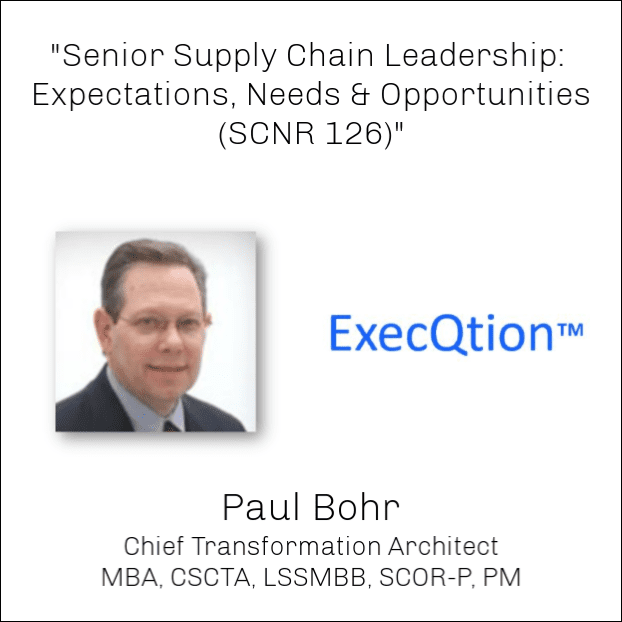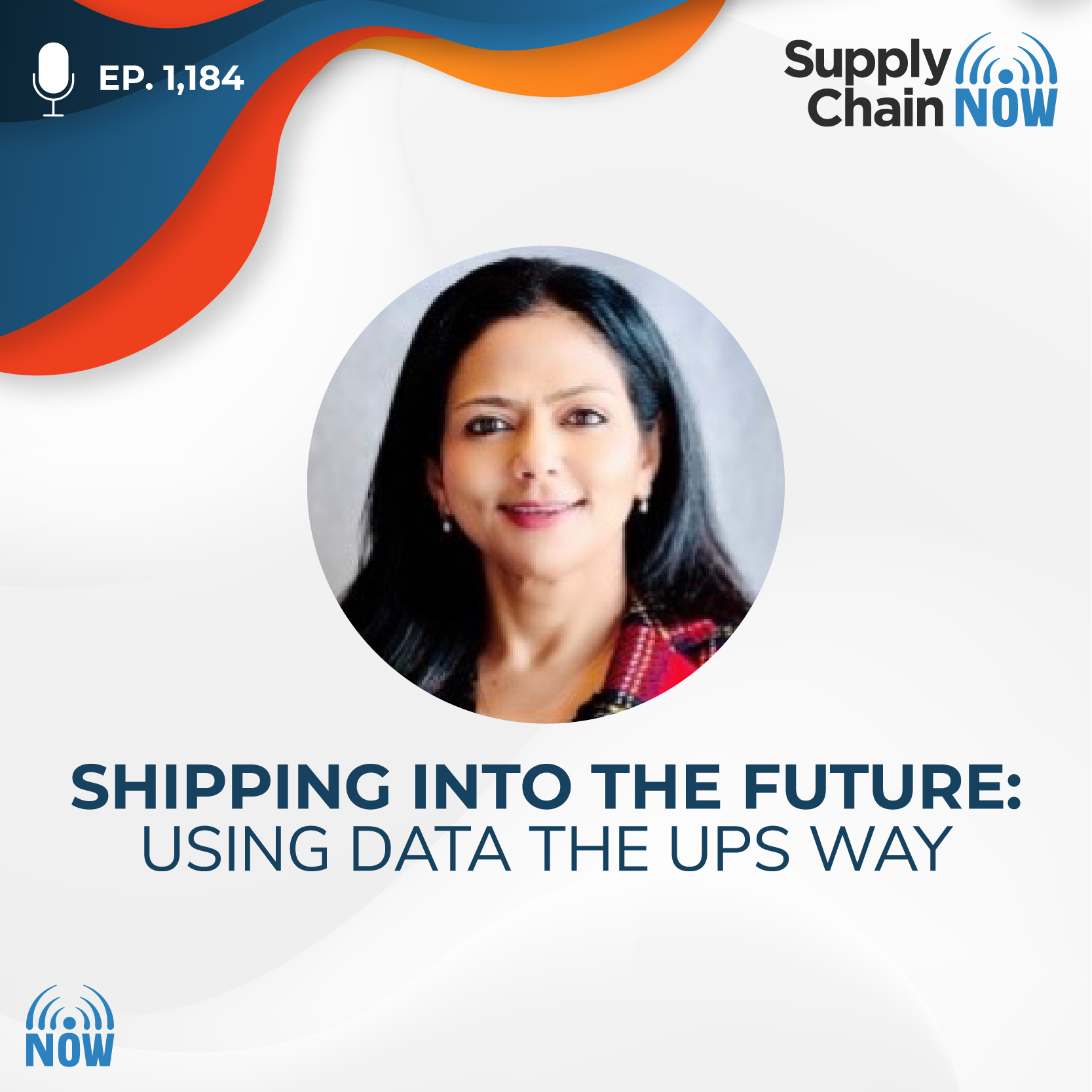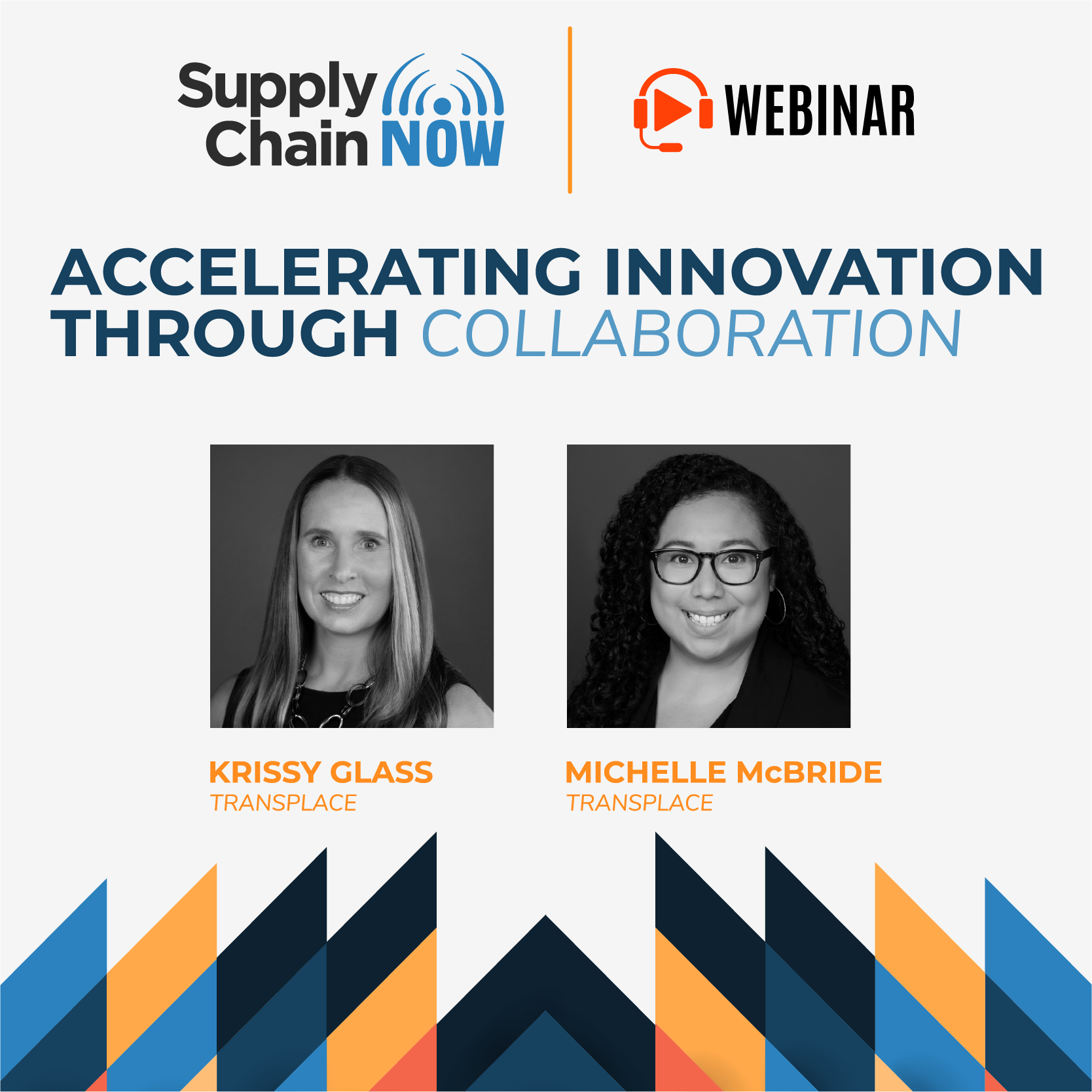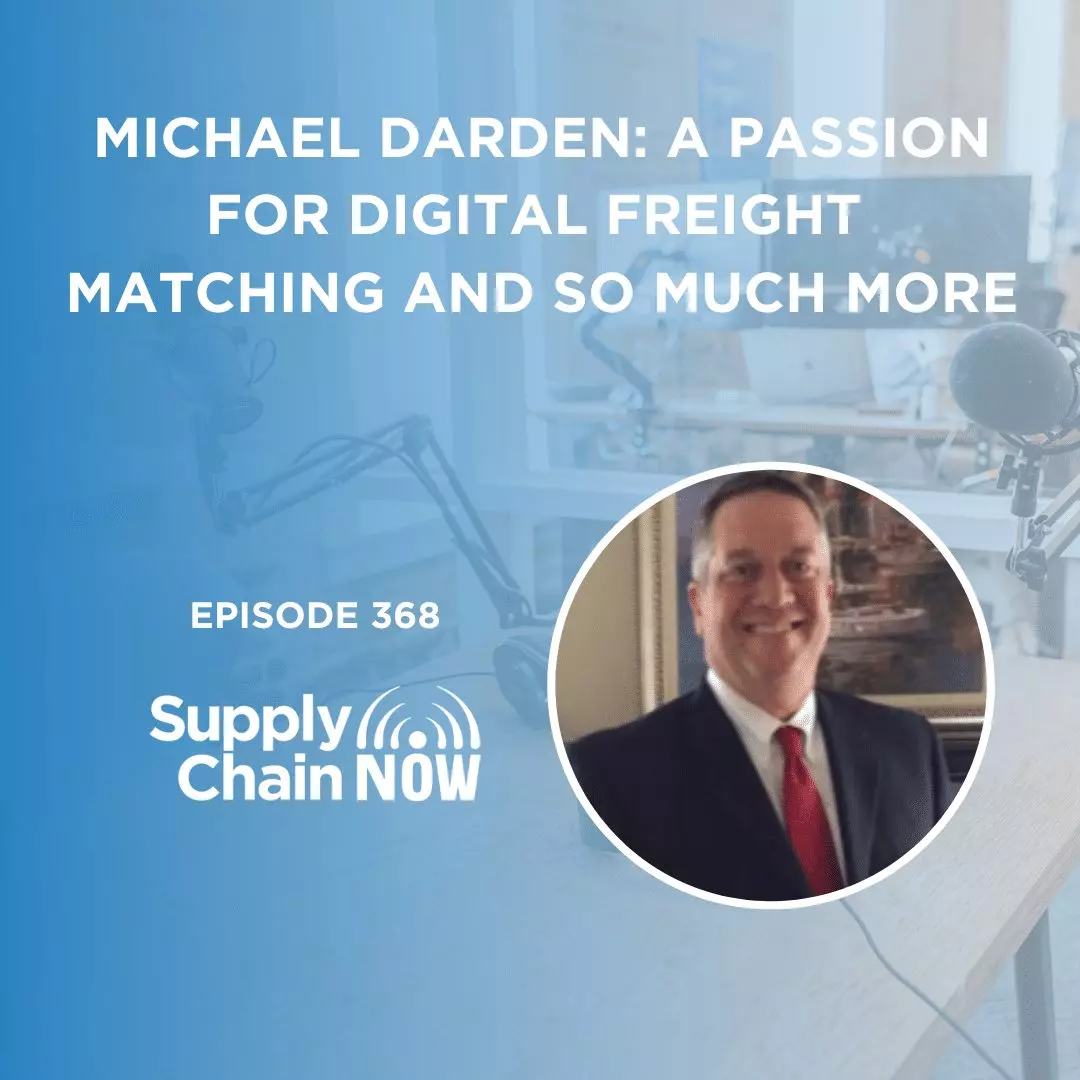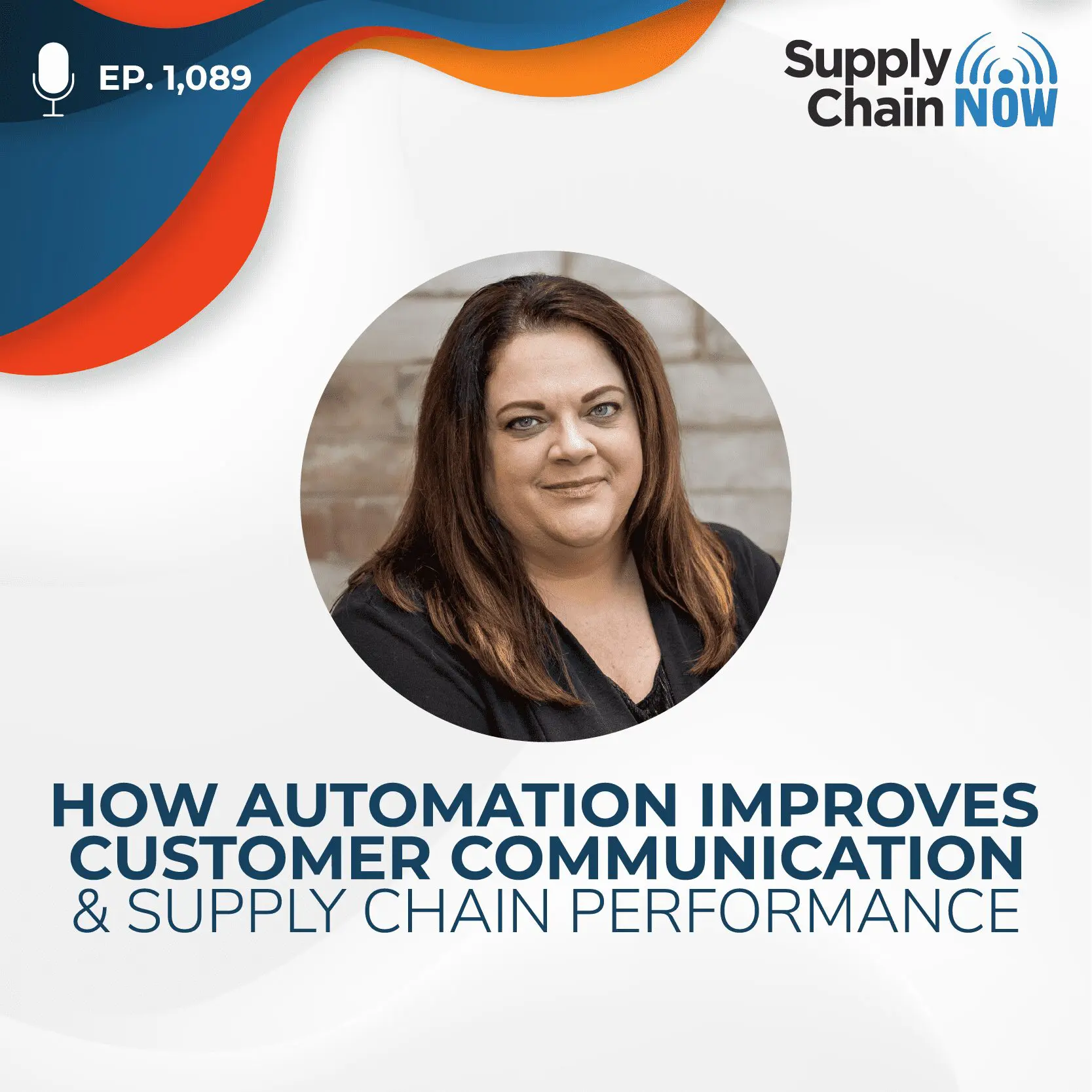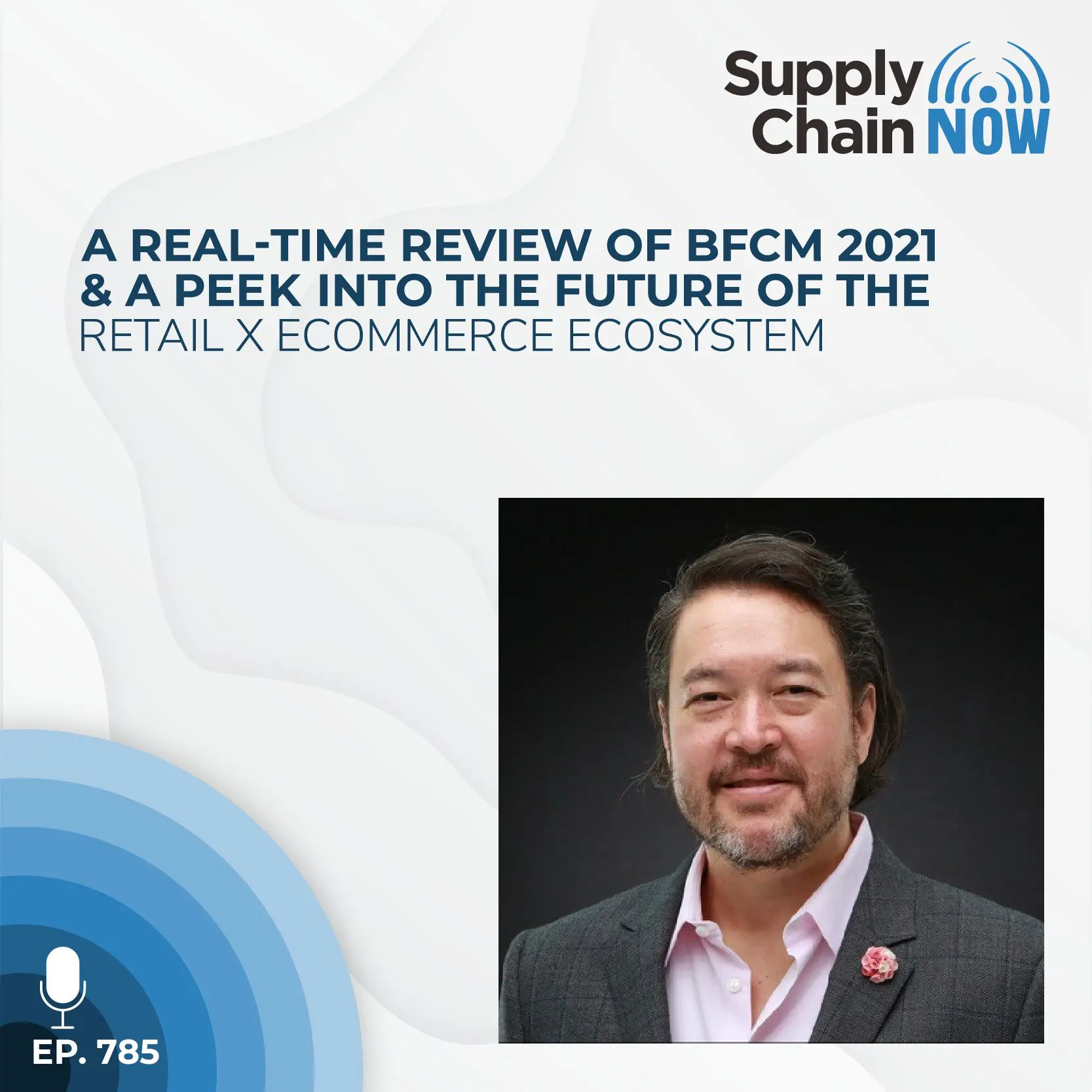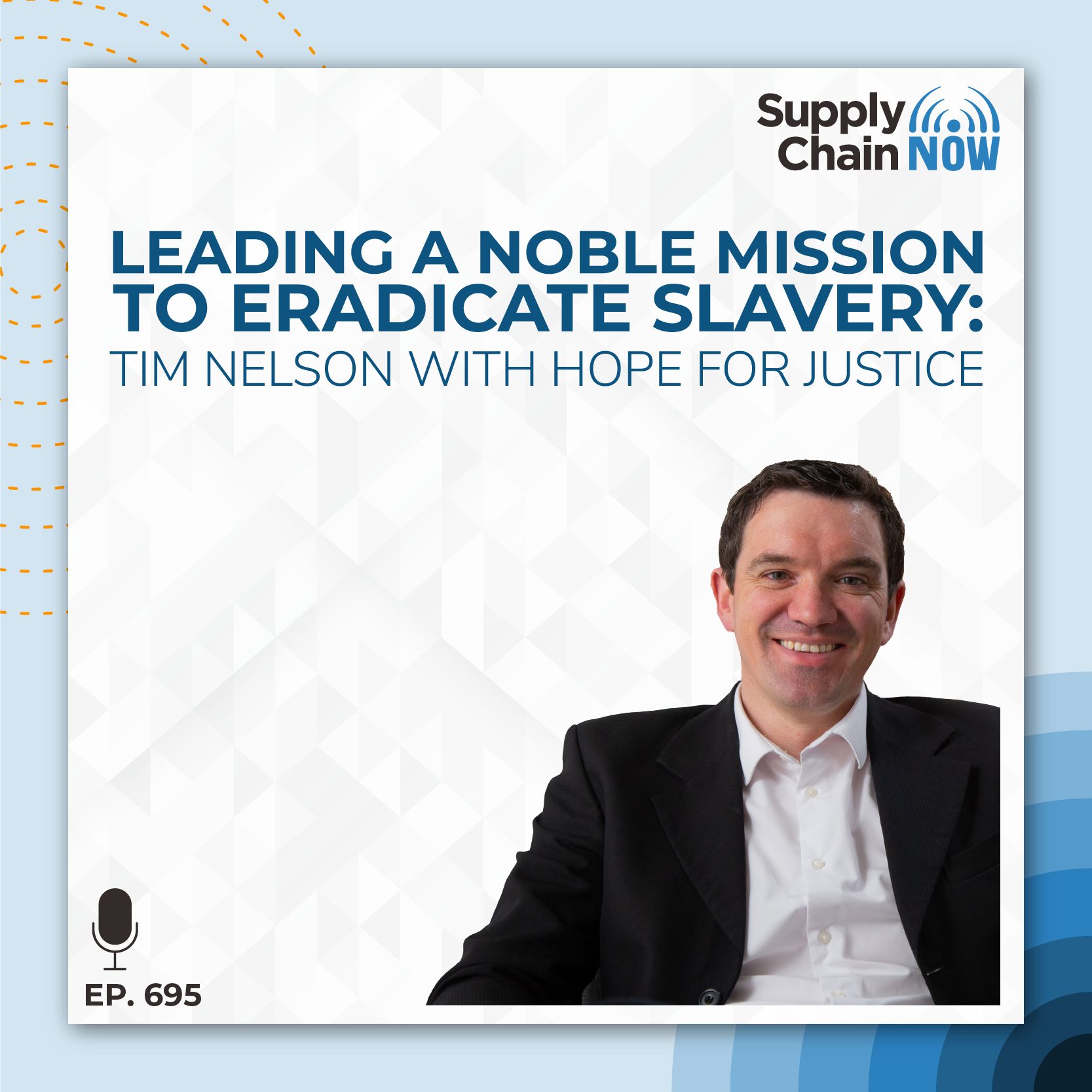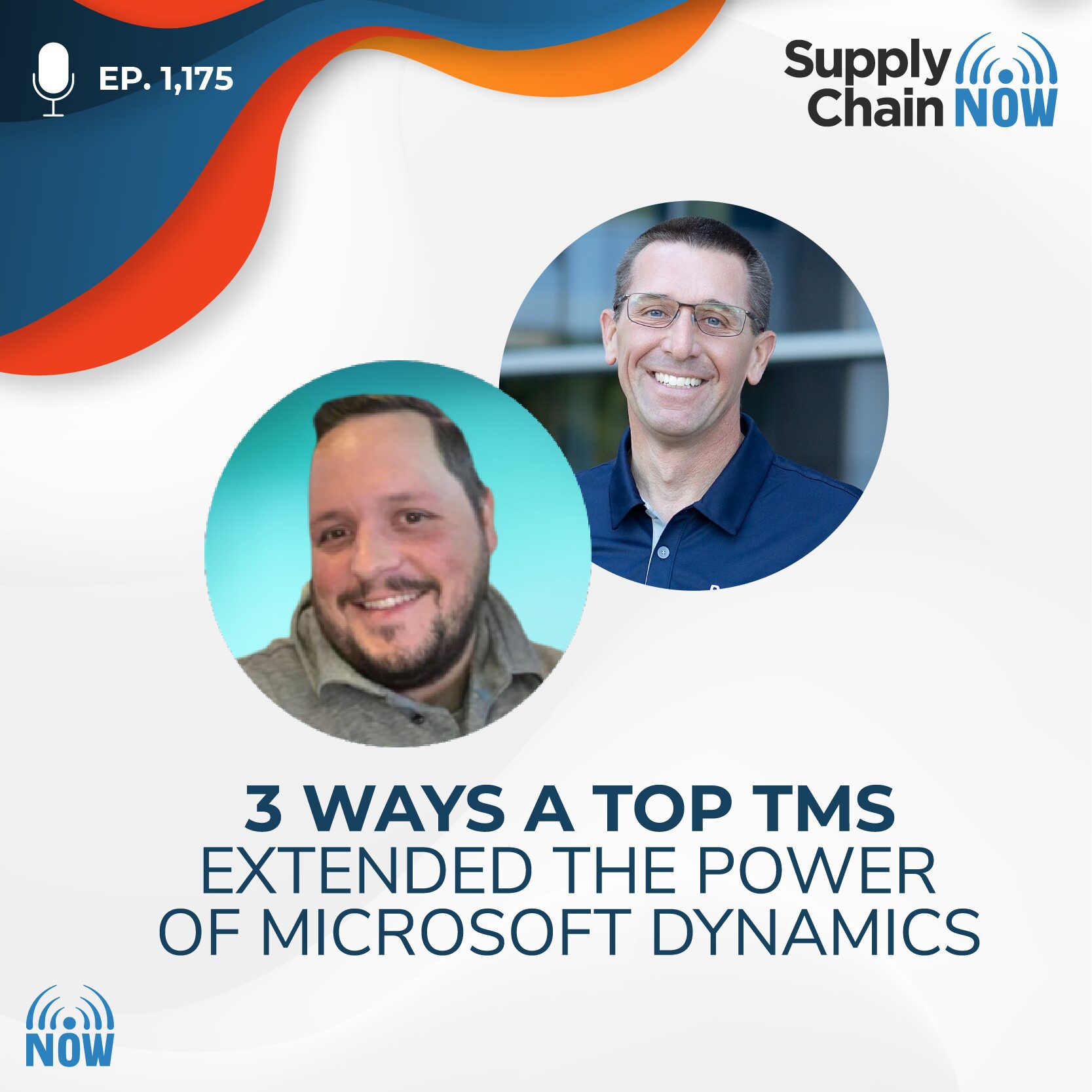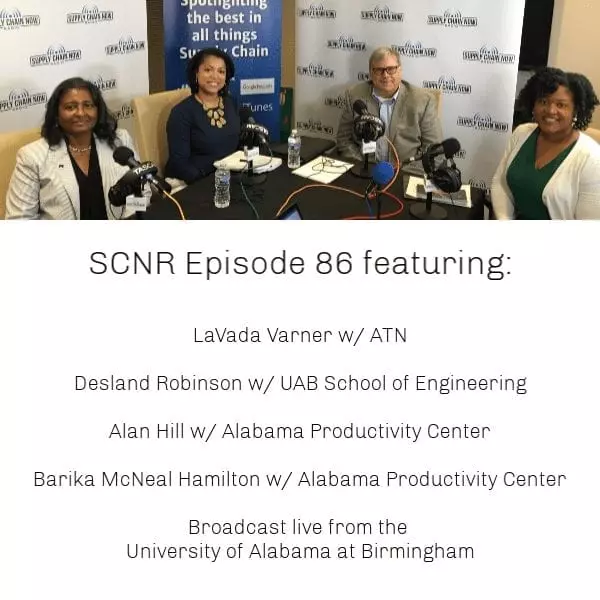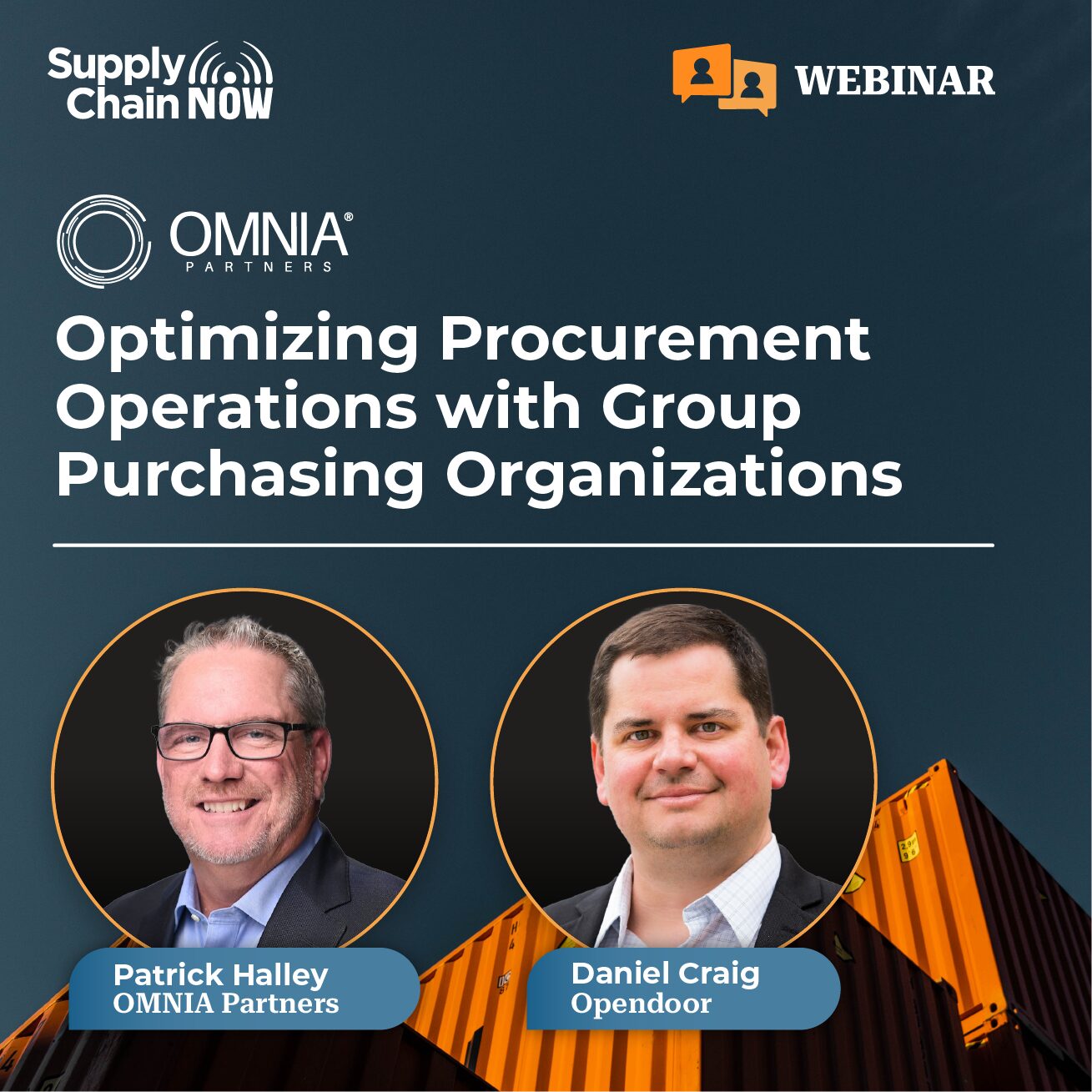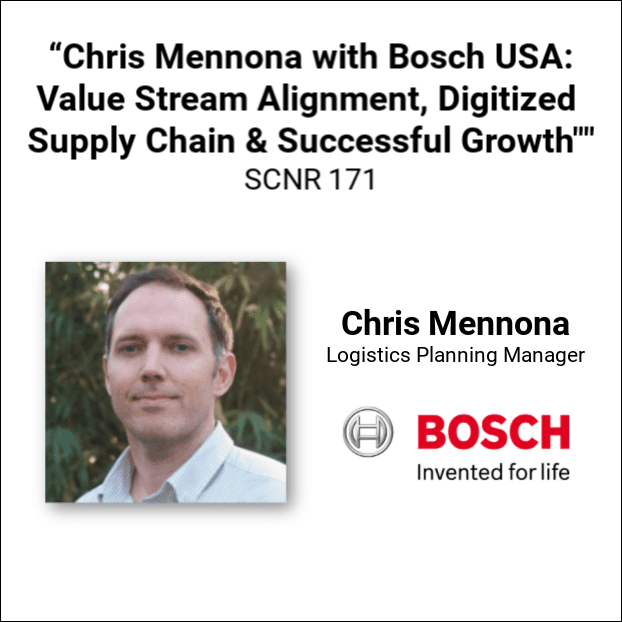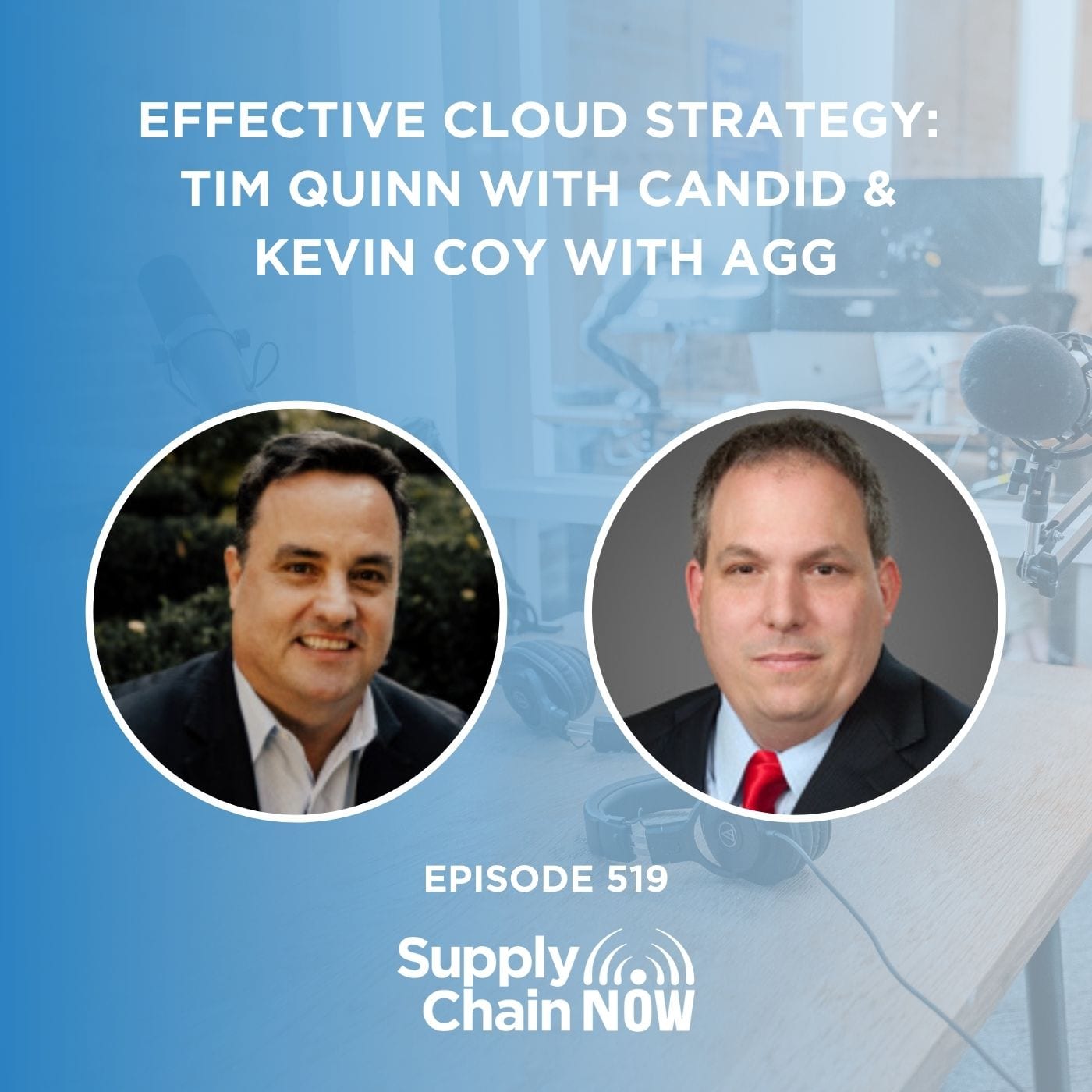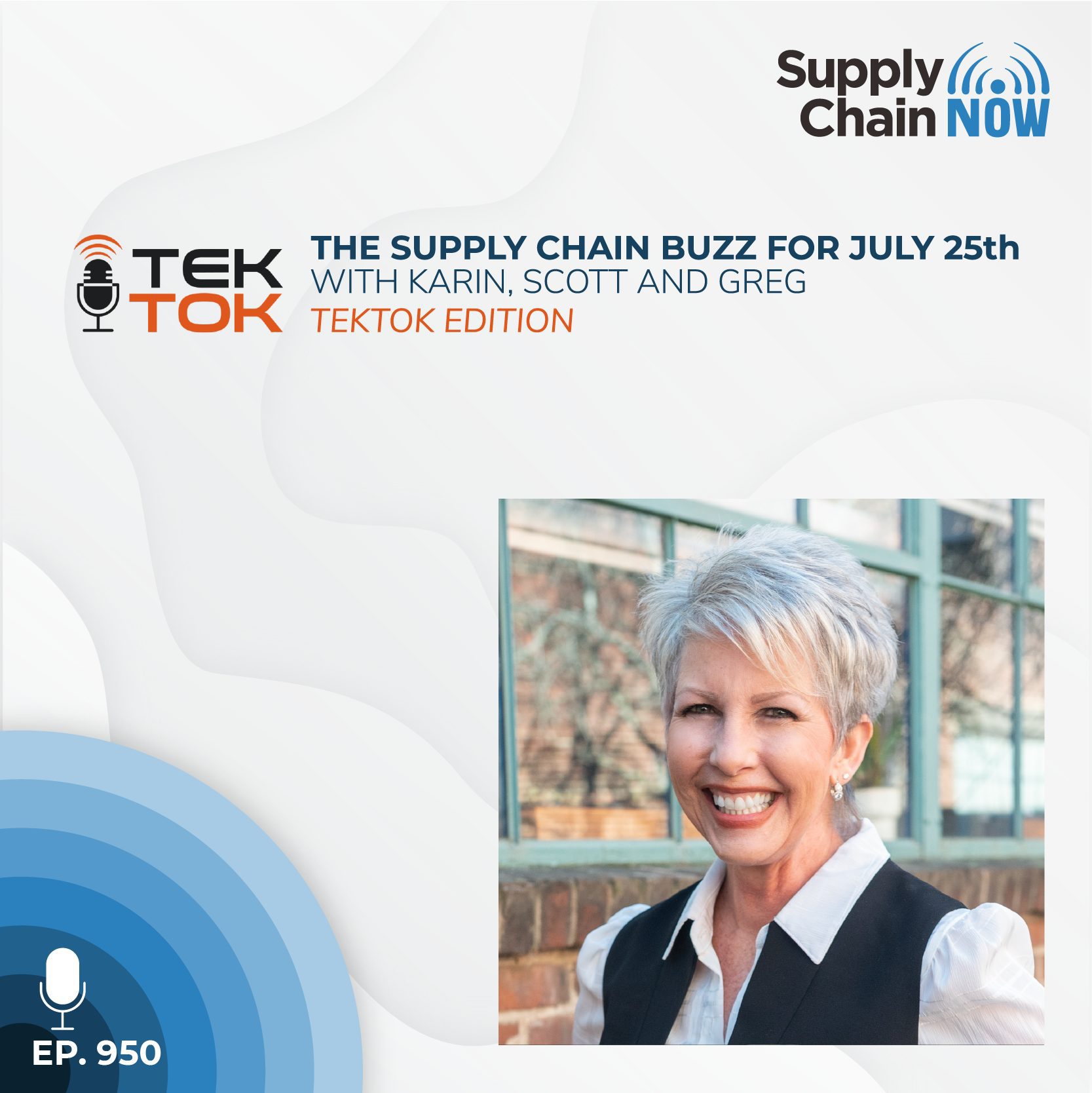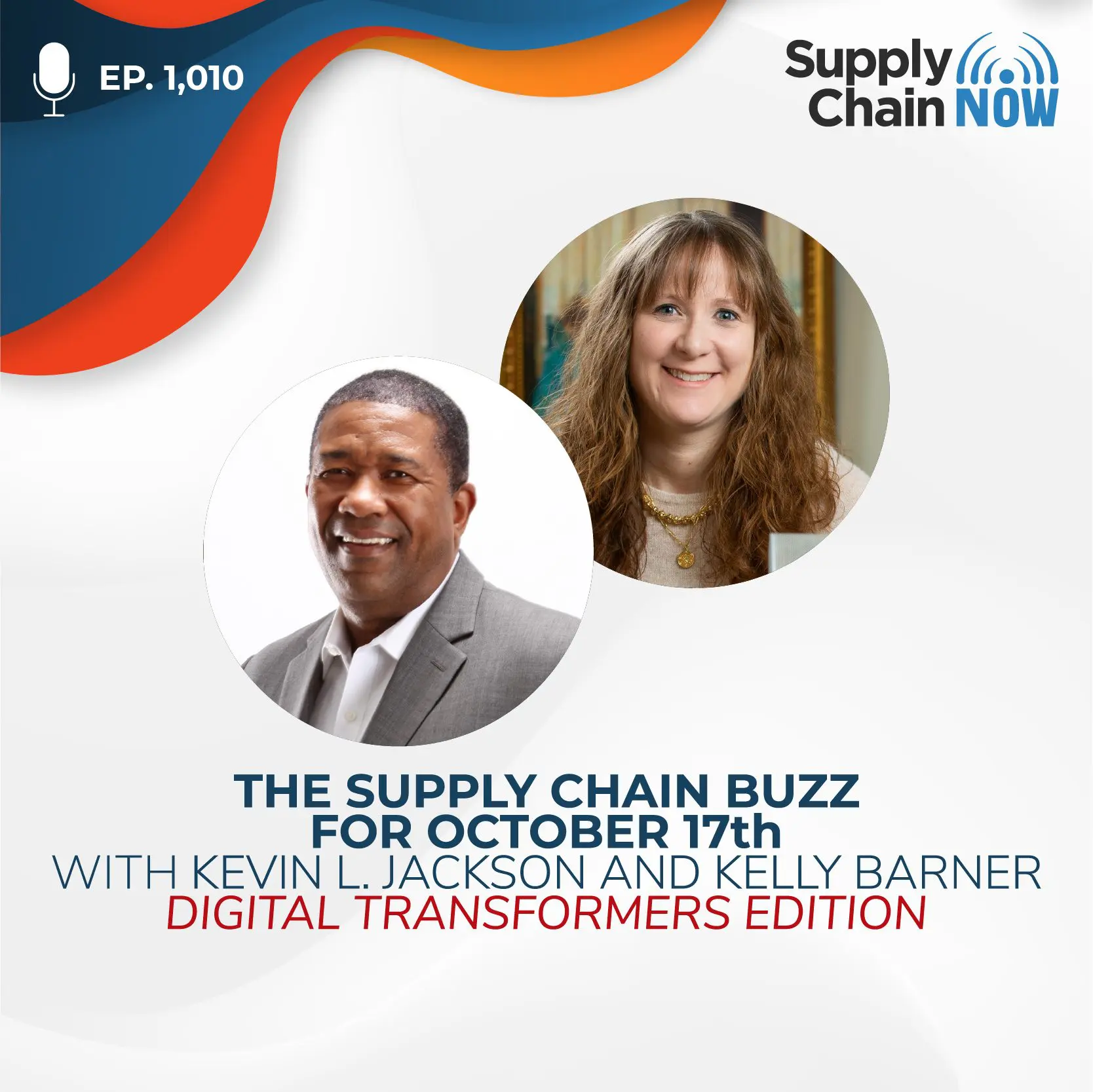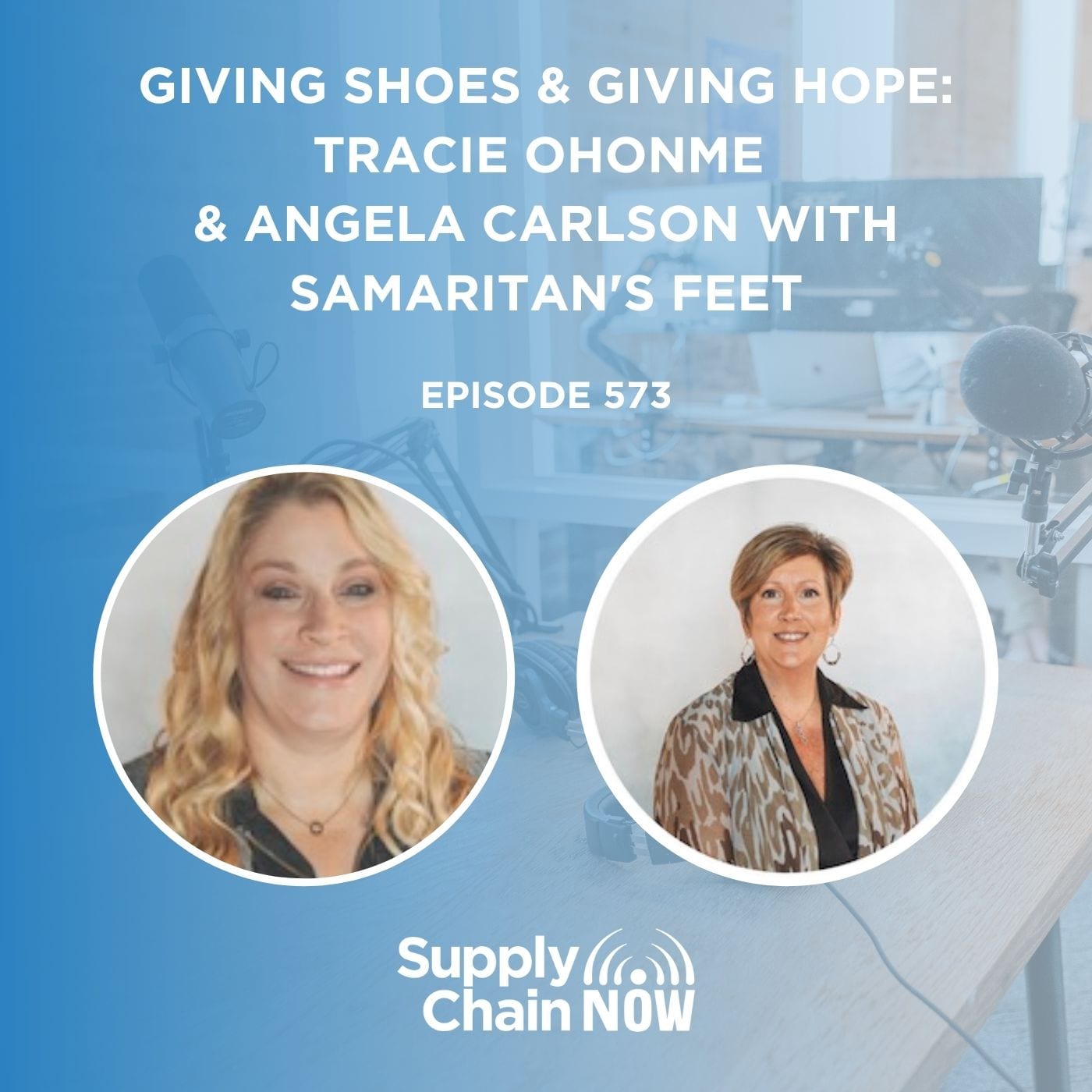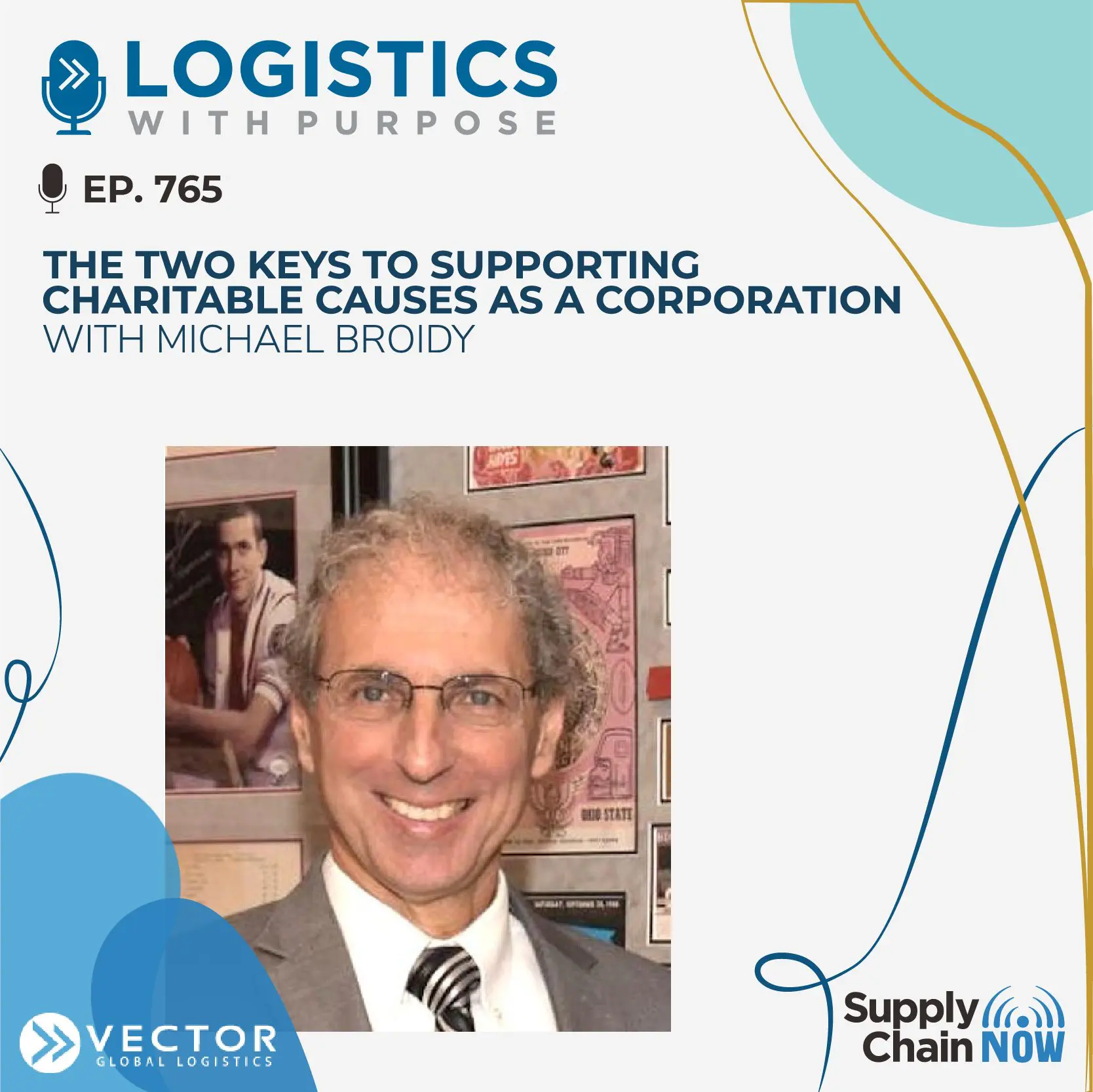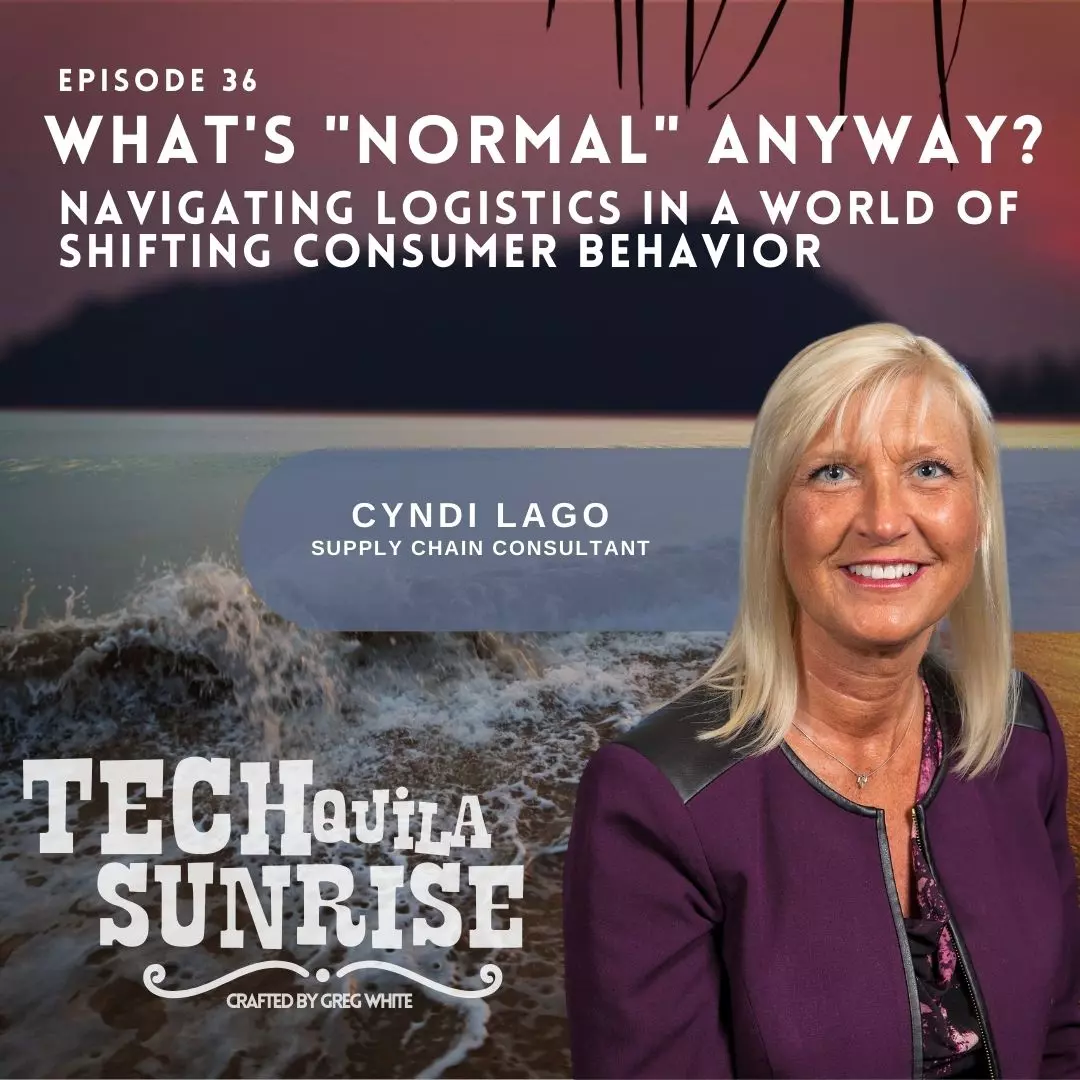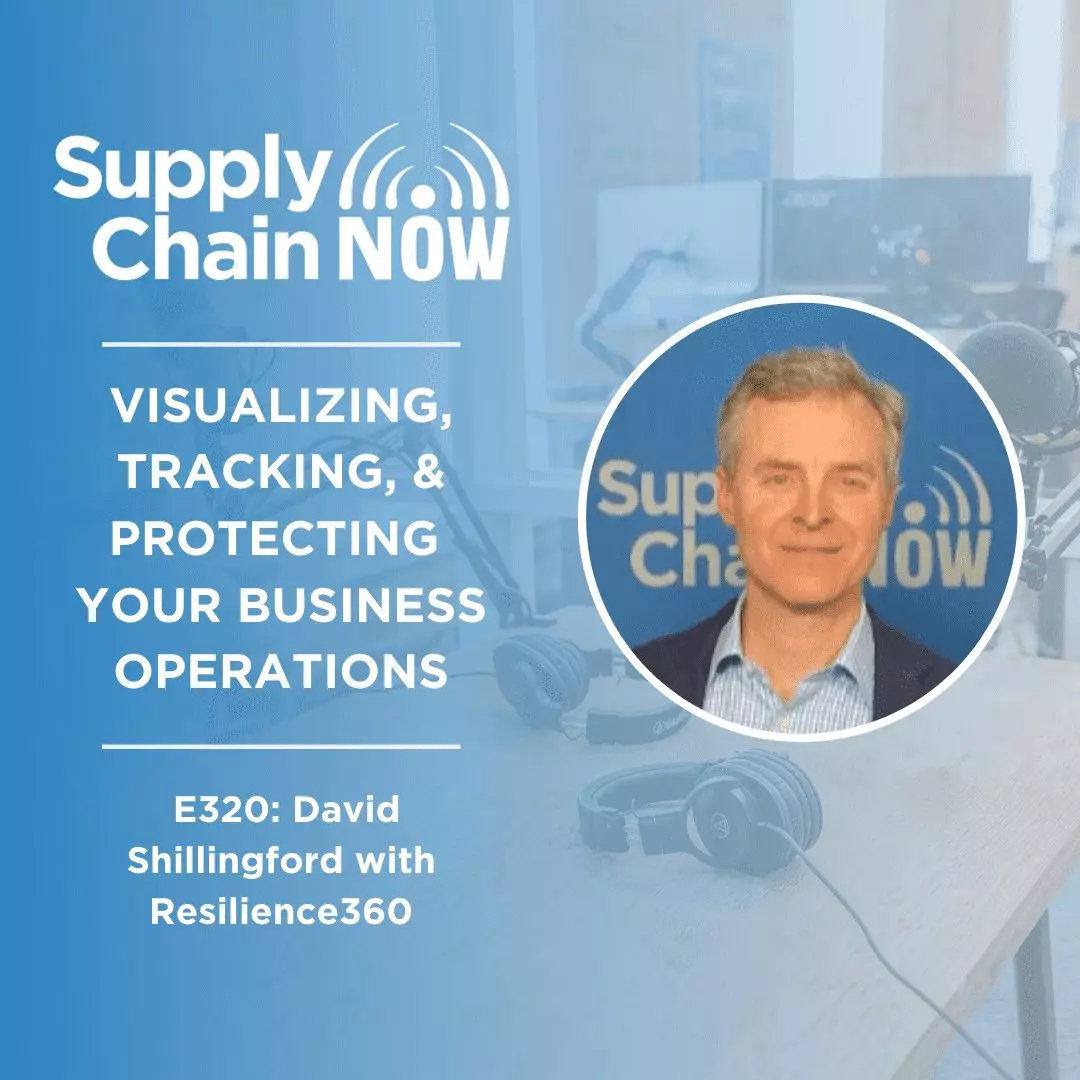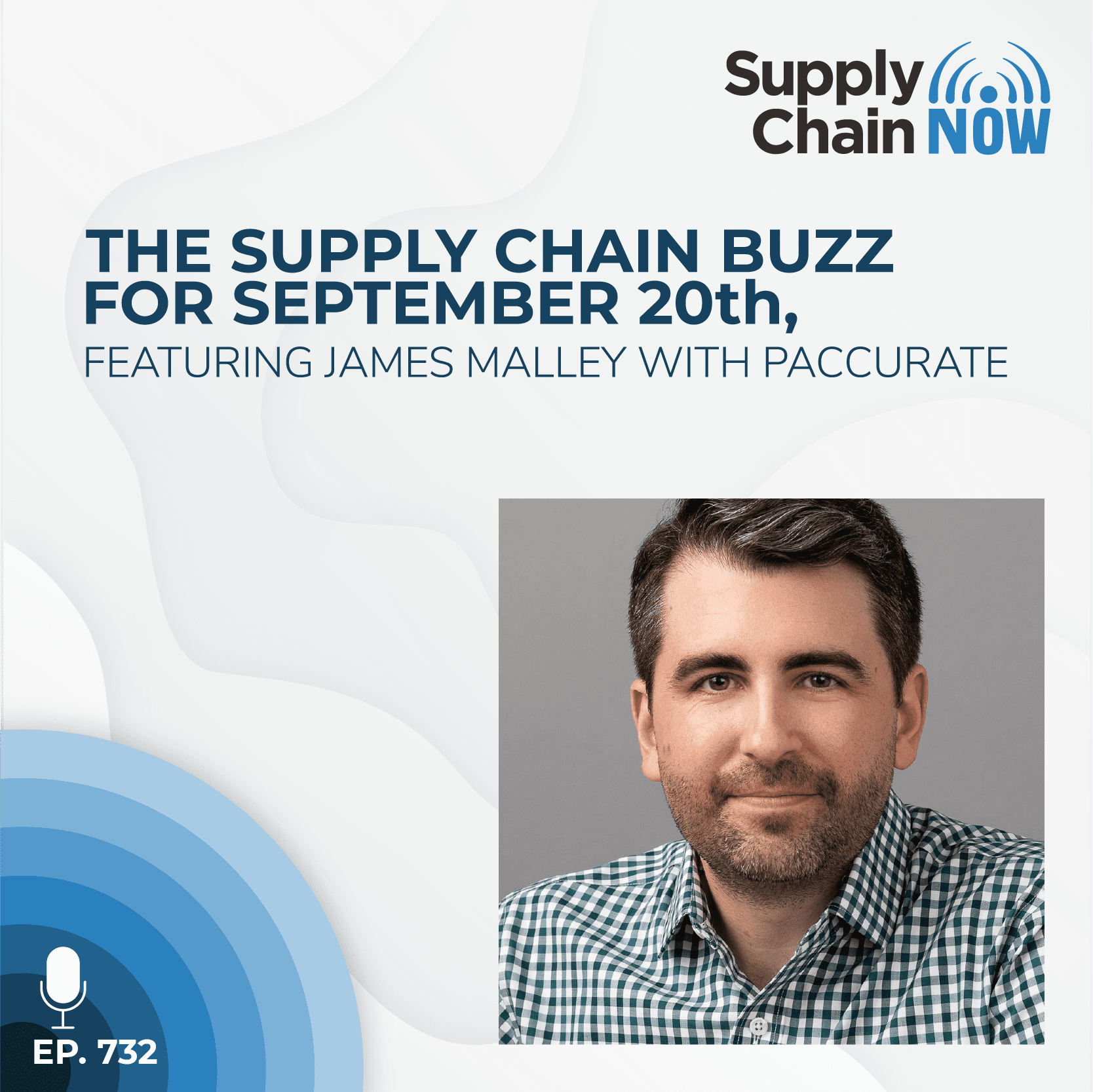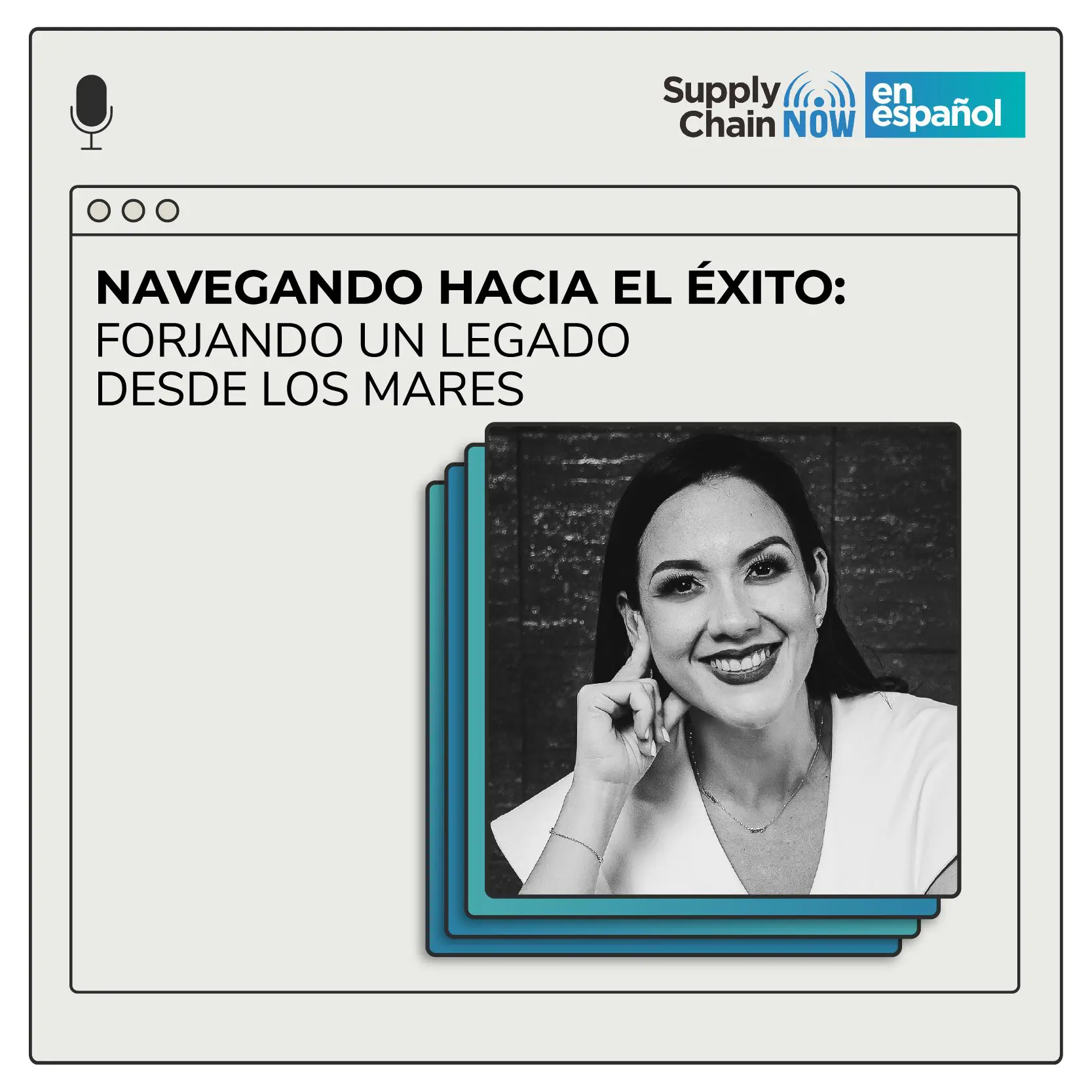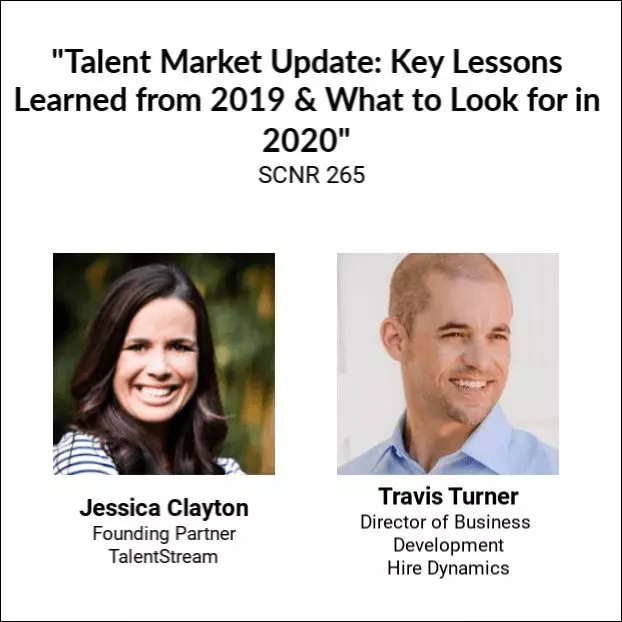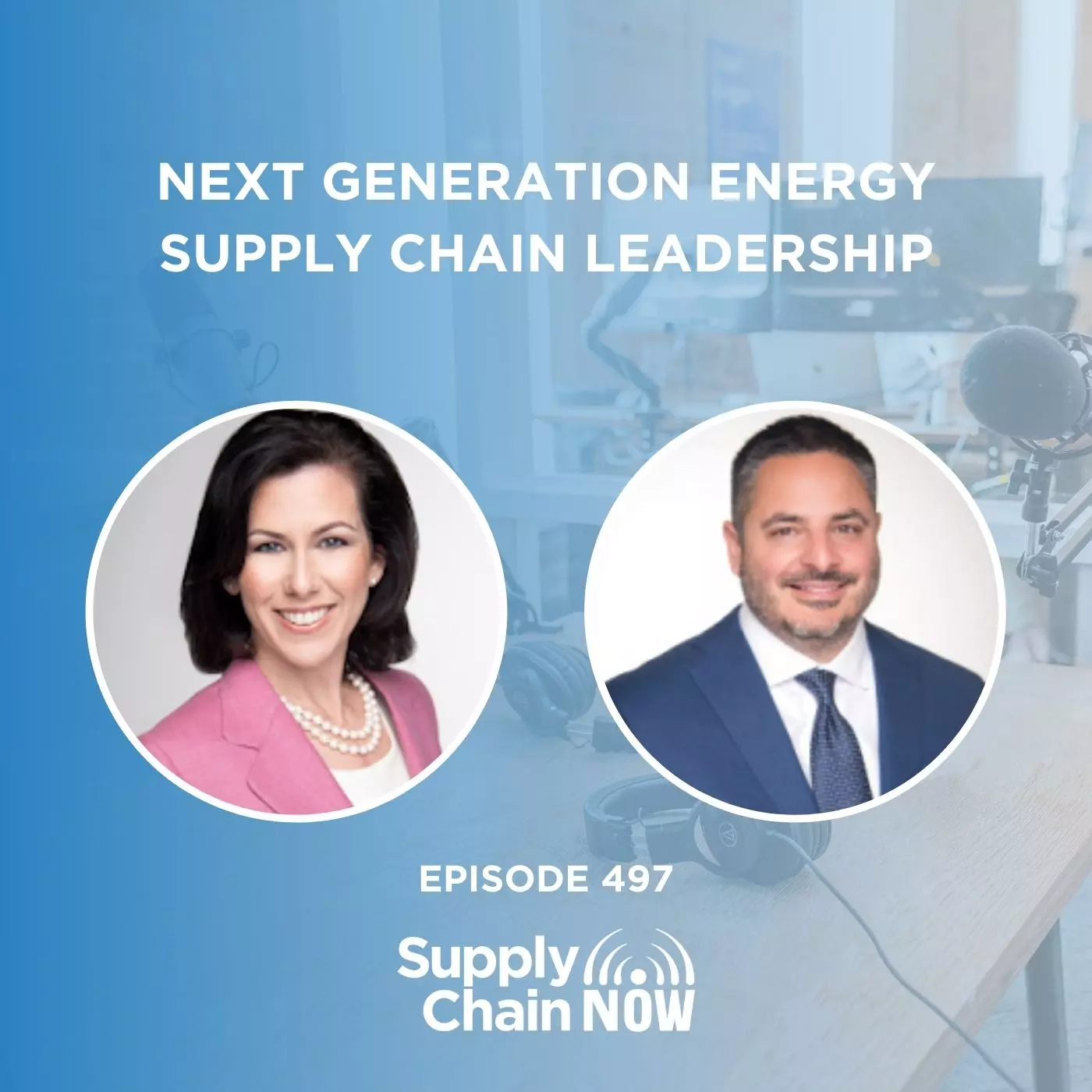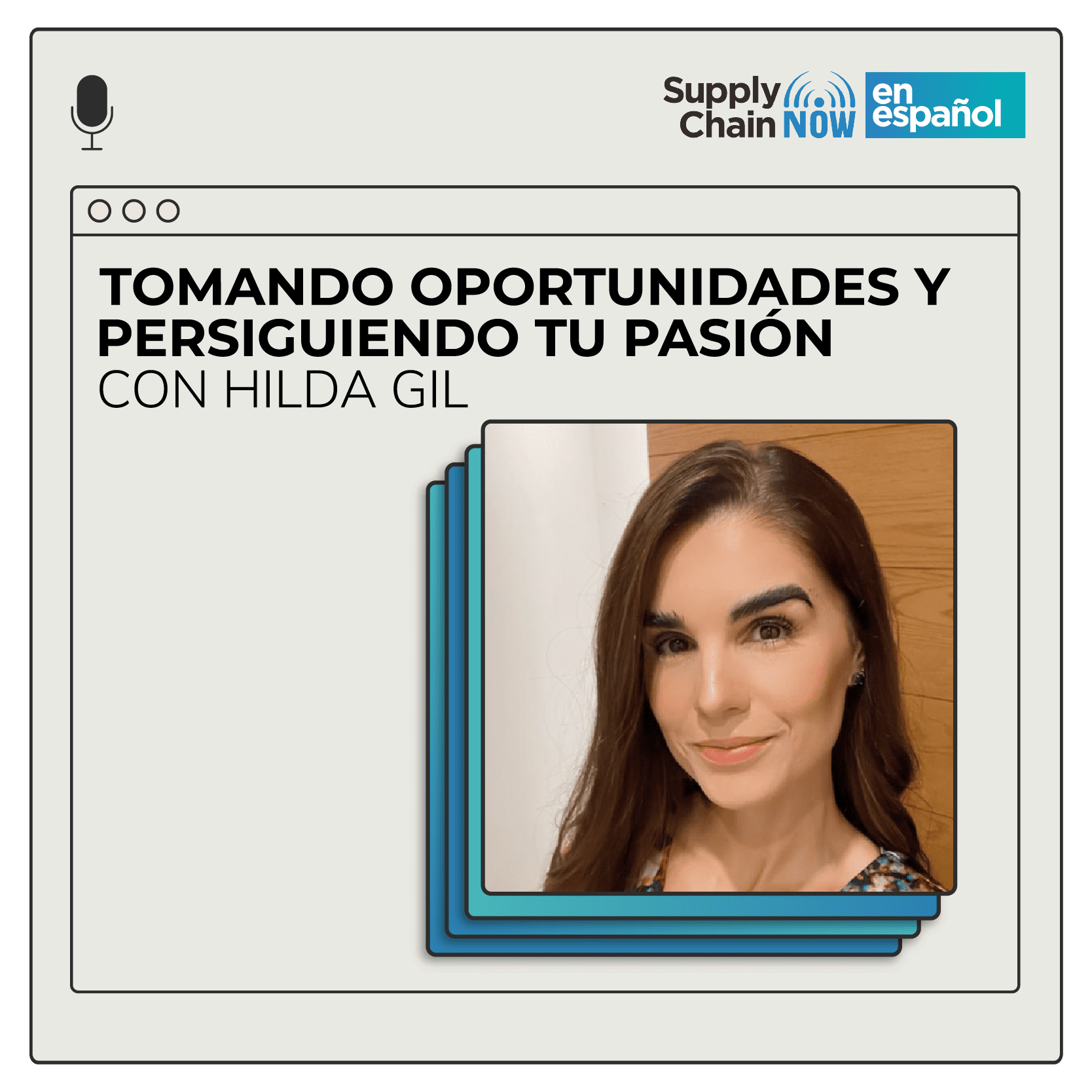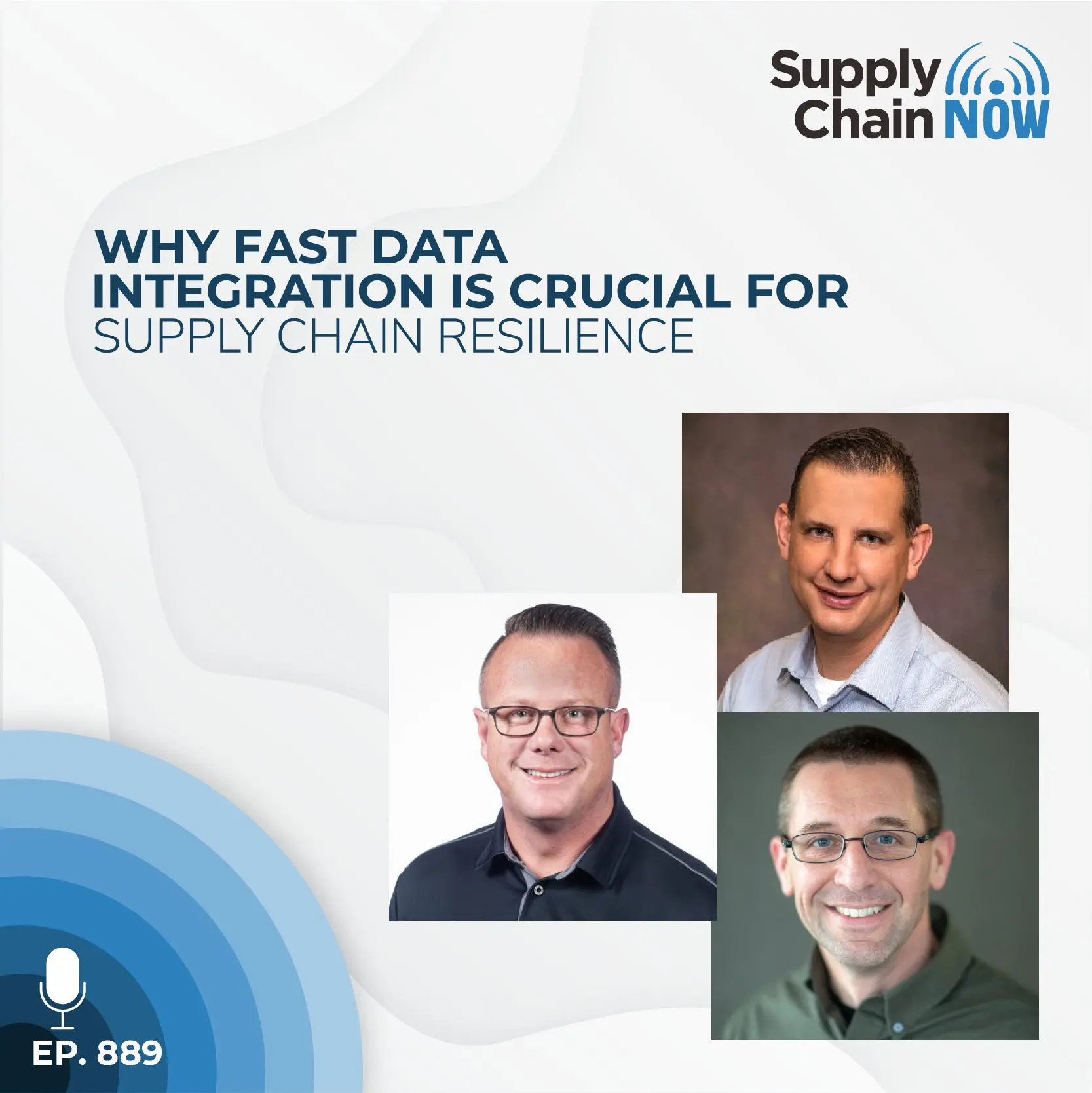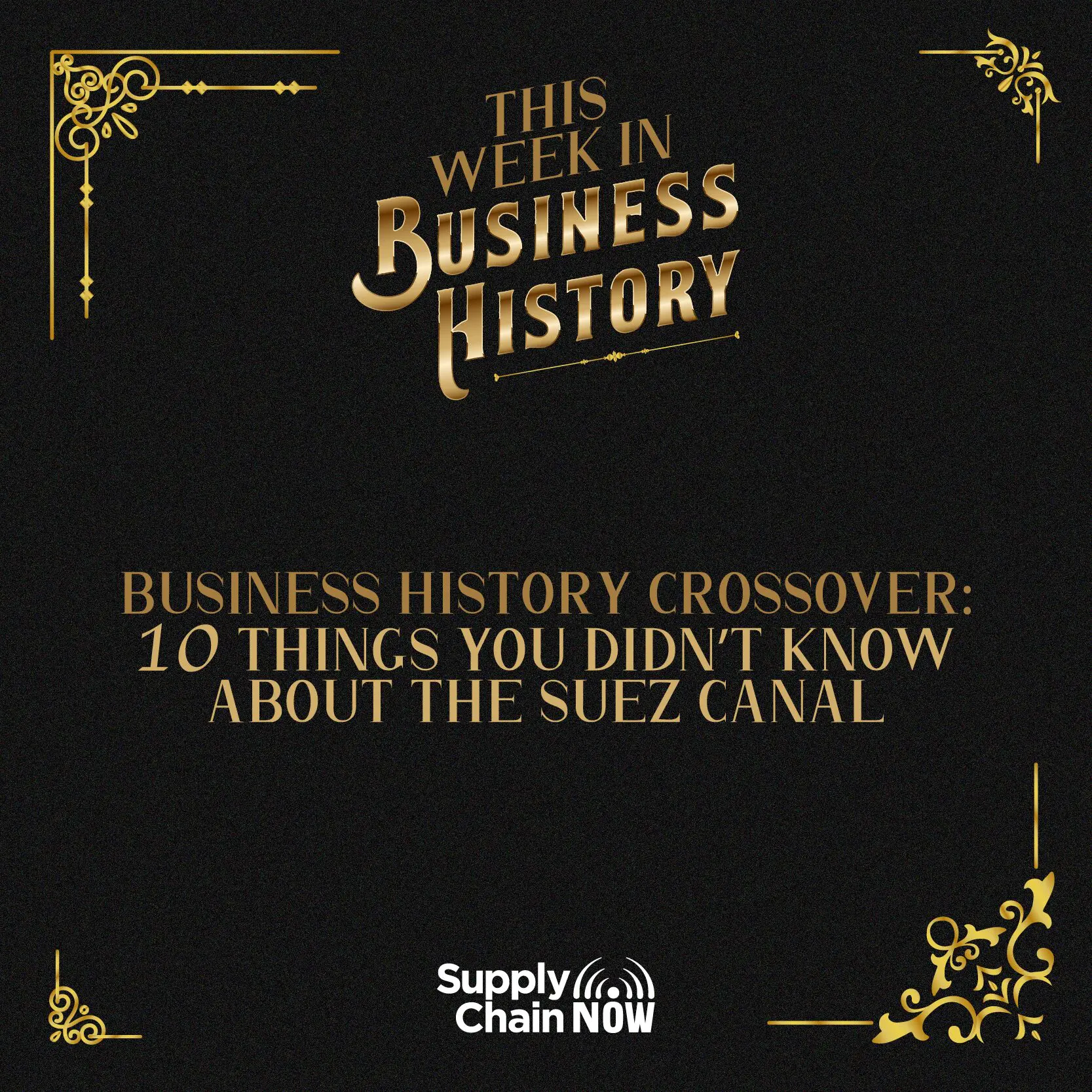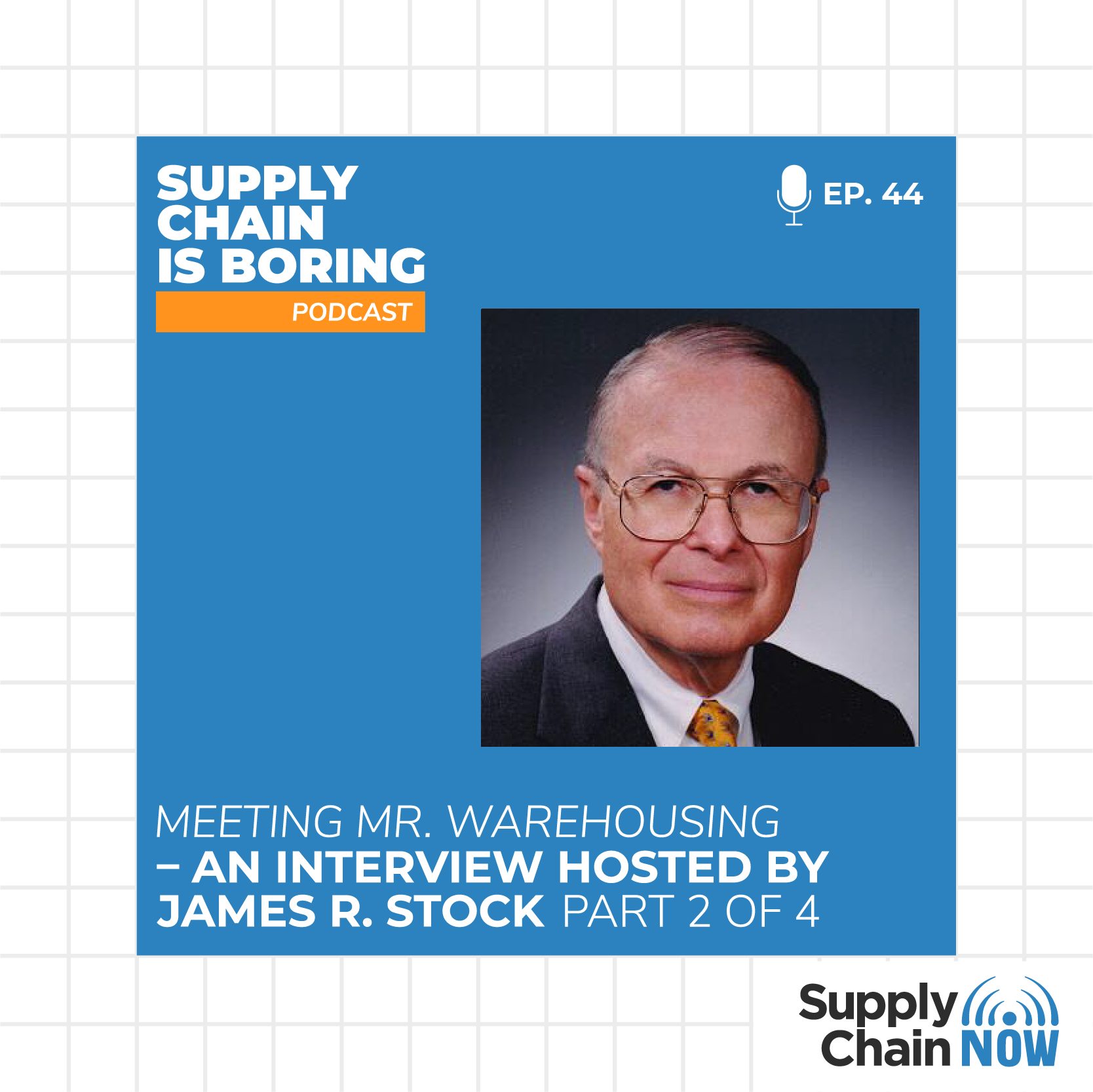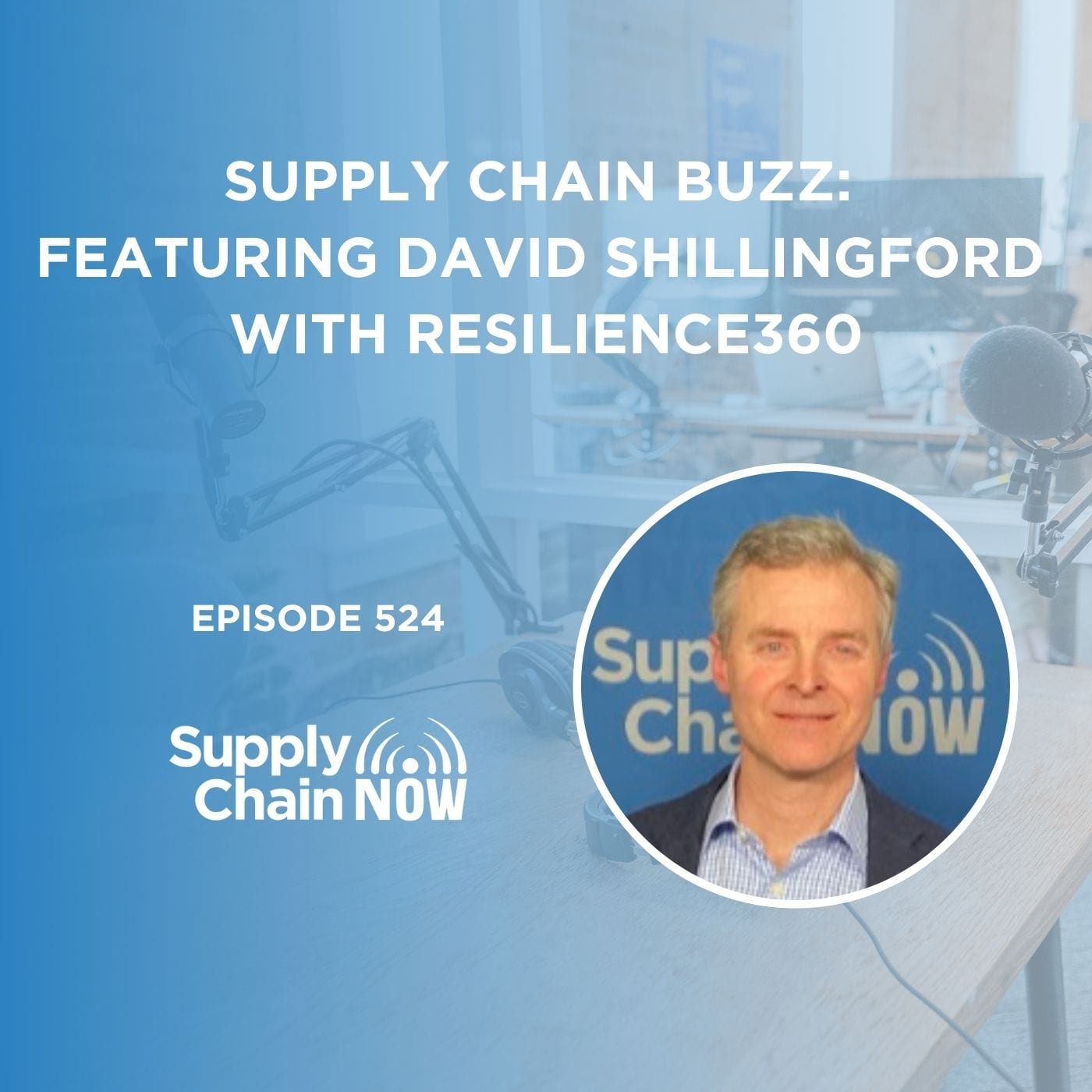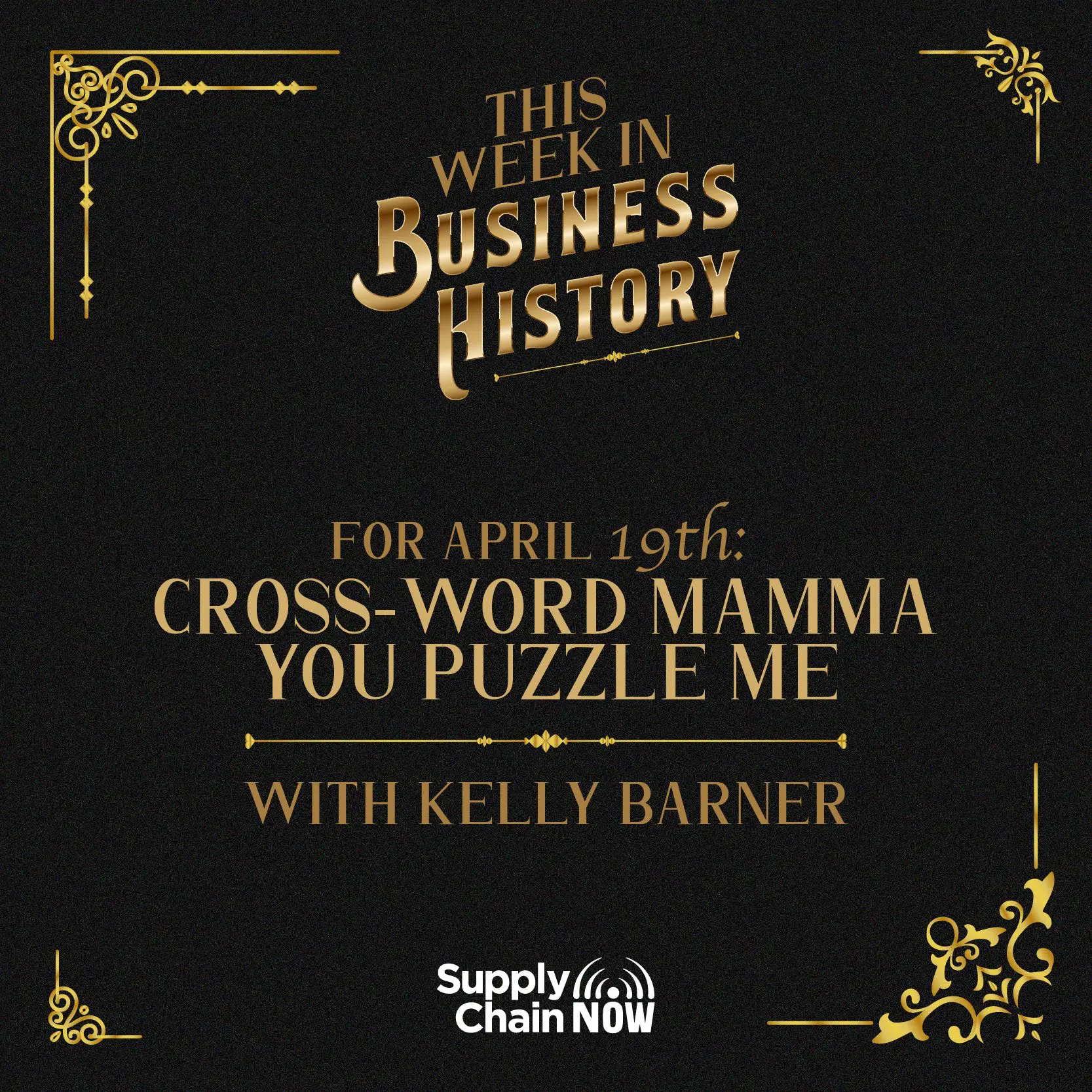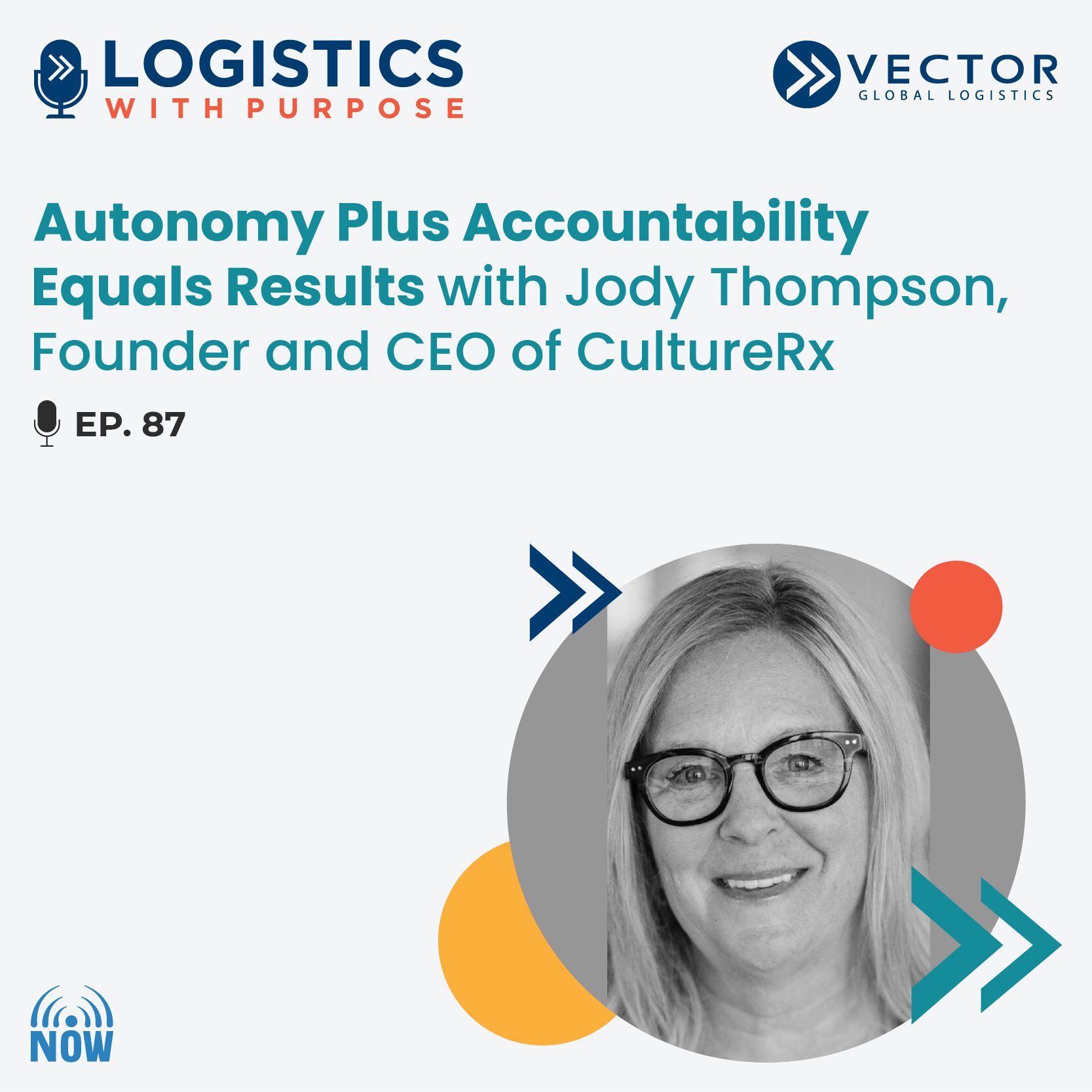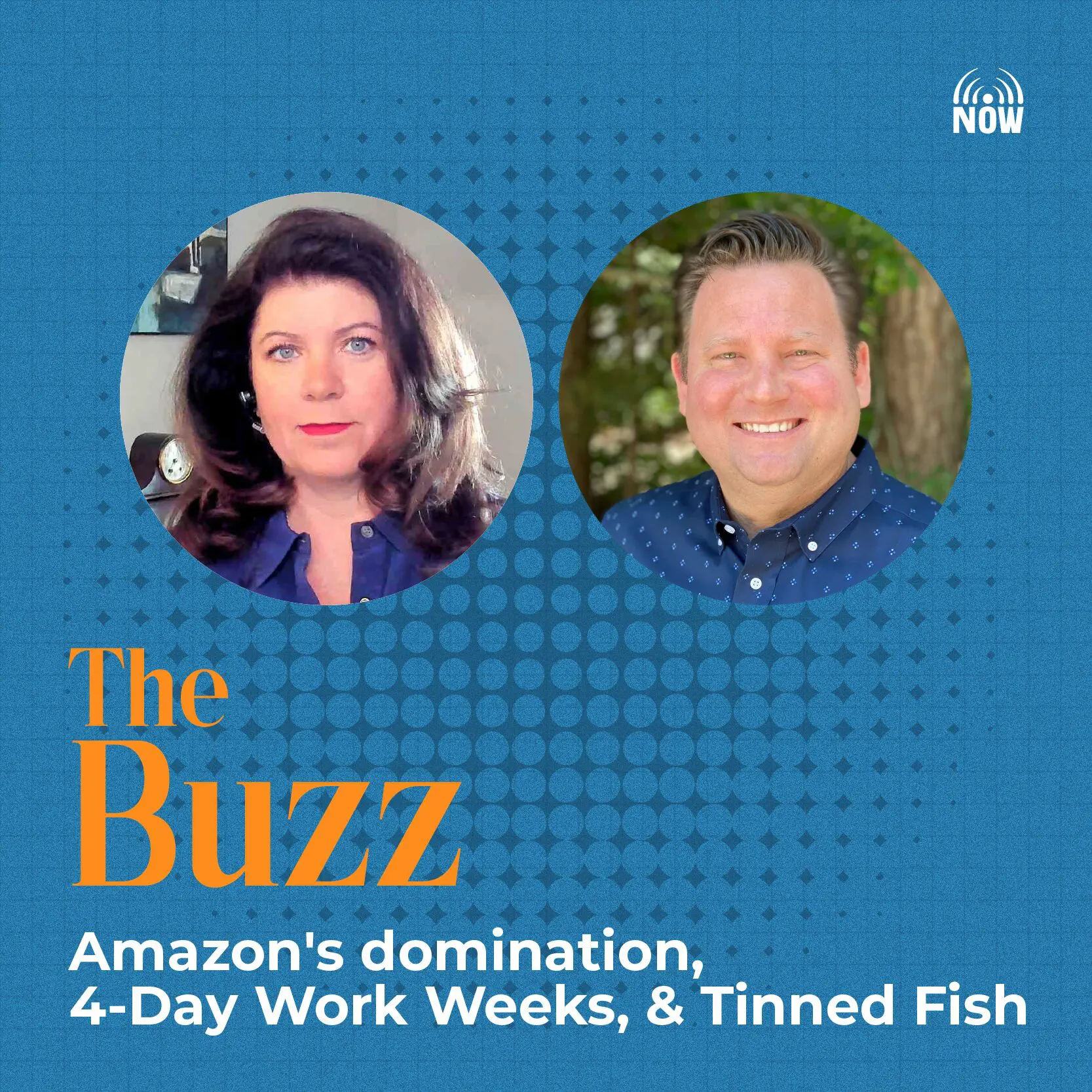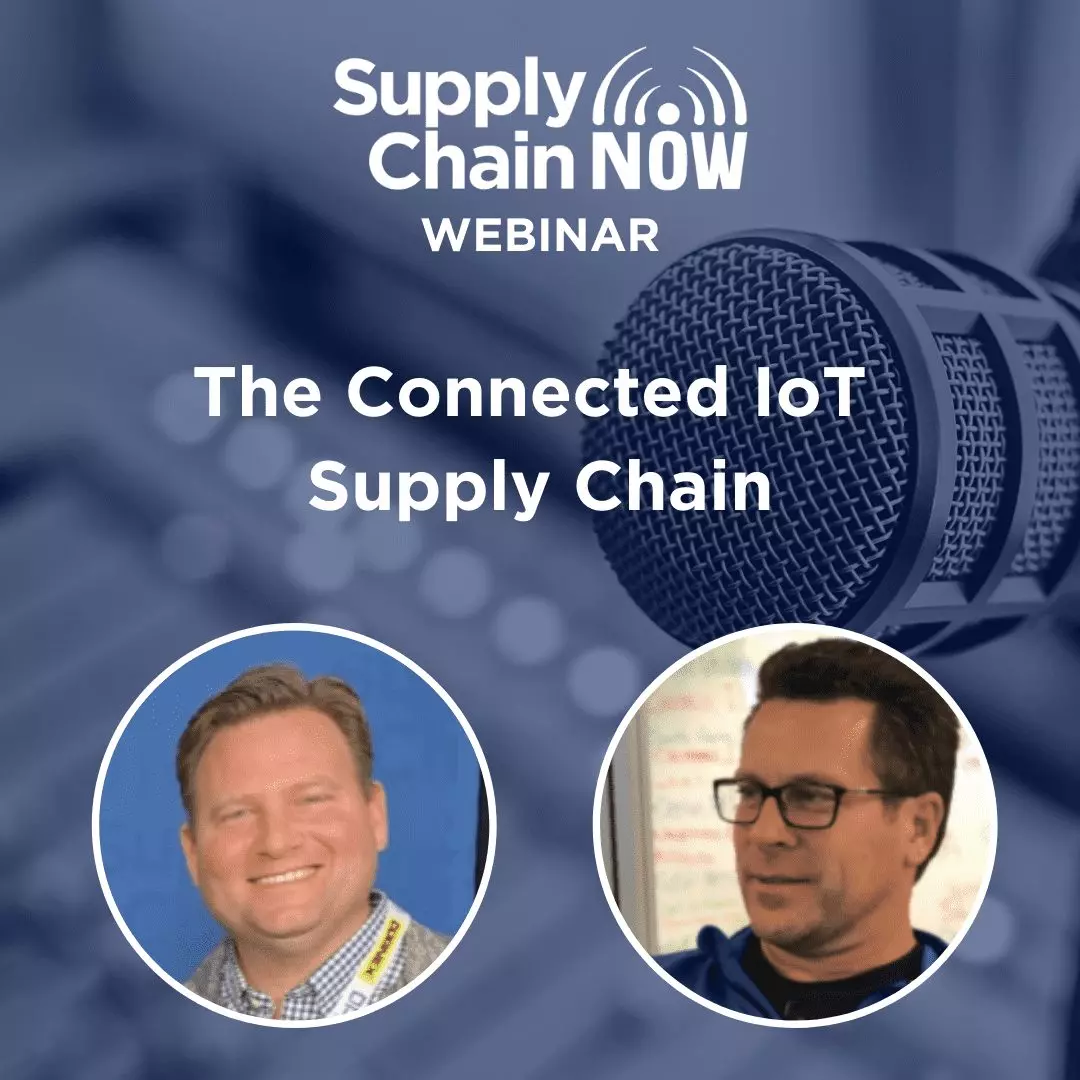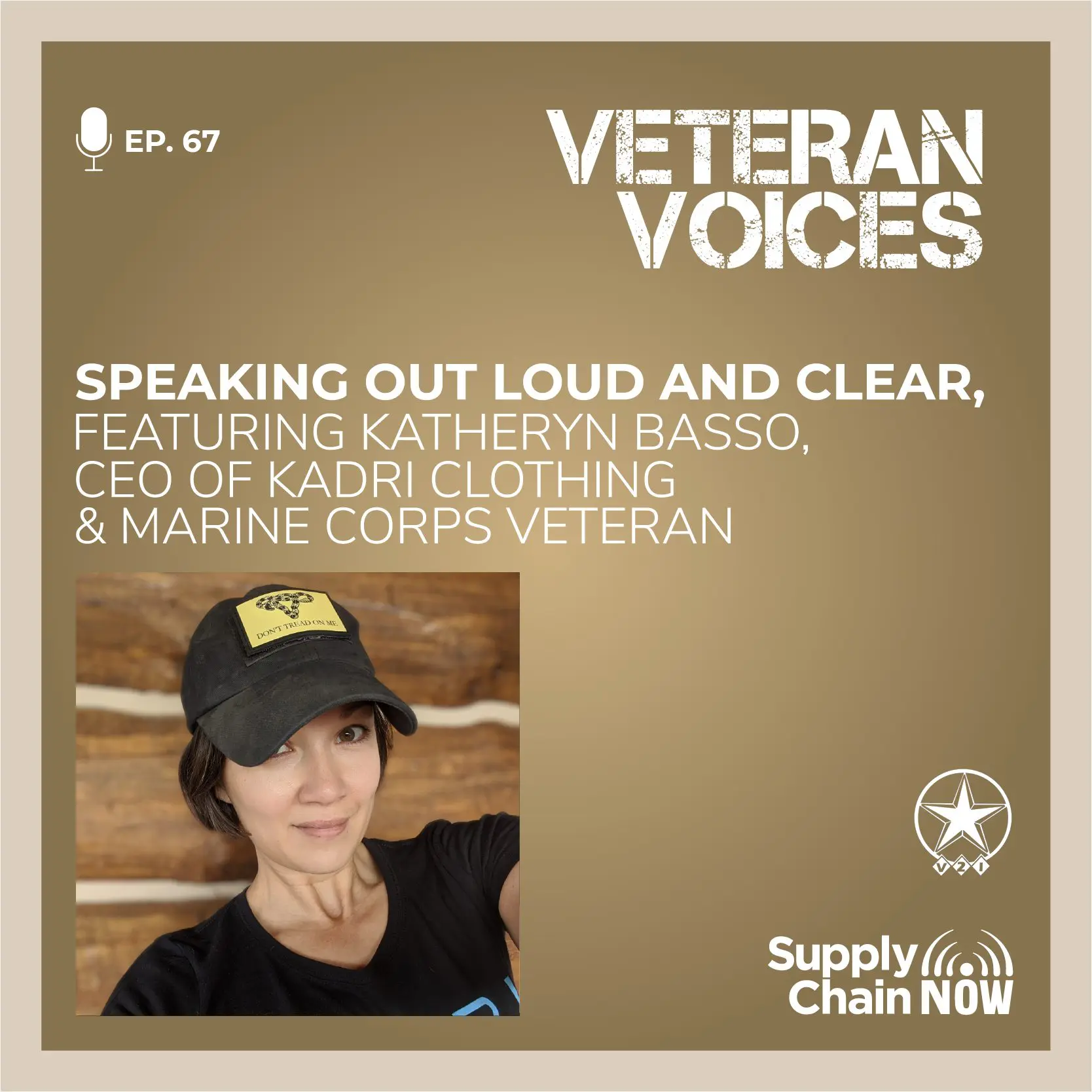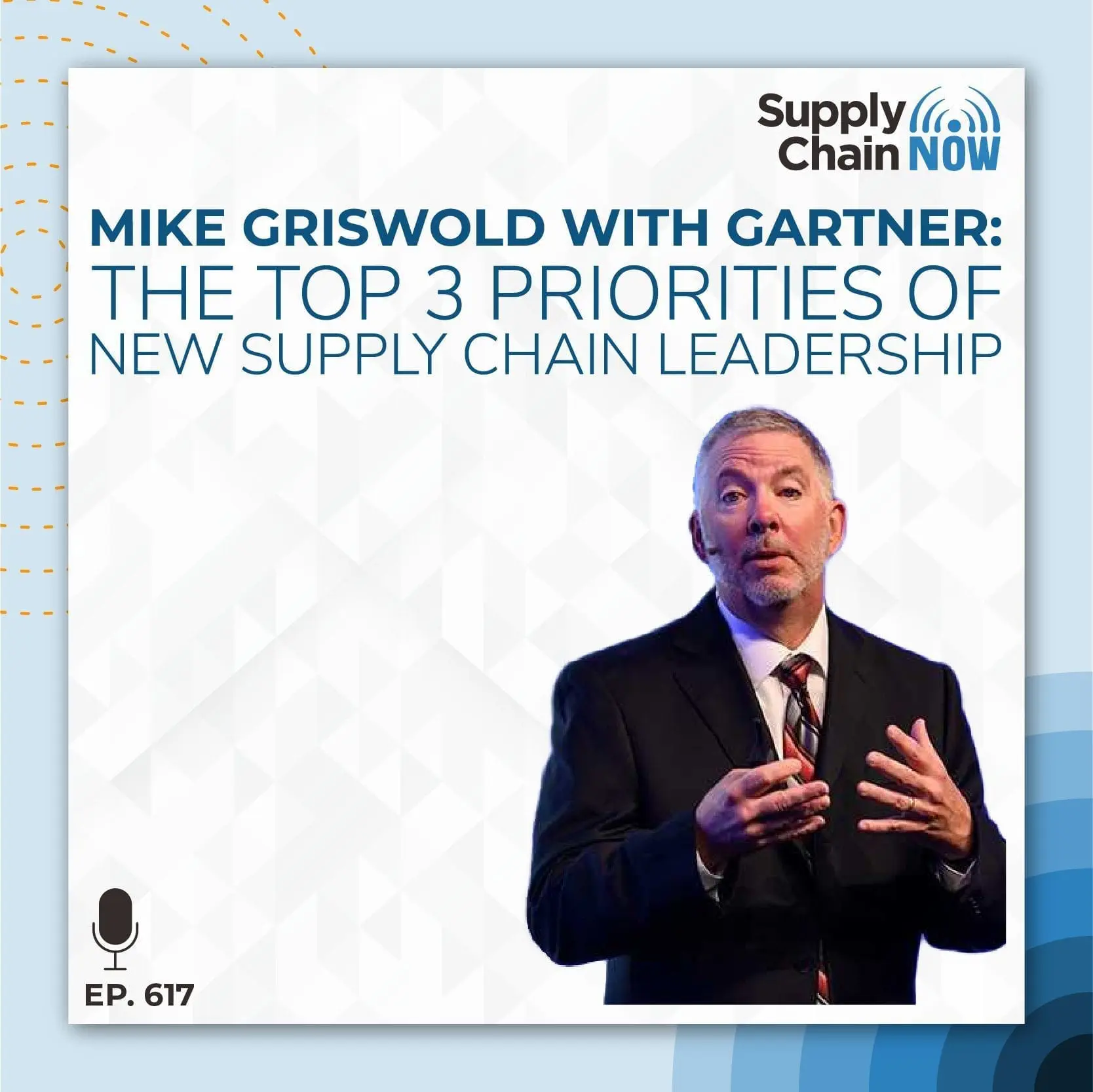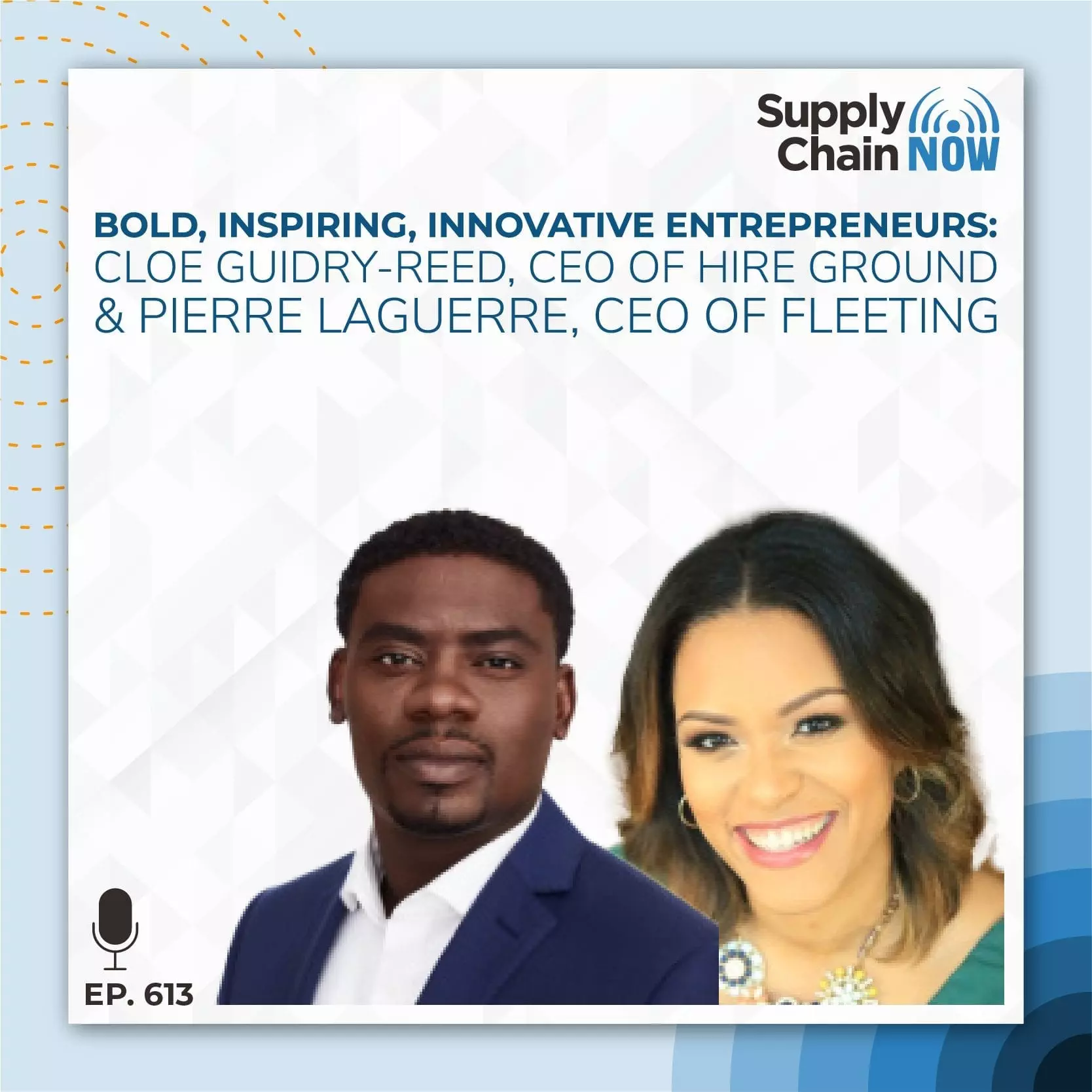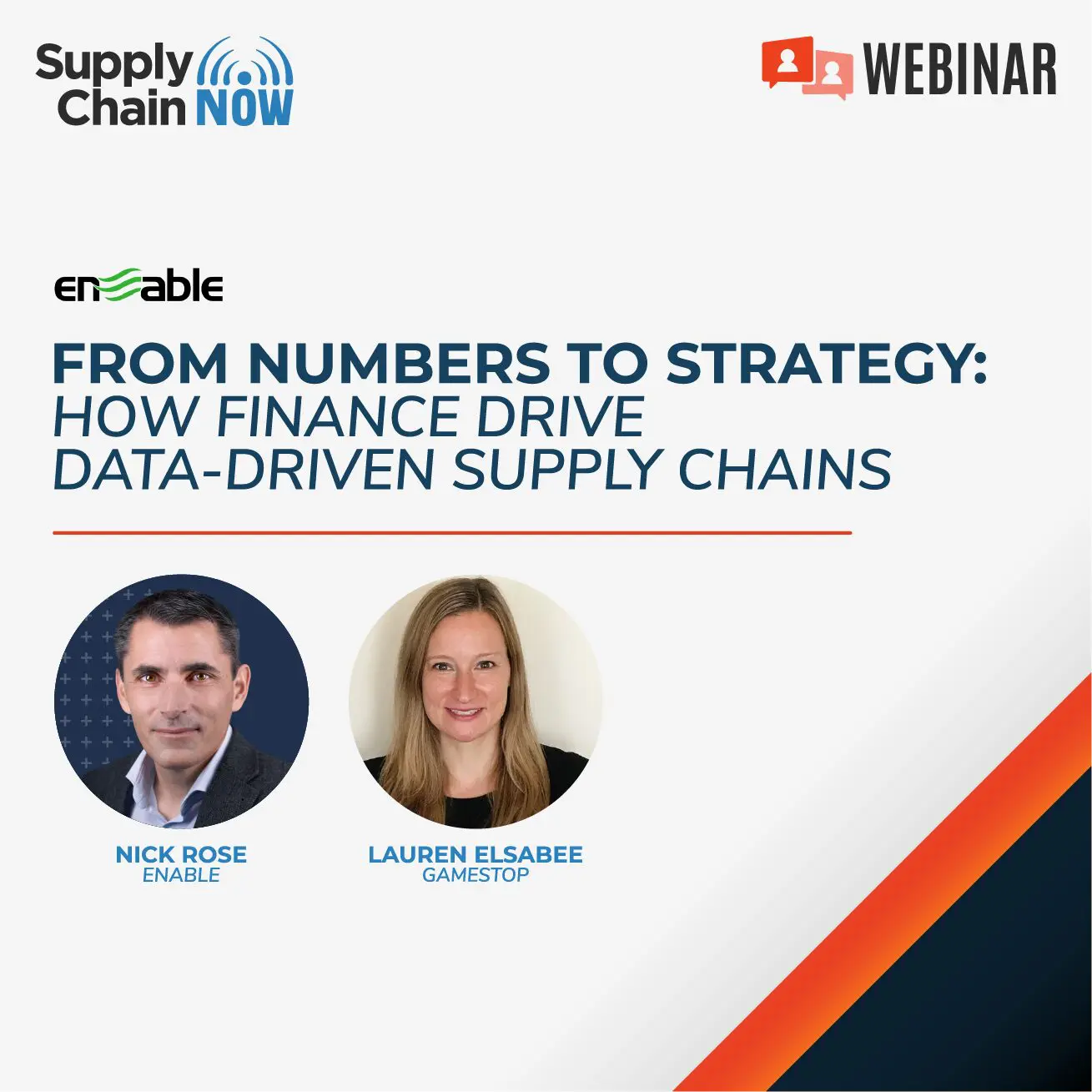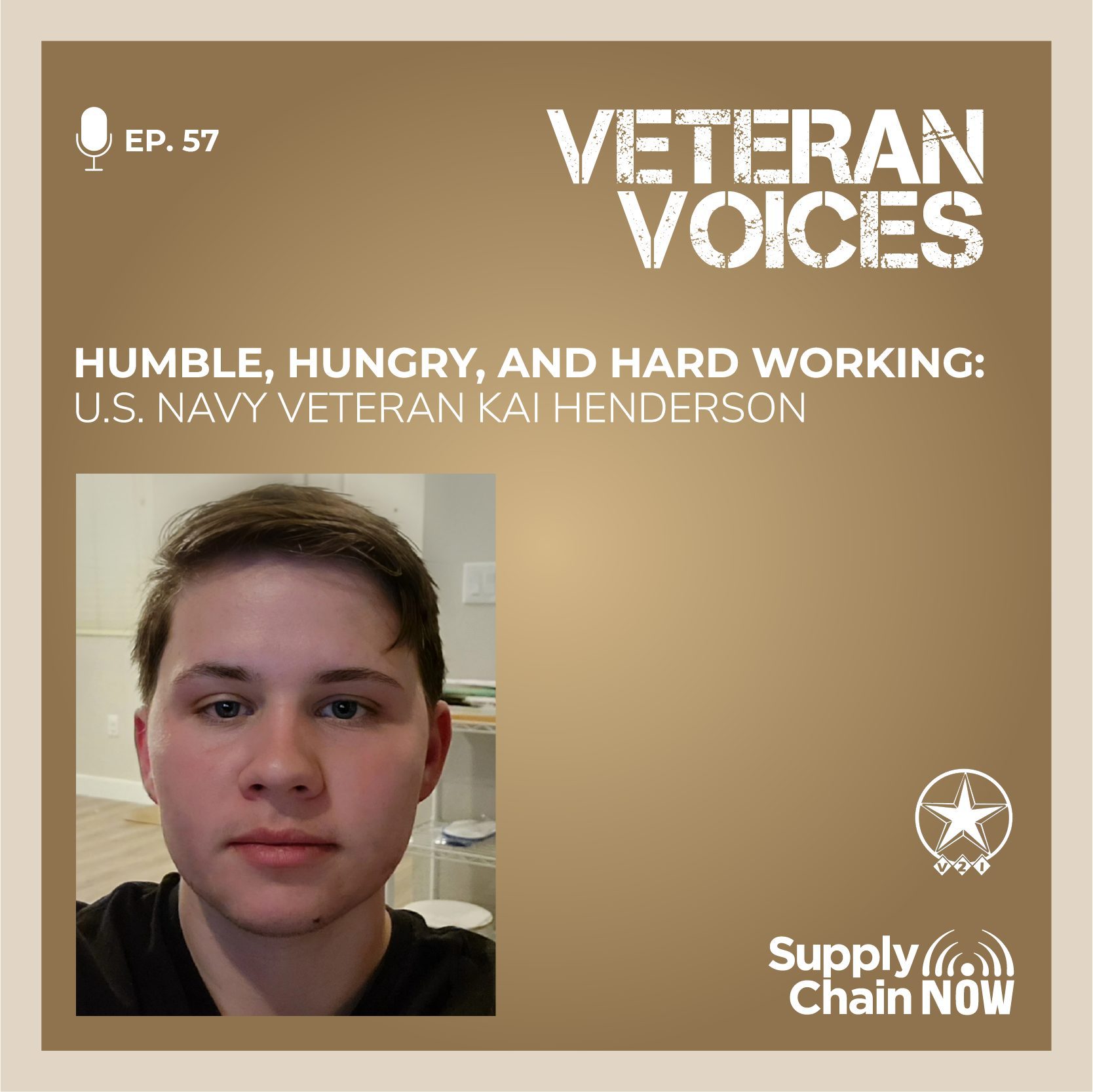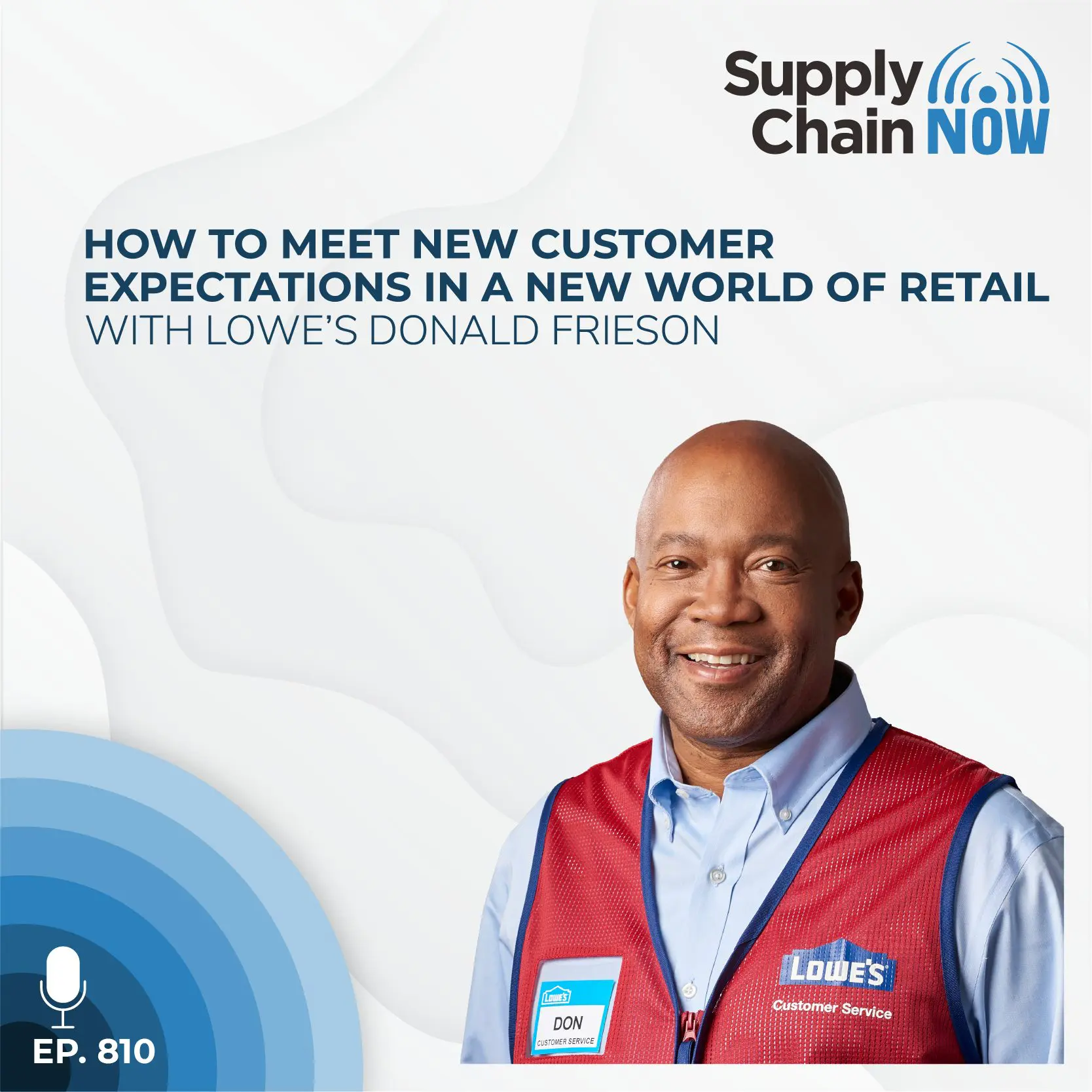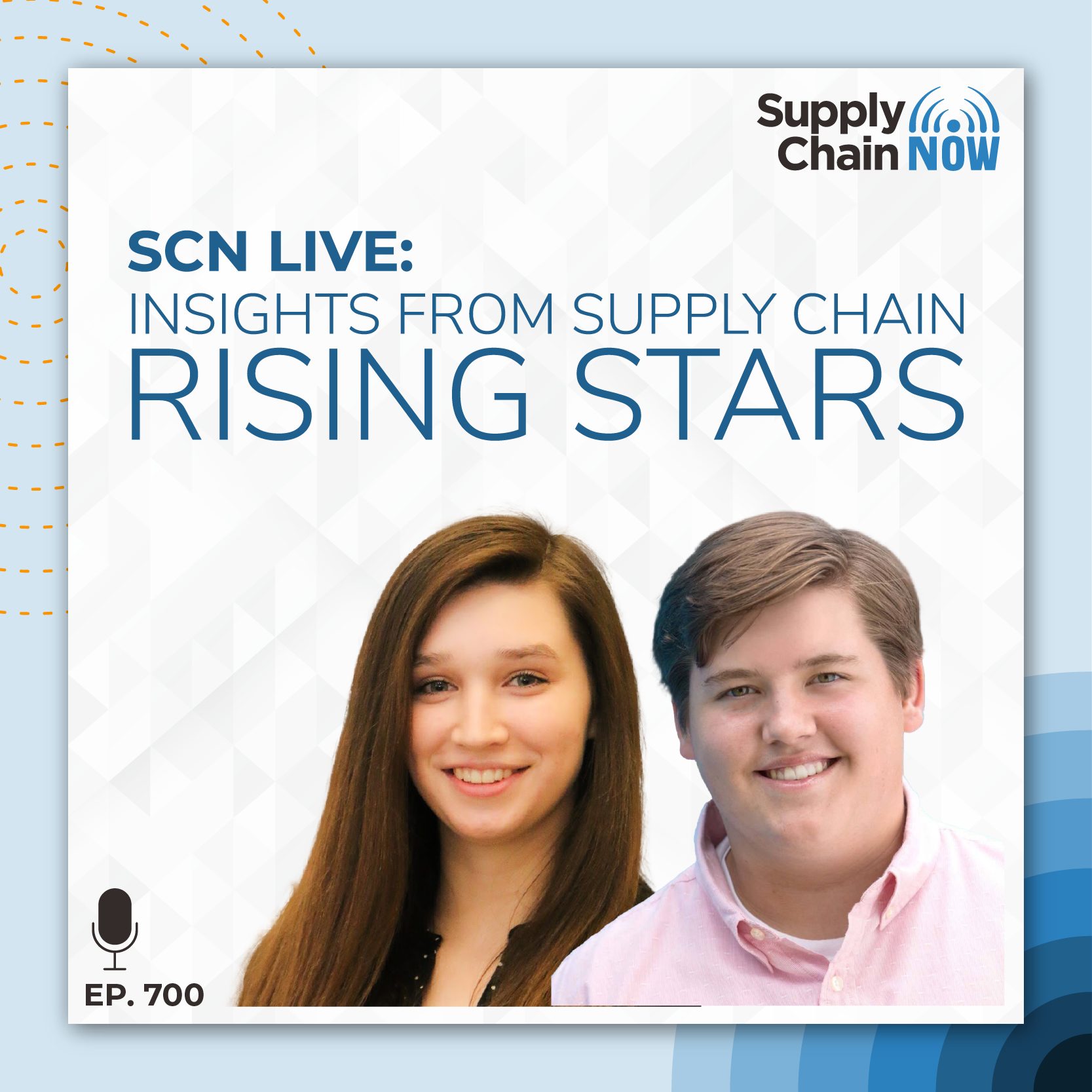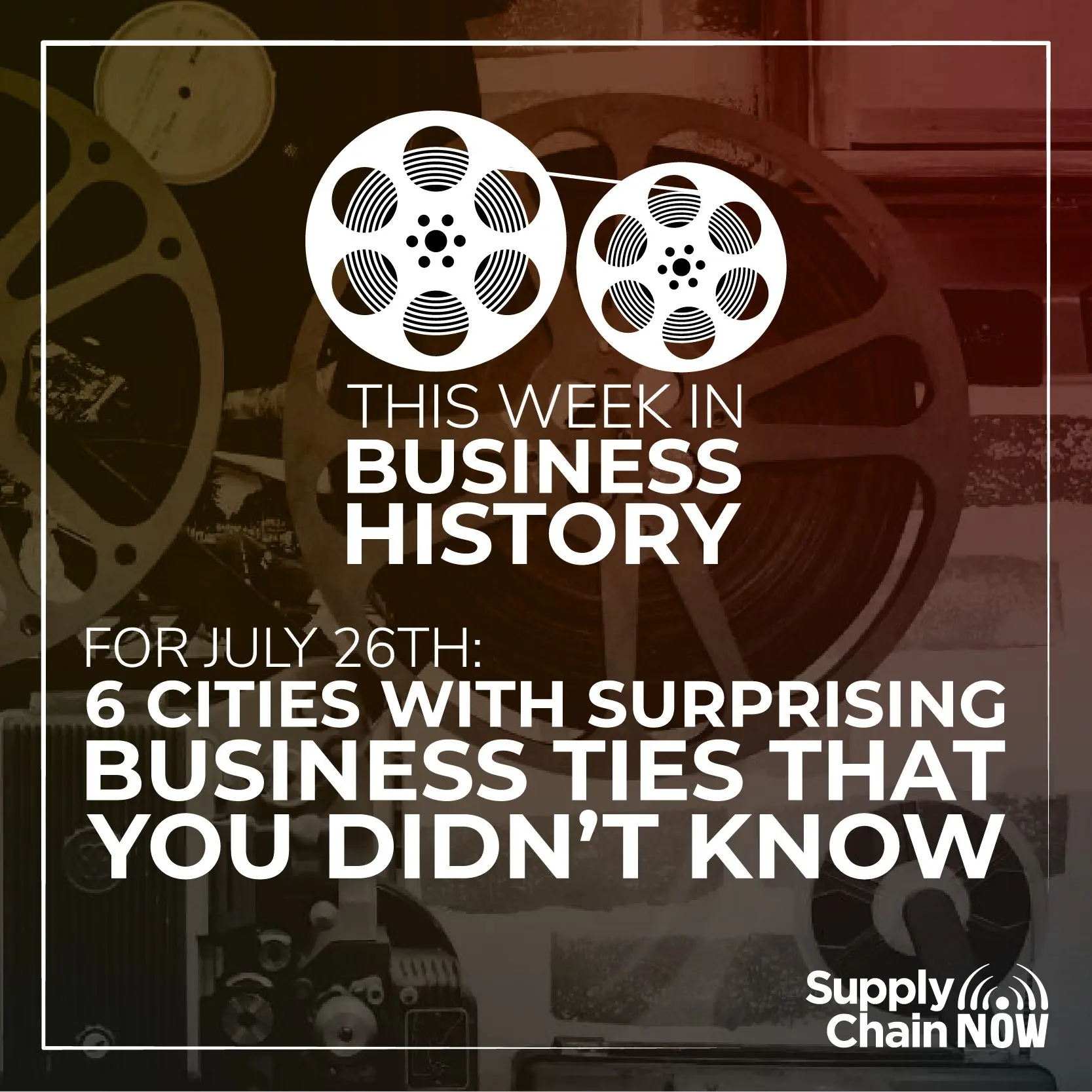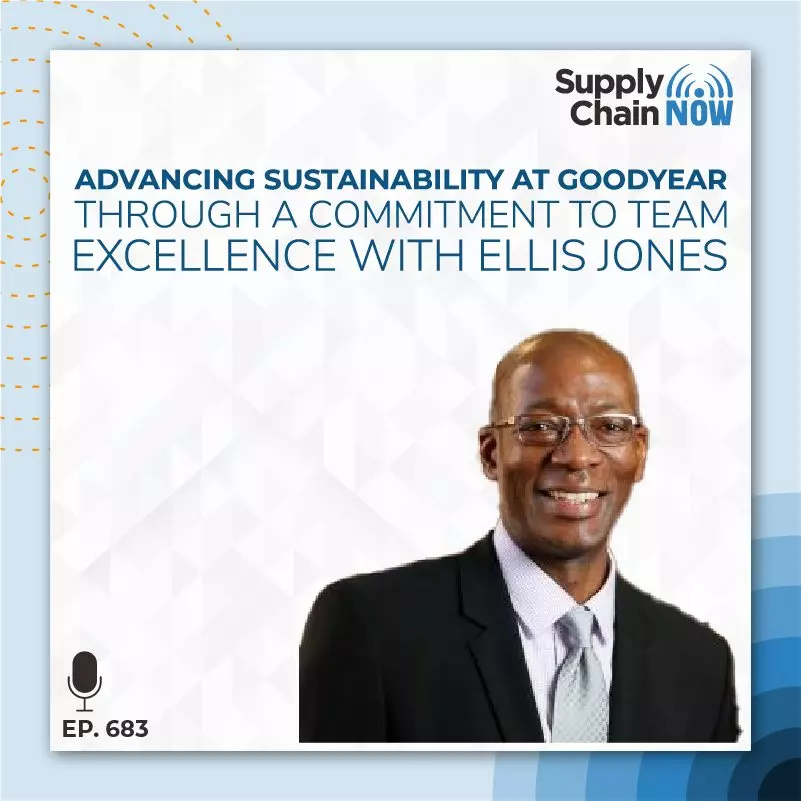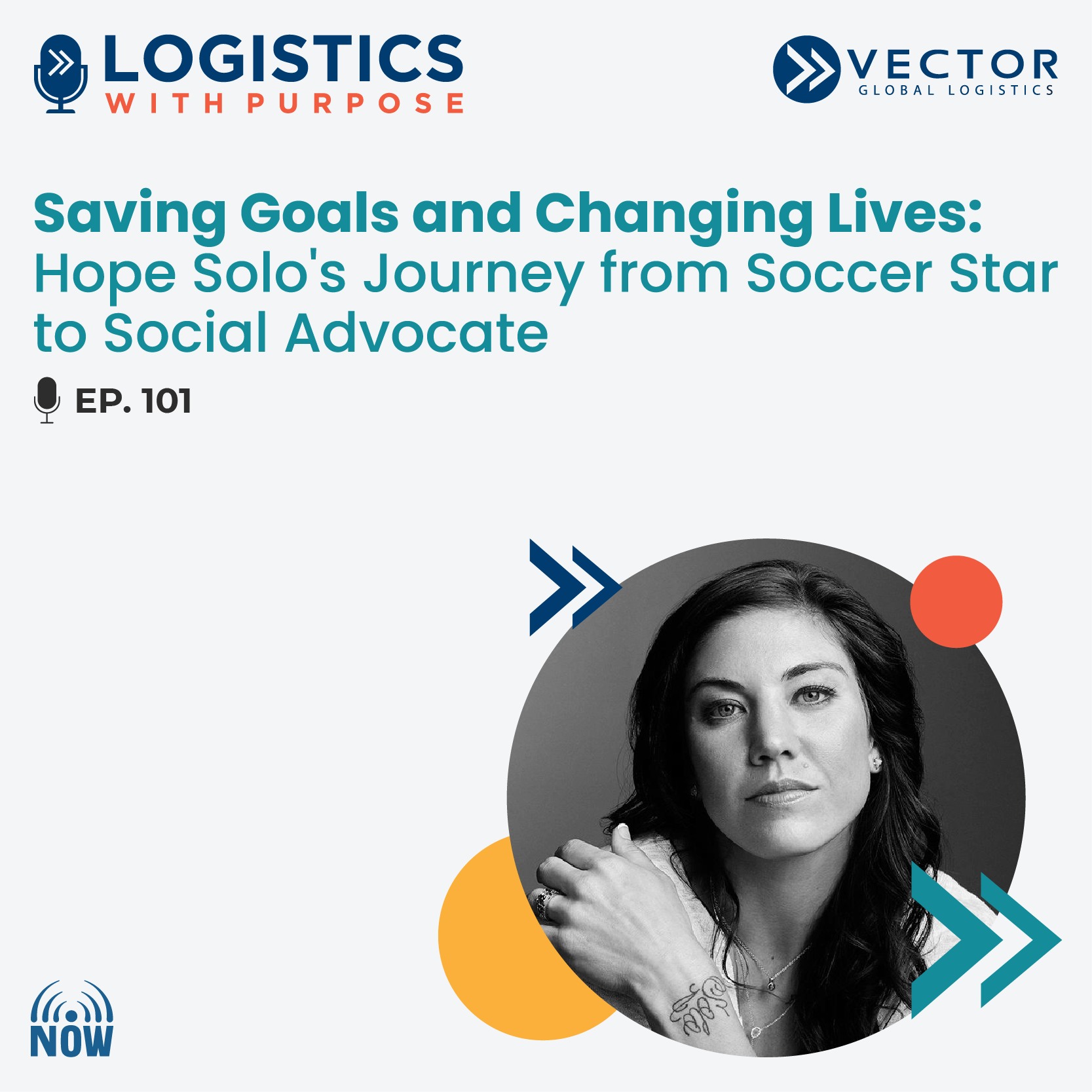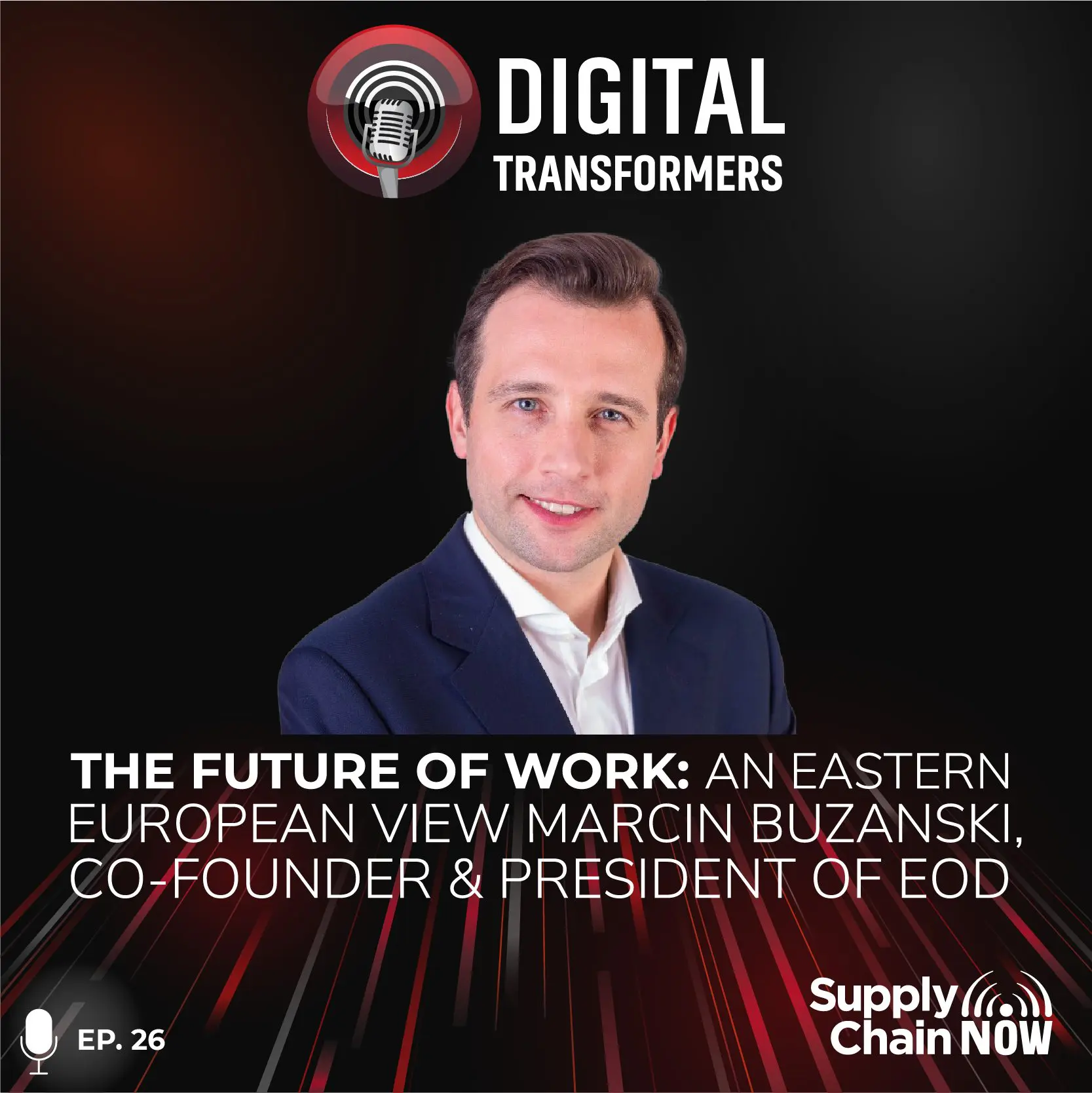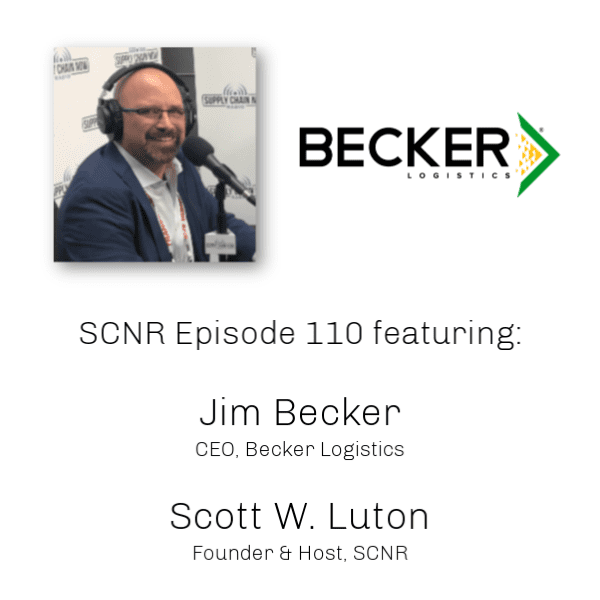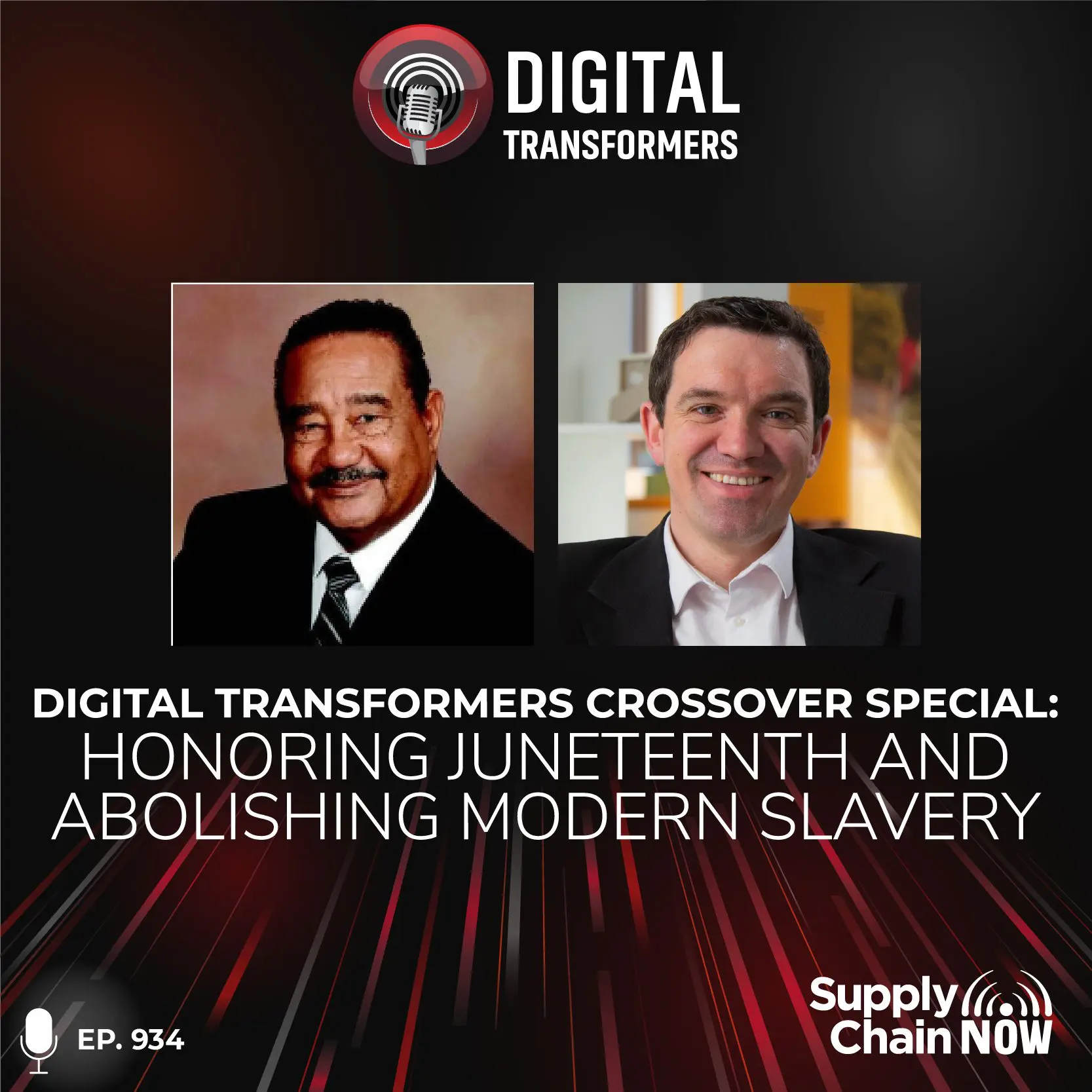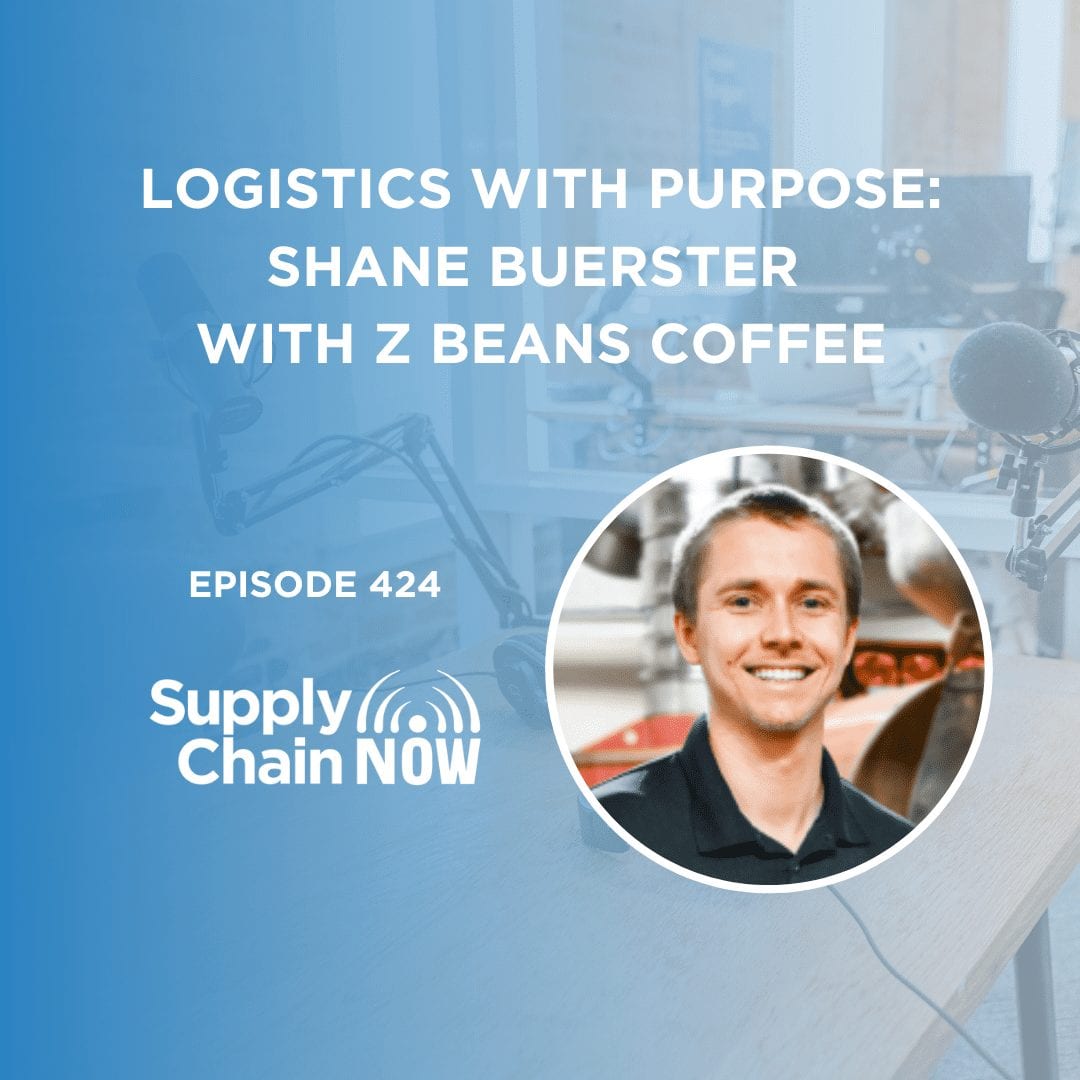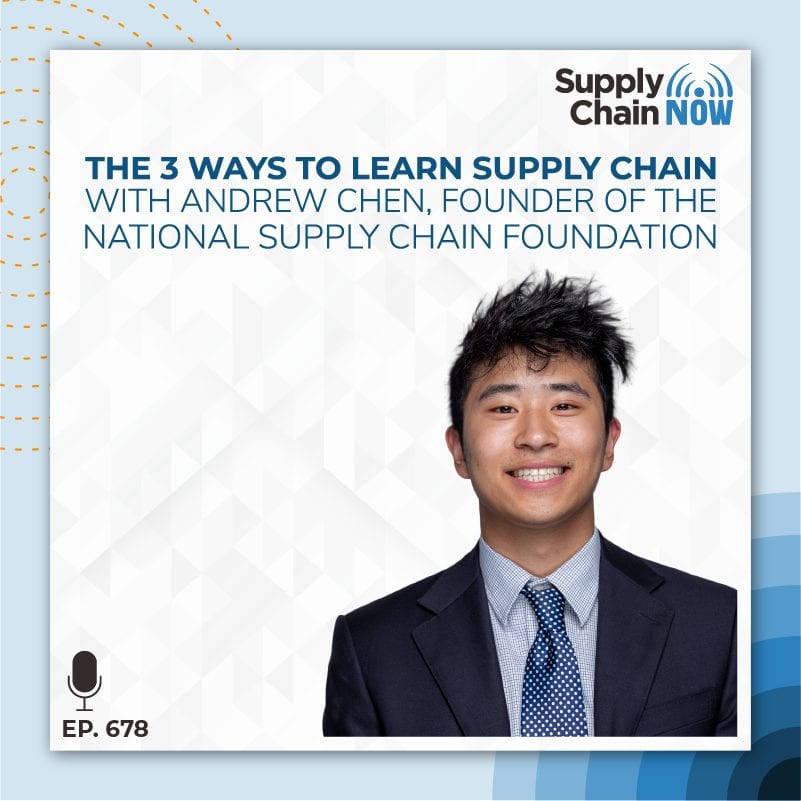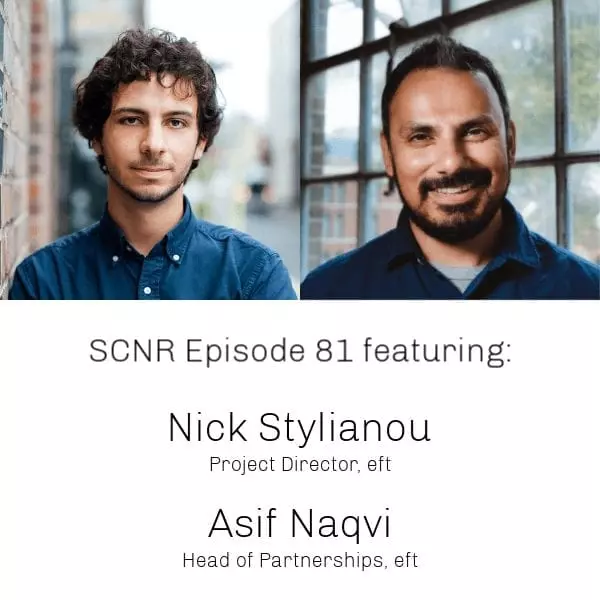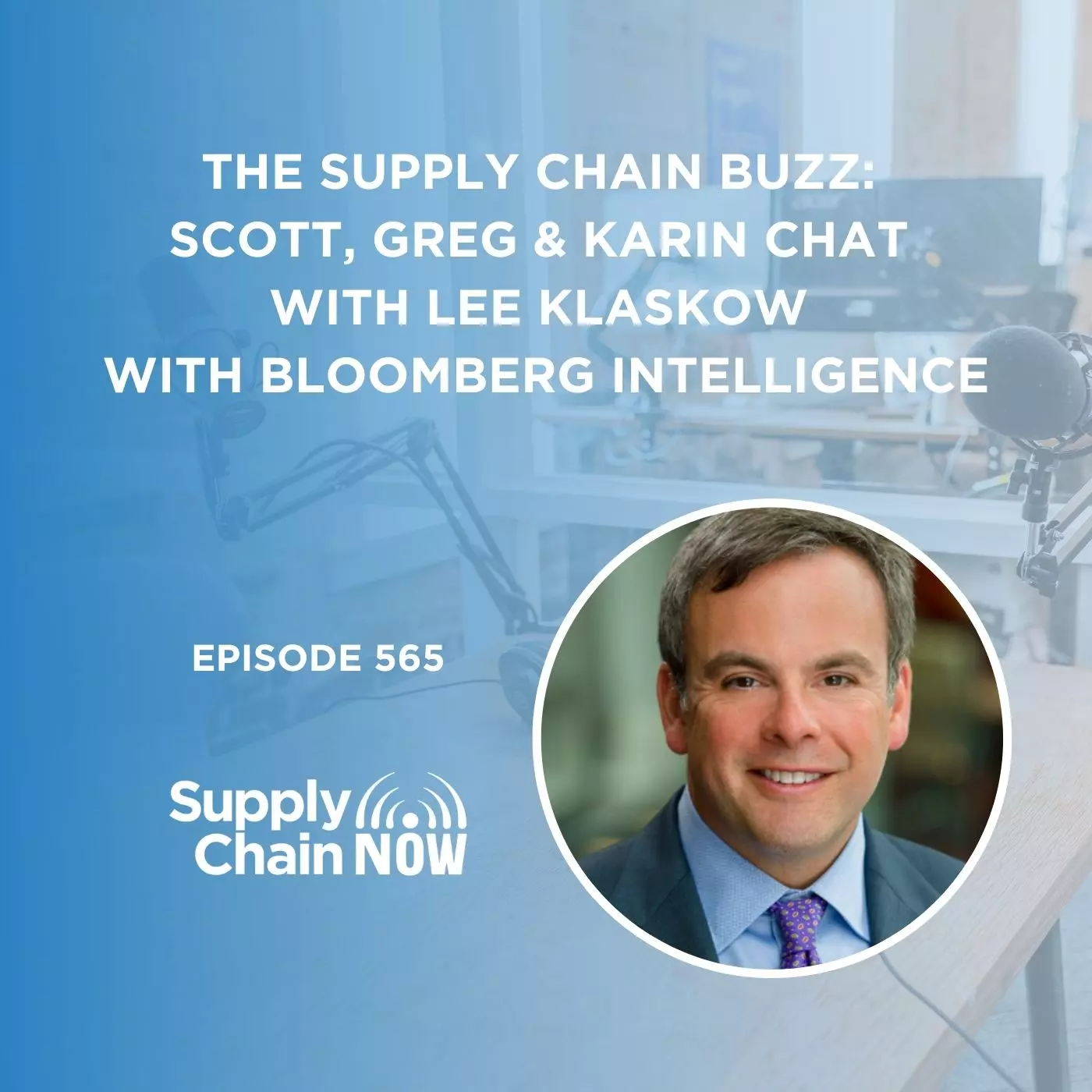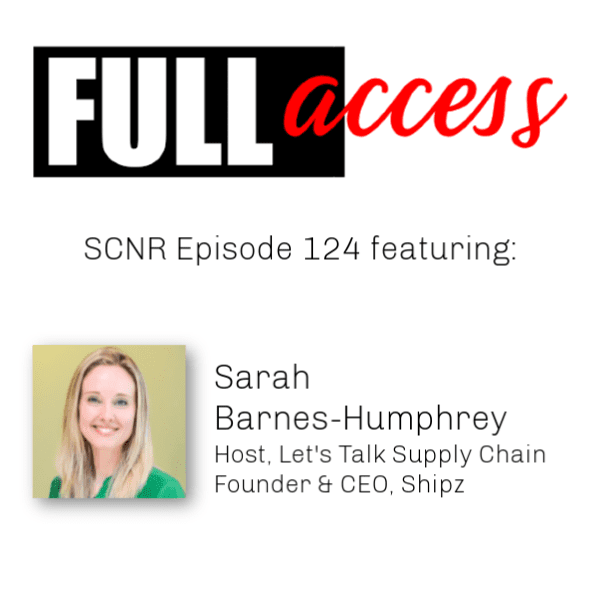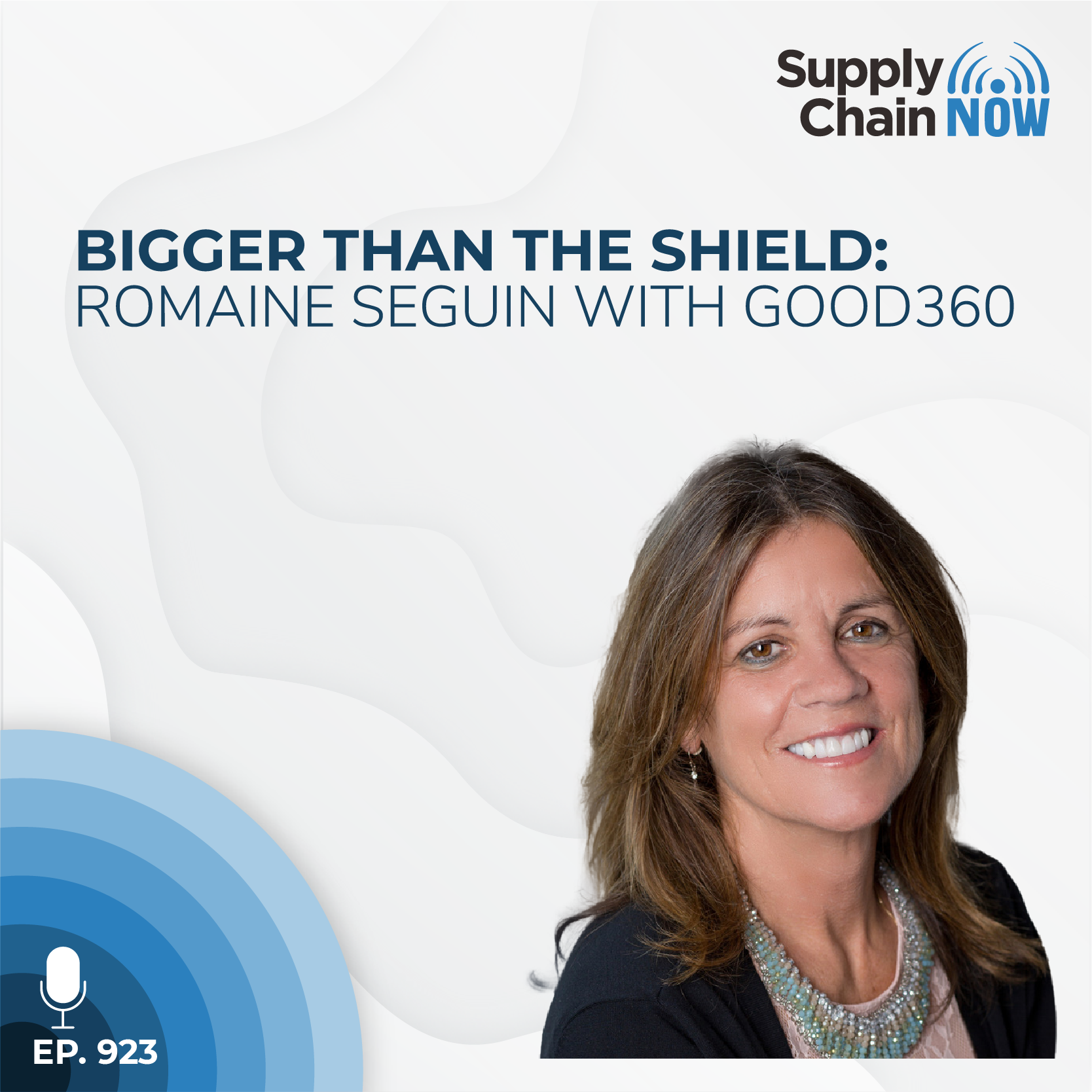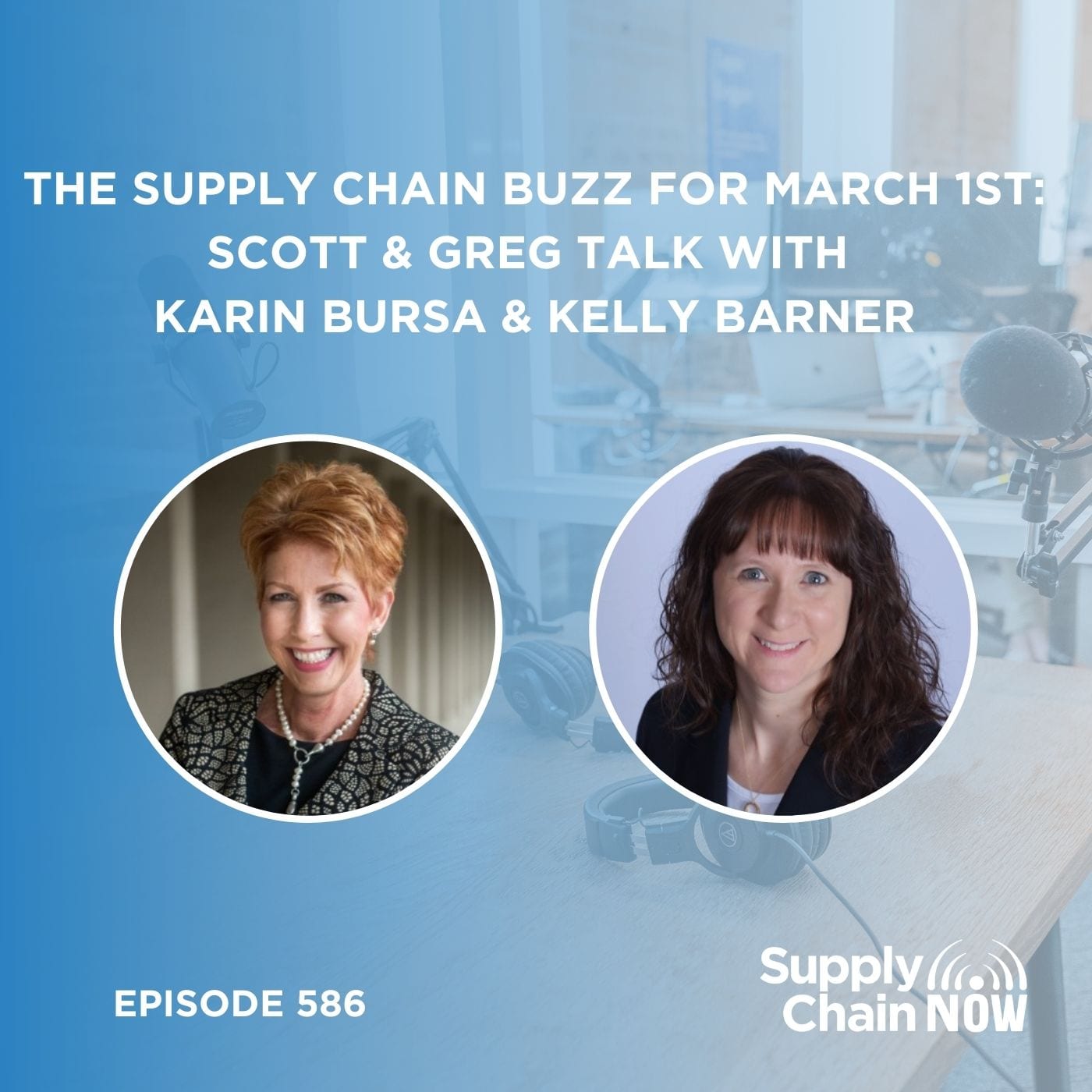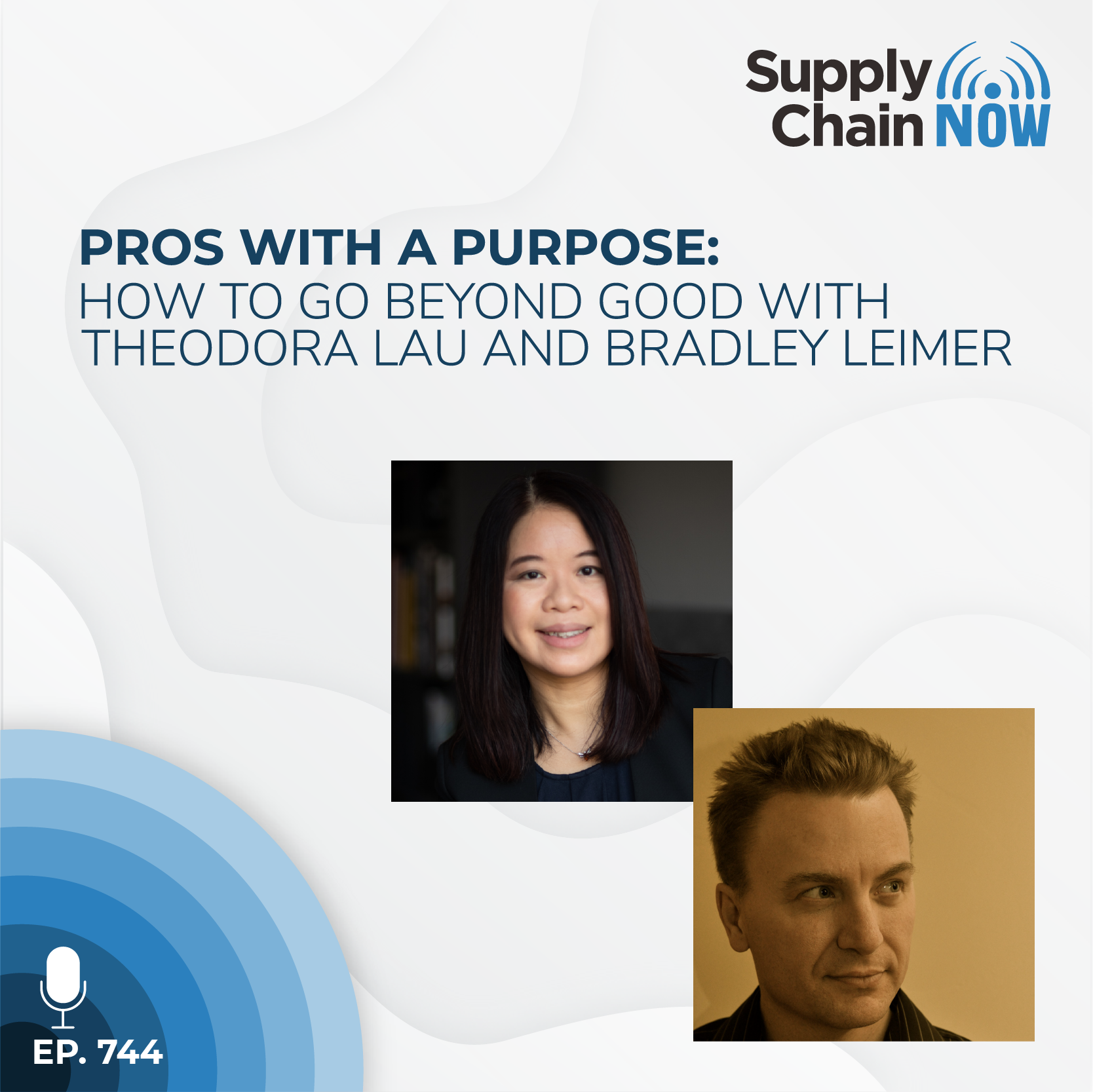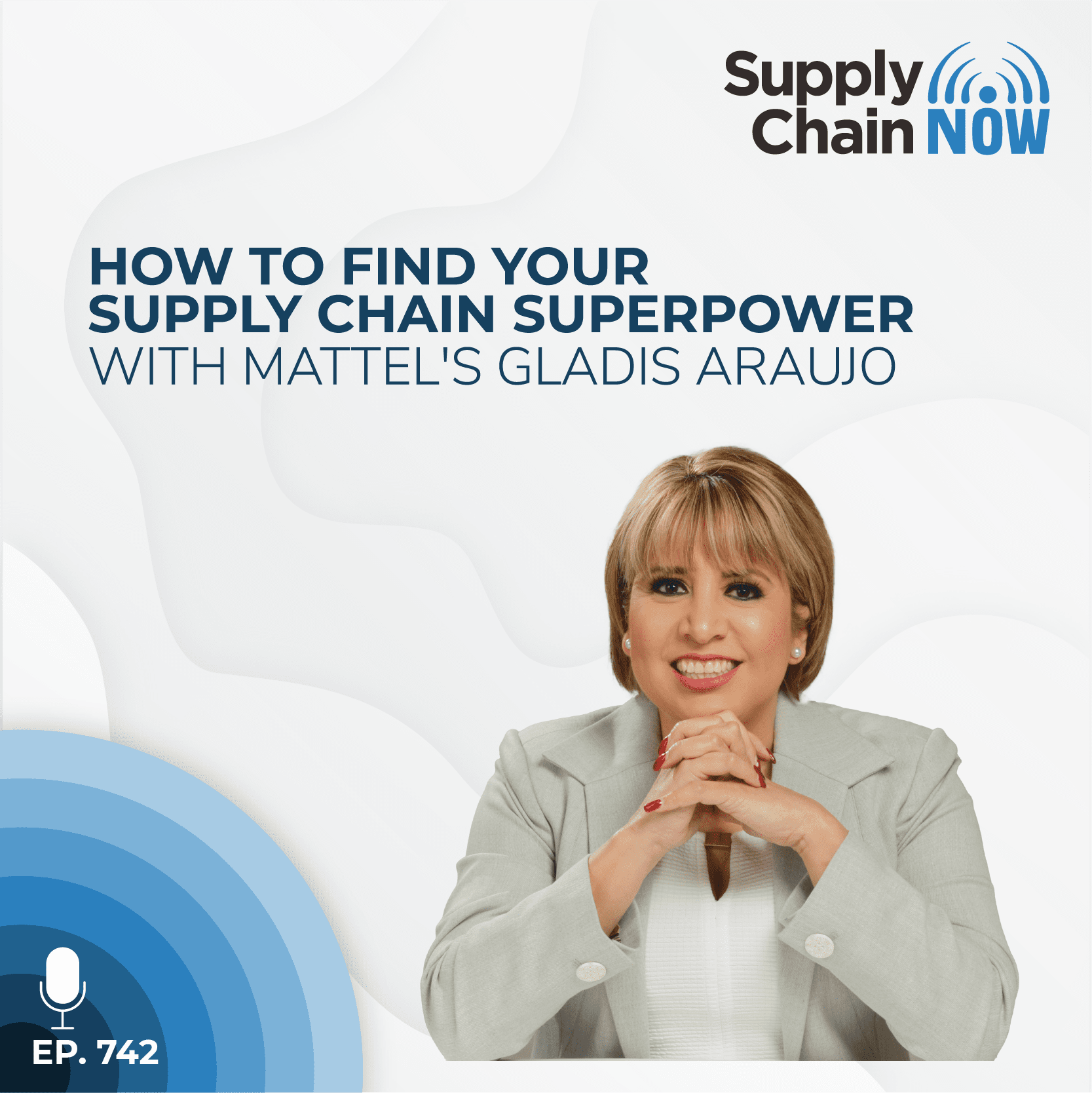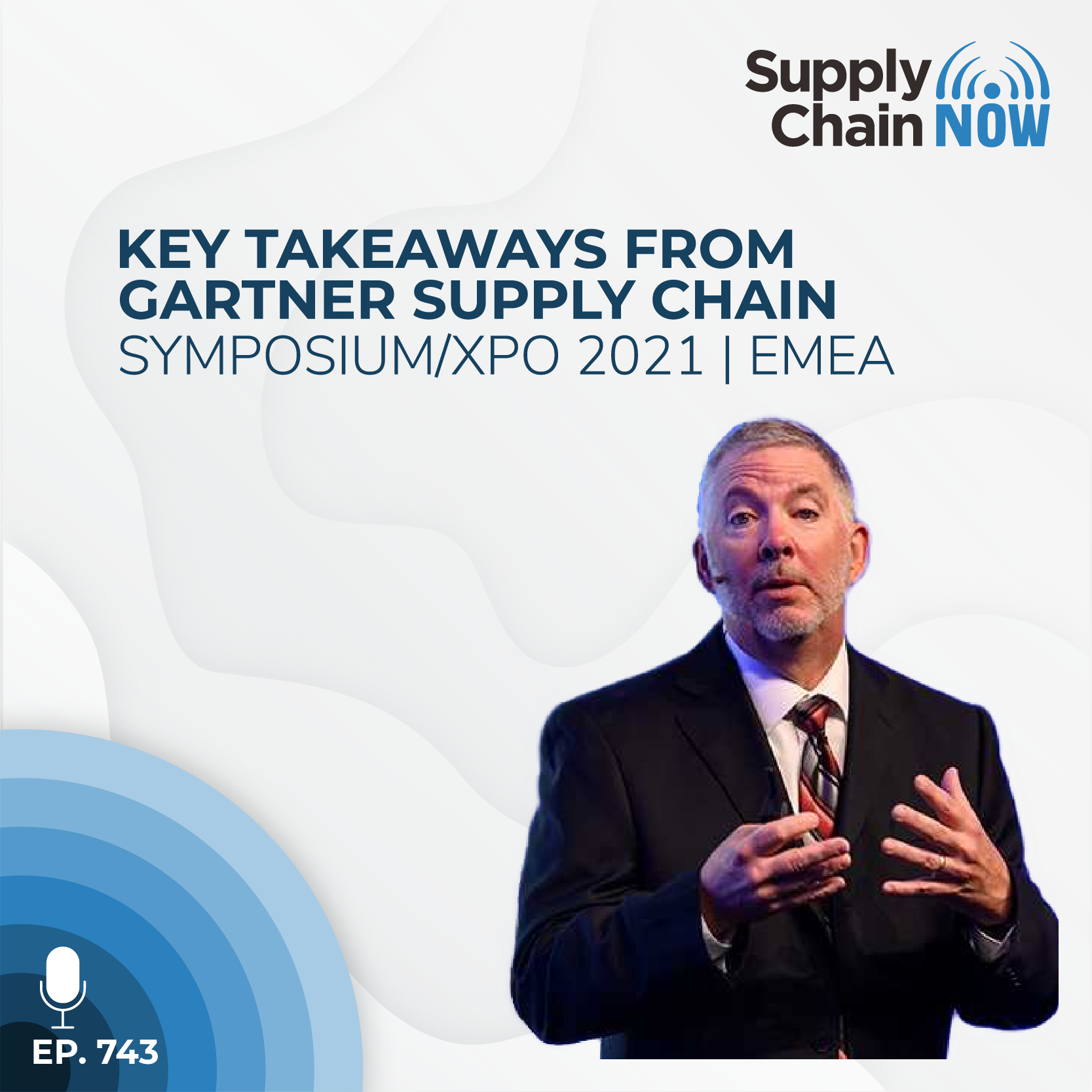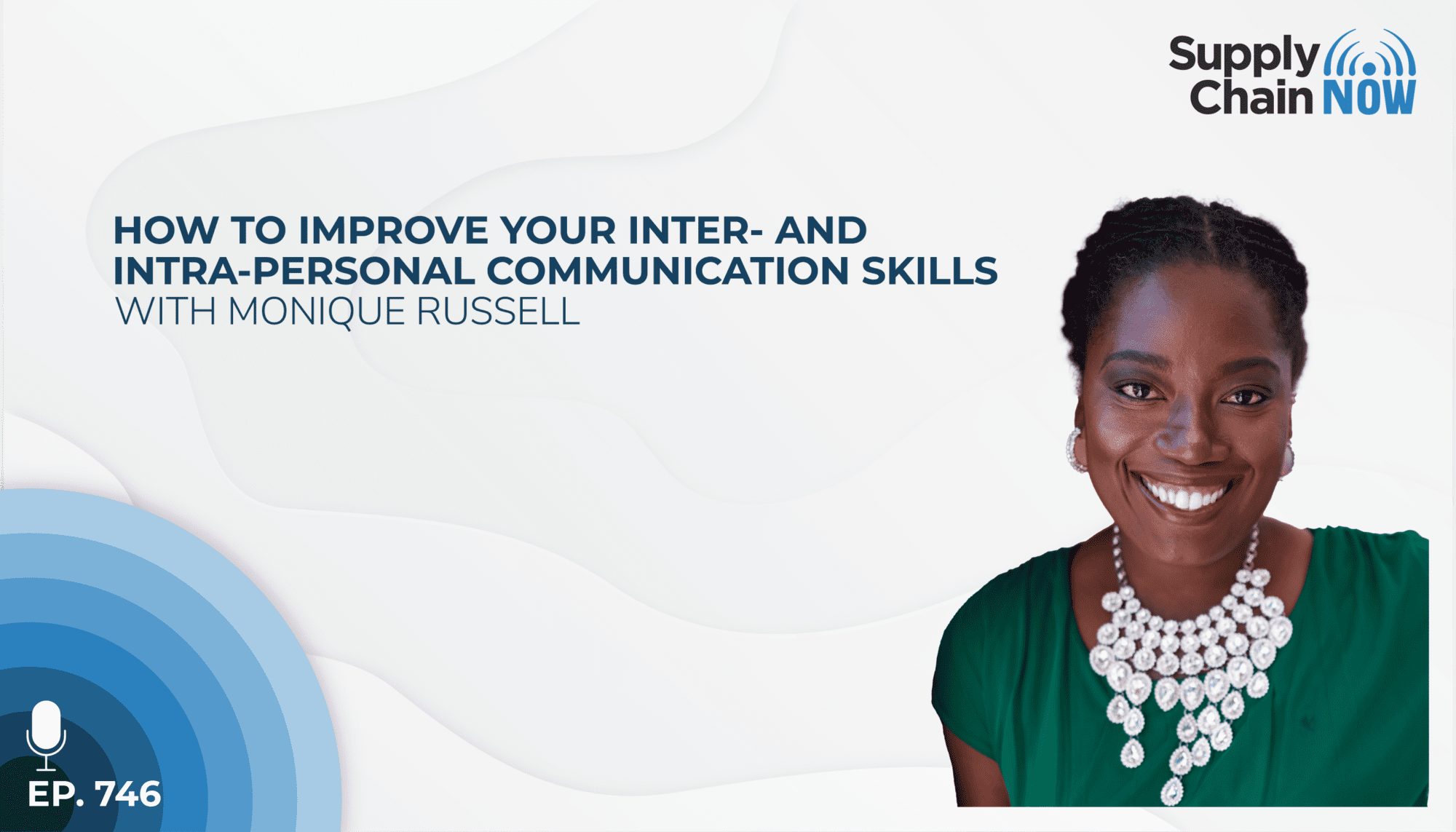
Everybody knows you're not perfect. They can see where you're struggling. You think they're not, but they can see where you're struggling. So, use that space to step more into that vulnerability and to allow others on your team to shine. Good, successful, healthy teams? They are made up of everyone who is shining in their area of expertise and in their strength.
-Monique Russell
Episode Summary
Do you make important decisions in the FOG (fear, obligation, guilt)? How much joy is scheduled into your daily agenda? Before a supply chain can run smoothly, we all have some work to do on our communication skills – and that includes how we communicate with ourselves. In this episode, communications expert Monique Russell joins host Scott Luton to give us the lowdown on building healthy, thriving teams, no matter your industry. And if you live for a mic drop moment, you’ll love hearing from Monique on everything from honest, effective decision making to connecting Black cultures globally and the emerging promise of free trade. And as a bonus, get the inside scoop on which Nigerian dishes you need in your kitchen, ASAP.
Episode Transcript
Intro/Outro (00:03):
Welcome to supply chain. Now the voice of global supply chain supply chain now focuses on the best in the business for our worldwide audience, the people, the technologies, the best practices, and today’s critical issues. The challenges and opportunities stay tuned to hear from those making global business happen right here on supply chain now.
Scott Luton (00:32):
Hey, good morning everybody. Scott Luton with you here on supply chain. Now welcome to today’s episode. Got a really special episode. It’s all about communication is an essential component of not only global business, but global supply chain. For sure. However, it’s often overlooked. It is often ineffective and it certainly often assumed that it takes place in the first place. So on today’s show, we’re gonna be speaking with a business leader that brings tons of expertise and best practices to the table, especially when it comes to communication. So stay tuned for a wonderful and informative discussion. Now, with that said, I want to take a minute to introduce our guests here today. Really have enjoyed our pre-show conversation. I’ve enjoyed following our guests across social. It’s a ton of positivity and really good vibes, and you’re going to learn a lot. So our featured guests teaches leaders and teams how to have positive and productive relationships at home and at work using effective tools and strategies.
Scott Luton (01:30):
Get this companies like Amazon, Microsoft, Google is really small companies, right? No one’s ever heard of no massive, uh, industry leaders, right? All those and others have collaborated with and trusted our guests to guide them in implementing how it’s successful communication strategies. She’s author of the books, ultimate speakers, God and intentional motherhood, who said it would be easy, probably no one ever at all. And she hosts a wonderful podcast called bridge to you. So you have to check that out. So join me in welcoming executive communications coach with clear communication solutions. OneQ Russell, Monique, how you doing?
Monique Russell (02:09):
Hey Scott. Thank you. Thank you for having me
Scott Luton (02:12):
On your show. Absolutely. Well, you know, we had the, it had to happen, had to go through your agent and get you booked months and months in advance. I’m just kidding. I’m just kidding. But you gotta, you gotta, you gotta, you got a lot of stuff going on and as we were talking, pre-show, you know, whether it’s your social, whether it’s your podcast, your books, which I’m going to have to put on an order now, uh, anything, you know, your keynotes, all the stuff that you do, you just, you’ve got this magnetic quality about you. So it’s great to have you here on supply chain now and share that and a lot more with our community. So you ready to get started? All right. So when Nate, we’re going to start with the, with the, the easier stuff, the fun stuff, because I want to give folks an opportunity to learn more about you Monique Russell. So tell us, where did you grow up and give us some anecdotes about your upbringing?
Monique Russell (03:06):
Um, I love this question so much because I wish I was there right now on the beach. I am totally a beach lady. Okay. So I grew up in the beautiful islands of The Bahamas. And I mean, as you can imagine, island life is very different. I don’t know if you’ve been there before Scott. Okay. So, you know, you know, that things are very different. The pace of life is much slower and you know, there’s seems to be a little less stressed. People tend to feel like, you know what, when I go to the islands, I’m going to slow down. I’m going to shake off some stress. And for me, when I was growing up, I mean, I felt like that I felt so blessed to be in an environment where I could literally go to the beach every day. And we pretty much almost did. Wow.
Scott Luton (03:55):
Really quick. What, uh, specifically, uh, across The Bahamas, what town or beach or you name it? Where’d you grow up?
Monique Russell (04:02):
I grew up in Freeport grand Bahama, which is the second city. So Nassau new Providence. It’s what most people tend to know about. They go on the cruise, they go to Atlantis, but Freeport back in the day used to be really, really powerful. I mean, it’s, it’s the second city. I mean, you had a lot of happenings going on. Of course it will put the years with the hurricanes and with the economy, things have really taken a toll. So it’s really not as thriving as the way it used to be, but back then it was, it was on and popping.
Scott Luton (04:33):
So, so tell us, I love the picture you’re painting already. And I bet a lot of folks that are listening or watching this, uh, they appreciated that momentary, uh, departure from wherever they are. Um, what else was so really cool and unique and enjoy about enjoyable about growing up in Freeport in The Bahamas general?
Monique Russell (04:54):
Well, I’ll tell you a story because you know, we, I grew up from very, very humble beginnings and I remember one time when we had a fun day at school, I think I probably was about eight. I went to St. Vincent DePaul school and I was about eight. And we had fun day. I don’t know if you, if you guys had this, but fun days where you, you don’t have to put on your uniform, you could buy candy, you could do all kinds of stuff. And so my mom, she gave me $10. Okay. She gave me $10 and she said, Monique, take five to school for fun day and leave five at home. And I was like, no, no, no, no, no, no, no, no, mom, I’m going to take, I’m going to take the $10 and I’m okay, I’m going to be fine. I’m going to be fine.
Monique Russell (05:41):
And so anyway, I took the $10 and I went and I mean, I bought all sorts of stuff. And then next thing you know, like my friends were like, oh, can I borrow a dollar to do this? Can I borrow a lot to do that? And I said, yes. And so I went back home and my mom was like, okay, so Monique, how much money do you have? And I was like, well, I don’t have anything right now, but my friends borrowed a dollar and you know, they’re going to pay me back. And so the long and short of the story is I never got the money back. Everybody enjoyed spending Monique’s Funday money. And, and I will never forget it because I had so much fun. I just had so much fun. Um, and I remember that vividly, but now I have definitely learned from that, you know, don’t take everything all at once climate head and don’t look, oh, I remember she said, Monique. She said, if they don’t pay you back, don’t go chasing anybody for it. She was like, don’t go chasing anybody for it. And I didn’t, I just left it alone. So,
Scott Luton (06:50):
Okay. You’re kind of illustrating how fun it is to give. Right. And rather than just always receive and again, give where other folks can enjoy a few things maybe that they couldn’t get. Otherwise we had field days, uh, in elementary school where I went and in particular, in the earliest grades, I went to St. Mary’s, uh, in Aiken, South Carolina, and for one field day where I forgot to get money from my folks to enjoy ice cream or whatever it was, I went and found the, the, the priest, the father of the school. And I figured, well, he’s got to give me, you know, he’s got to let me borrow money. And, and he did kindly, you know, bless his soul. When I went home and told my mom where I got the money to buy the stuff I did, I just about got the beating of my lifetime. So she felt I was taking it in it better than that. So, but back to your story, I love that. And you know, you were kind of came from, from humble means. So I bet that that $10 from your mother that was a sacrifice to enjoy, allow you to enjoy that fun day at school. Huh?
Monique Russell (07:54):
Oh yeah. I mean, my mom was a teacher, you know, if you think teachers don’t make much here in the United States, tried the islands. Okay. Try the islands. Teaching is not something that you do for money. You do it because you love it. You do it because you want to make an impact. You know, so everything went a long way.
Scott Luton (08:14):
I love that. Okay. That’s a great segue because teaching obviously is a professional needs a lot more recognition and, and higher pay rates. We’ll save that for another discussion. Let’s talk about your professional journey when it, you know, uh, I want to talk about, uh, I know you’ve done a lot of things, uh, during your time, uh, also a fellow entrepreneur, what’s a couple of roles during your journey. That’s helped shape your worldview and, and has had a huge impact on who Monique Russell is here today. Um,
Monique Russell (08:44):
Um, there’s so many squats, you know, I’m like, okay. So, so to come to mind, to come to mind, rising to the top. And one of them is when I was, uh, working in executive support after I graduated from college, you know, my dream was to be an international broadcast journalist. You’d be listening to me, tell stories all over the world on air, and it didn’t happen that way. Okay. So after hundreds of applications, it was a lose, lose battle. And I started in executive support and I didn’t want to be there. And I was like, this is not what I went to school for. I’m too smart for this. I have too much education, et cetera. You know how it is? Your young life just is not follow the path that’s supposed to follow. But what I realized not then, but later is that was sort of a hands-on practical training for me.
Monique Russell (09:40):
So I was able to see a lot of behind the scenes work because you know, you’re an executive support. Nobody considers you a threat. You watch the leaders who go out and they puff up their chest and they look invincible and strong. And then you get to be behind the scenes when they’re just human beings. It titles don’t matter. It doesn’t matter if you’re the CFO, the CEO, the VP, nobody cares. And because I was already into communications and I was being nosy, wanting to know everything, you know, wanted to be in the know, I would often get asked a lot of times on how to solve problems. You always need at that level, you need thinking partners. You need people who can, you know, you can bounce ideas off of. It’s a lot of pressure at the top. And so that really shaped my worldview in terms of not being intimidated or afraid by any title, no matter what the title is like at the end of the day, we’re all just human beings. It doesn’t matter if you’re the CEO. It doesn’t matter if you’re the receptionist, we’re all just human beings. And we all have the same needs. That was one thing that I think I will never forget. And it, it shapes how I interact with people today. I don’t really mean,
Scott Luton (10:57):
So Monica, let me ask you a follow up to that, uh, because kind of reading between the lines and knowing that you’re a trusted advisor for so many today leaders and, and, and folks across, uh, the professional spectrum, it seems like that was your first taste of being a trusted advisor to these folks. And again, reading between the lines, it seems like you enjoyed that.
Monique Russell (11:16):
I loved it because like I said, I was, I was nosy. I wanted to be in the know I wanted it to be. I remember when I was interviewing and, um, the lady was like, why, why do you want this? I said, because I like to be in everything. I like to know what’s going on. Who’s doing what, which was perfect for the role, but I didn’t see myself as a trusted advisor. Then Scott, I have to be honest with you. I did not see myself as a trusted advisor. It was only until years later when I reflected, because remember I was like, this isn’t, this, isn’t what I went to school for. This isn’t what I have loans for. You know, hello. I mean, come on. Let’s just be real here.
Scott Luton (11:59):
You know, there’s so much there. We could probably dive into that role and really what you’re illustrating now, how that that’s not what you felt you were walking this earth to do, but it really seemed like it was important for you to take that and experience that for what was later to come. What else, what other role, uh, you said you thought of to, what are the roles really helped shape who you are?
Monique Russell (12:22):
So, you know, I went to school to be a broadcast journalist and right after, well in between that, when I went back to The Bahamas, but I did a short stint in Minnesota, that’s where I went to school. And so I did a short stint in Minnesota where I was doing, uh, some news stories. And then I went to The Bahamas and I spent like a summer and I worked at the TV station and I remember I was doing a story and the story was covering an angle, um, that wasn’t really the most favorable angle to cover because the government, it was, you know, depending on the government who was involved at the time. And so I took the story to my senior editor because everything has to go through, you know, the process and you have to have it approved by the senior editor before it could be read on air.
Monique Russell (13:13):
And I sent it to my editor and he came to my desk and he was like, you’re not running that. You’re not, you’re not just like that. You’re not running that. And I was like, why? And he was like, don’t, you know, who’s in power. And I was like, okay. So, so first of all, Scott, there’s a lot of things around that period time period that happened. And what I realized, I mean, we, we changed the story, things tweaked up a little bit, but what I realized doing the work in The Bahamas and doing the work in Minnesota was that whoever is writing the story, whoever is crafting the narrative is the one that has the control or the influence. And just because it’s on a big platform, just because it can reach a lot of people because you think of media. And a lot of people are very, they don’t know how it works. So they feel intimidated by it. Or they feel like it’s larger than life because you can see it everywhere and not really knowing. It’s just really a few, you know, owners and whatever have you. Um, but if you understand how it works, what I realized then was, you know, it doesn’t matter how big the platform is. The message can still be wrong. It doesn’t, it doesn’t just because the platform is big. It doesn’t mean that the message is right.
Scott Luton (14:39):
Okay. We’ve got to say that loud or for the folks in the back so that no matter how big your platform is how global it is, how universal it is, I mean, Lister, and she’s got how many subscribers you have, how many advertisers, you have the message that doesn’t make the message, right? So I love that. Uh, and it feels like we could have a three hour conversation about these experience experiences that you’re sharing. One, one more followup question. Then we’re going to talk about Eureka moment. So you went from growing up in the Freeport area to Minnesota, which is a gorgeous state, and I’ve been to Minneapolis and twin cities have gorgeous, great people, but goodness gracious. It is cold and snow stays on the ground forever. How did you embrace that? That geographic change?
Monique Russell (15:27):
I was ready to get off the island. So it didn’t matter where I went and the place where I went. If I started off at the college of St. Benedict well, in my family, we have a tradition, had a tradition. I broke the tradition and girls would go to the colleges St. Benedict guys go to St. John’s university. Well, you know what? After my first year I moved to St. Cloud state university, which was the public university in, uh, St. Cloud St. Cloud, Minnesota. So I kind of like, you know, didn’t really follow that whole path, but I was excited, you know, you’re young, you’re going off. My mom saw me at the airport and Nassau put me on the plane and, and I was off. That was it. Like I was, I was off. I was so excited. I couldn’t wait to get there the first night. I did have a little sickness, but that was it. And then I got a job as a multicultural student consultant there. They gave me a car. I had a beeper. I kidding me. I had a beeper, literally, literally in one semester I was a new student, international student. And then I was picking up students, international students from the Minneapolis airport. And that’s an hour away. Wow. I love it. That should just give you,
Scott Luton (16:49):
Yeah, it does. It seems like you really wrapped your head around this, this adventure you’re going on. And it being different than what all that tradition had put in place. And it seemed like right away, folks were, you were no longer, you were short in terms of being the new person on campus. You became a resource and I go to, and I’m sure there’s a lot more chapters to that book we could write, but I want to ask you Eureka moments. You know, if the pandemic era has taught us anything, you know, it’s these little Epiphanes and sometimes big Epiphanes we have seems like daily, right? What’s a Eureka moment. Whether it’s one related to those two experiences, big experiences, you had three, I guess, what, what, what you walked us through or recent times, give us a Eureka moment. That’s that, that still weighs on you.
Monique Russell (17:35):
I mean, the one around the platform for me was huge. It is huge. And I think it really gives me or anybody with that mindset and advantage because not everything you’re looking at is gold. Like all the glitters is not, is not gold. And I think sometimes today, especially since we’re so much in a digital focus, we can get sidetracked or confused by looking at things online on social media and not really understanding that. So the big Eureka moment for me is something that I take, not even just from that journalism aspect or looking at the leaders that I supported when I was an executive support. But now as an entrepreneur, I mean, you don’t see people putting their worst moments out there. You don’t that you don’t see that being highlighted in Forbes and Inc and 40, under 40 and all that other stuff, you don’t see that. And so I think that the big aha is to always remember that you’re only seeing one side of the story. You don’t know the full story. That’s, that’s a big one for me.
Scott Luton (18:45):
Uh, a great one. I think that there are so many different ways in situations that that applies to right. Um, whether it comes to conflict, whether it comes to, um, negotiations, whether it comes to, you know, uh, the stories we’re seeing play out across social, that seems like a lot of folks. And, and I’m guilty as charged, hold it back until they’re ready and, and able to embrace kind of being more vulnerable, which of course is a big part of leadership. All right. I feel like this is, I feel like, man, I’ve got my 12 pages of notes already and talking with you, Monique, and we’re, we’re just now all this good stuff, but we’re getting to, to where your expertise, you know, a lot of, a lot of where you help other companies and other leaders. So tell us, we’re gonna talk about communication skills in a minute. So folks, if you’re listening, we haven’t touched a lot on supply chain and that’s okay because we’re, we’re getting to, in terms of communication, that is what powers, as we all know, global supply chains ahead, we’re going to get some best practices from, from a Monique on that in just a moment, but tell us first off clear communication solutions. What does your company do?
Monique Russell (19:50):
Okay. We are a global training, coaching and consulting firm on only focused on leadership and communication skills development. That’s it enter an interpersonal and intrapersonal. So how you communicate with yourself? That’s the inside the inner peace. And then intra is how you communicate with others.
Scott Luton (20:12):
Love it, man. Love it. I could talk leadership with you and communication all day. Um, it seems like you’re, uh, even though you have accumulated and you’re helping others, it seems like you are a tireless student, uh, in study of both right day in and day out. Is he, you strike me, is that right? Do you, do you find new wrinkles?
Monique Russell (20:34):
Oh yeah. You hit the nail on the head and that’s actually one of the values that we embody in the company. Integrity is definitely one. Do you do with you say, you’re going to do, how are you going to treat your customers? Transparency is another one. Like we have to keep the lines of communication open. If there’s a problem, you know, are you stuck somewhere? These things also help determine like who would be great for company culture. And then, I mean, absolutely continuous learning and development, because if we are not continuing to develop, we can not help our clients continue to develop. The world is changing, it’s ever changing. So even though there’s some staple aspects of communication, the environment has changed. And so how you respond to the changes in environment is key.
Scott Luton (21:24):
Okay. Gosh. So much to dive into there. Let’s talk about the communication skills and we’ll kind of focus in on that. Cause that’s, that’s a big part of, of effective leadership, a big part of, of organizational success. It’s a big part of just being a human being, which is we need that in doses these days. So when it comes to communication skills, Monique, let’s talk about some of the, either the best practices that you see or that, that you help individuals or organizations with, or, and we don’t have to name names, but talk about some common mistakes that you see happen with both quite a bit.
Monique Russell (22:00):
Yeah. We not gonna name names.
Scott Luton (22:03):
That’d be fun though with it,
Monique Russell (22:05):
But listen. Okay. So communication is so broad. And so we have to be able to point to exactly the skills that we’re looking to develop now, uh, on the interpersonal side, these skills can be in the areas of effective delegation. For example, you may find that you’re struggling to let go. You’re struggling to guide your employee. Maybe you’re not even sure about the work itself. And so it, it creates that fuzziness delegation is a big one. It’s tied to a lot of your emotions and how you feel about this process. There’s tactical pieces for sure. But then there’s the definitely that emotional piece that’s tied to it. One skill, your time management, that’s another interpersonal skill. How are you prioritizing? These are all time managers. These are all leadership skills, right? So how are you, how are you prioritizing? How are you, um, connecting with what it is that should be done first, next should, should be ignored.
Monique Russell (23:09):
Should, should shouldn’t even be on your plate. That those are things you’re recharge and renewal is another skill. And this is one that people tend to ignore a lot, but we really can’t ignore it because we’re in a state where a lot of people are facing burnout and it’s easier to prevent the burnout and take preventative measures. So for example, Scott, if you know, you’re having a long week next week and you have a lot of back-to-back meetings now would be the time for you to look at your calendar and see how you can plug in renewal, renewal periods. Like I don’t care what you got to put green purple, whatever, put in renewal periods in your calendar, because it’s communicate into your brain. I’m intending to do this. You may, or you may not do it, but chances are you’re going to do it. So building in the recharge and renewal process, even processing, giving you downtime, that’s inter personal. These are just a few examples, right? You know how you’re processing things on the inside.
Scott Luton (24:10):
So let me ask you really quick, um, when it comes to, so th that’s the best practice certainly for us to embrace and, and, and to do it and practice that ourselves when it comes to leaders that are, that are charged with getting production and results and whatnot, how do you find them? The more successful ones, um, helping their teams be sure that they, you know, as you, as you put it, those renewal periods, whatever color, how, what, how do you see effective leader has been able to help their teams through the same?
Monique Russell (24:43):
Okay. So now we’re moving into interpersonal, which is how our community, which is, which is perfect. It’s a great question. That’s exactly where we’re going. We focused on the inter and now we’re moving, uh, intra. And now we’re moving to the inter right? How we connect with other people. Here’s the thing. If you don’t have your intra personal communications, solid, if you don’t understand, if you don’t have that, self-awareness, it’s going to be difficult. If not impossible for you to motivate your team for you to get things done with people who will choose to follow and respect you, not just because you’re telling them what to do and it’s their job, but choose to follow and respect you. So the most successful leaders, they have an understanding that you’re always going to have people problems because people are complex. Number one, number two, you have to be able to understand how you communicate, how they communicate, what motivates them, what their values are.
Monique Russell (25:44):
And you have to be flexible. You have to be like very nimble. Think of like the ballet or the person who is like, I don’t know, Berlin in yoga. You have to be flexible in your mind. And that’s very hard to do. If you’re not aware, there’s no judgment here. If you’re not aware of how your previous exposures to leadership are influencing how you now lead today, you see there has to be that awareness of how am I showing up? Why do I feel like I need to take the work back from someone? Why do I feel I need to call someone five times a day to see where they are, or email them to, you know, constantly that’s micromanagement, but maybe you were exposed to that when you were growing up, maybe in your home, your parents were on you. No fault of their own.
Monique Russell (26:36):
But they were like, okay, looking for ways to correct. Not connect, but looking for ways to correct. Oh, no, that’s not how you do it. My job is to show you that you’re doing it wrong and show you the right way. Right? So that’s your exposure to leadership. And so now you’re in the workplace and you feel that, okay, I have to look for what’s, what’s not working and show you what’s right. And I have to do it constantly. So your whole ring, and you’re having a micromanagement style of leadership, right. Which may not work for everyone.
Scott Luton (27:11):
So amongst others, I heard two things important there. One of the earlier points you’re making is you gotta, you gotta kind of help yourself and invest in yourself before you can truly most effectively help others. So you gotta work on your own communication and leadership skill. It’s one, things are hurt. And then the second thing are there. And then you want her to put way in this, in, in the thing in a healthcare environment are heard, uh, someone I interviewed not too long ago, talked about how folks nurses and our healthcare professionals have to put that ventilator on themselves before they go to work. Otherwise, you know, they’re helping others at a great detriment and risk to themselves. And, and there’s lots of, of, uh, transfers and, and applications. And, and, and it relates to a lot of different things when it comes leadership. Just one thing I heard.
Scott Luton (27:59):
And then the second thing that you really touched on there, here a moment ago was being self-aware enough to understand what has impacted almost your subconscious approach to leadership and communication. Right. And go bingo. Okay. And that meant no one ever tells me that I always get it wrong. So thank you so much money. Uh, this is fascinating stuff because it really it’s like a, uh, if you, if our conversations a batter, you got a little bit of, you know, practical, been there, done that. You’ve got a little psychology. Of course, I’ve got, um, a lot of proven and S and methodologies and kind of the study of it all. And it’s just a, it, I bet you can bake just a wonderful, highly successful communication cake. You ever heard about a communication cake? Little bit of this little bit that kind of like,
Monique Russell (28:47):
And I will eat it. If you show me where it is and if it has chocolate, I will eat it
Scott Luton (28:54):
Exactly. I’m with you. All right. The analogies aren’t just coming easily today, Monique. Sometimes some days are better than others. Hey. All right. So before we move forward, cause I want to talk about kindness and some great knowledge you dropped earlier, but what else, when it, when it comes to best practices, mistakes, um, missteps, or, you know, those shining examples of just wonderful communication and leadership, what else comes to mind?
Monique Russell (29:22):
Well, I think some people feel like they have to be perfect or they, they have to present perfection as a leader. Um, you know, when I was supporting leaders, I will tell you it’s an enormous amount of pressure. It’s an enormous amount of pressure and people who are leading there’s need all the support they can get. And so when I, when I think about, okay, what is something that is always coming up, it’s that, that feeling of needing or wanting to come across as perfect. And that’s a very big, big burden to bear. So I will say to those that are listening and watching, you know, everybody knows that you’re not perfect. They can see where you’re struggling. You think they’re not, but they can see where you’re struggling. So, so, you know, use that space to step more into that vulnerability and to allow others on your team, to shine, you know, what the good, successful, healthy teams they are made up of everyone who is shining in their area of expertise and in their strength.
Monique Russell (30:27):
And so if you feel like you have to take it all on, um, you’re robbing yourself and you’re robbing them of that opportunity. So that’s one thing, the perfection and the vulnerability piece is also a challenge. And then another thing that I would say is just really not taking time for themselves. The work is so full. It’s so busy your day to day back to back, you know, you get into this routine and sometimes even if you want to slow down, you don’t know how you know, and I can relate to that because I have a, had a lot of workaholics in my family who were very successful, you know, by certain standards, very successful. But sometimes when you want to slow down, you know, you need to, but you don’t know how. And so it’s like your body’s almost taking over for you. Right. You know? So my thing is, get yourself surrounded with other people, other people who are in your same sphere, or who are in the same role who are open to sharing small mastermind groups, small business groups, and also get yourself an accountability team. You know? So that’s something that I see a lot of leaders, uh, tend to forget, or they tend to miss
Scott Luton (31:42):
Going back a moment to kind of burn out and folks just work around the clock. We’ve all probably been there at some point. Some of us are still there, uh, probably at different times. Would you also suggest a best practice because you know, one of the things you said is you may not even realize you may not even realize how many hours in a day, how many hours in a week, you know, through the weekend that you’re putting in, do you ever advise people to call Tom out and, you know, going back to that schedule, you were talking to earlier just kind of self assess or analyze where you’ve spent the time that week did you, would you advise that?
Monique Russell (32:16):
I definitely would advise that because now you’re getting a better view, a more realistic view. You just feel like there’s one thing between feeling and actually having that data. Right. So having that data tells us, okay, I spent six hours in meetings every single day. And I spent another four trying to get the work done. Something’s a little off here. Or you may feel like you’re spending more time. And when you actually look at it, you may just be multitasking and realizing that, well, you’re not getting anywhere. You’re not making much progress, but if you start to single focus, you may be more effective. But I say, you want to look at your calendar and look back at the things that brought you joy, look at the next week or the few weeks ahead. What are you looking forward to? What are you not looking forward to? What’s bringing you joy that, you know, it’s going to light you up and what’s not. And if the percentage of things in your calendar are things that are not bringing you joy, how can I bring more joy into my schedule, whatever it is, how can I go skating? How can I go swimming? It doesn’t even have to be work-related. How can you put more joy into your schedule so that you are intentionally a reset in that balance?
Scott Luton (33:30):
I love that it’s such a, an important lesson learn to also keep front and center and not forget. You know, a lot of folks have different takes and opinions own, uh, Steve jobs. The name did come to me and I we’ve all seen his, his store and their stairs. Some really cool things. And there’s some not so cool things, but one quote that always come back to that, I think he’s dead on to something. And, and I’m, I’m, I’m not gonna say verbatim, but basically it’s as important to say no, as it is. Yes. When it comes to being a leader, because to your point, if you say yes to every volunteer opportunity, every project, every service project, or project at work, you know, you’re going to be spread so thin with no time. And, and, um, and probably not do a lot of those things, not well. So saying even though it’s tough for many people, certainly myself included to say, no, it’s really an important part of leadership. Right? Monique.
Monique Russell (34:22):
I agree. And I think a lot of times when people are struggling to say, no, one thing that is a common mistake is not understanding their communication style, not understanding, um, you know, how others communicate, because that also plays a factor. It creates that awareness that, you know, what, if you are somebody that just likes to help people, or you like to please people it’s going to be harder to say no. So it’s important to recognize, okay, why am I really saying yes. And then you take on so much, so much. Some of us are prone to doing this more than others. And so it’s important for us to look at that science and say, okay, uh, like I said, everything is not accurate. You take it, you take what you can and you utilize it to make your life better. So I think that once you are able to identify your communication, Scott style, it makes it easier for you to determine how to move forward.
Monique Russell (35:24):
You can then create your filter questions. And one of the other things that I think a lot of leaders struggle with when it comes to saying yes and no in the workplace or in their business is not knowing what to say or how to say it. I don’t want to say no. Cause it feels so, you know, this person did something for me. So I’m saying yes, out of obligation or making foggy decisions, right? Fair obligation, guilt. Those are those. When you’re making decisions out of the fog, then they’re not really helpful for you. So the language of, of knowing what to say and how to say it, Scott is essential because the truth is a lot of people, they go home and they talk to their friends and their spouses about, I don’t know what to say to this person. Why don’t you think that I should say this, we spend so much time saying, how should I say it? What should I say? And that’s where the opportunity comes to stand out with your communication.
Scott Luton (36:21):
I love that. Um, and I’ve never thought about it that way. I’ve never thought about how, if you’re a people pleaser, which some, some folks listen to this can, can relate to, especially if they’re really honest with themselves, how that will just, you’ll almost revert or, you know, uh, your disposition will be say yes all the time. So to being able to acknowledge that and self-assess that, and use that fog, what was the fog
Monique Russell (36:45):
Fair obligation and guilt
Scott Luton (36:49):
Fair obligation and guilt folks got to embrace that, especially when it comes to decisions, leadership, and communication. So a fair, a fair obligation and guilt, right?
Monique Russell (37:02):
Yeah. Yeah. You don’t want to be making, you don’t want to be making decisions out of that. Fog from fear, from obligation and guilt. That’s not where we want to be making decisions from. We want to be making decisions. Yes. Fear, fear. Like I’m afraid.
Scott Luton (37:20):
Oh, I was thinking, I was thinking back when you said, you know, they’ve done me a solid and I owed them. I was thinking fair, but it’s fear obligation.
Monique Russell (37:29):
Yes. F E a R fear obligation is okay. They did it for me. I need to do it for them. Yeah.
Scott Luton (37:36):
I love okay. That’s a big lesson learned here today. Um, I hate to, I love, but I hate to move on. Cause I feel like, gosh, there’s so much more that you can teach and share about both leadership and communication, but for the sake of time, I want to get to this next topic. Are you good at anything else? Any periods you want to put on the end of that sentence when it comes to leadership and communication today? No, we’re good. You’re good. Okay. All right. I never know when a mic drop moment is going to come from Monique Russell. I’ve already had three here, three or four here today. All right. So when you hit my radar earlier, as I was talking about earlier, you know, you’re a great social follow great podcast. Keynote consult a trusted advisor, some of the biggest names around the world, but I saw something. I picked something out of, of a, um, a greater message you are sharing. And you shared this on LinkedIn. You said, quote, kindness is still a business skill. Learn it and implement it in quote. So a couple of questions there first up. What was your, why w why did you, what prompted you to share that message?
Monique Russell (38:41):
Well, um, because I am meeting on a daily basis with so many people, you know, and when I hear the stories and I hear the challenges I say to myself, you know what, just a little bit of kindness can go a long way. And kindness really is a choice. And I think in today’s landscape, you can see people being kind with volunteers and donations and, you know, things like that. That’s what everyone typically expects. But what I’m talking about is thinking that, well, you know, this person came a few minutes late to my meeting, and instead of me just taking it personal and just having such a nasty attitude, you know, just because this happened, I think that day or the day before I posted that three, at least three people that day, uh, they shared just how flustered and overwhelmed and, you know, just upset at people. And I’m like, you have no idea what’s going on. You don’t know where people are, you know, give a little grace, give a little compassion, you know, you might need it to,
Scott Luton (39:52):
So what would it cost?
Monique Russell (39:56):
You go, you can be a little proactive and guess what? When someone remembers how you treat them, that’s good for business. They will remember you. They will refer you, you will stand out. It makes it easier for you to get more opportunities.
Scott Luton (40:13):
We got a little saying that as seamlessly stole from our small group at church PTK every day, PTK every day, patience, tolerance and kindness PTK every day, because it doesn’t cost you anything. Okay. I love that. So as a followup question, especially we’re recording this session here today on a new holiday, new to you, and may I think national do something Conde. I may got that wording right wrong, but that’s okay. The, the thrust of it is, is do something nice today. So what has been one, your favorite acts of kindness that you’ve seen here in recent months,
Monique Russell (40:48):
The recent months for me, you know, I’m in the leadership skill, a skill space and communication space. So for me, what I’ve observed and I really admire is when I see people who are with those big platforms, who a lot of folks look up to and they admired, and they say, you know what? I didn’t feel like doing something today. I, you know, I was in a funk today. I’ve seen actually a couple of posts like that. And I, I felt like, wow, this is so kind because we’re living in a world where people are wanting to put pressure on you. And first of all, you don’t need anybody to put pressure on you because we can put pressure all by ourselves. We can have a whole pressure community in our head. That’s right. Invisible and feeling like I’m not keeping up, I’m not doing what I should. I’m not being present. And to see someone that you follow you admire and you respect, and you think that everybody in the world has it together, except you to see someone come out and say, Hey, today was a day that I just felt like crap. I think it gives others permission to relax. And I find that to be a very kind act.
Scott Luton (42:06):
Um, I love that, you know, on my end, we’ve got a farmer’s market in Monroe, Georgia, that we were big fans of. And unfortunately here in October, it’s, uh, it’s coming to the end of this year, season. One of my favorite things I’ve seen my kids do here is, is pick up either a loaf of it, inexpensive, but homemade sourdough bread from the farmer’s market or blueberry pies, or even tomatoes. And then, you know, we’re talking like a four or six bucks spend, right? Nothing, nothing massive. Um, and then take it to the neighbors. You know, it’s just that simple, inexpensive, but a deliberate gesture has, has created some of the coolest conversations. So, but, but whatever you do, I bet you subscribe to this, whatever you choose to do, do something right. And do it deliberately, right.
Monique Russell (42:53):
Do it deliberately. It really is a choice. And you have no idea how it creates that ripple effect, you know, and how, how it impacts that other person there’s people have done it. To me, there’s been days I’ve been out and someone has done a kind thing or it’s, it doesn’t have to be something big and massive kindness is done in the little acts of acknowledging and noticing and communicating. So, yeah,
Scott Luton (43:20):
I’m with you a hundred percent, a hundred percent. And we can talk, we can talk about all these topics for, for hours only. And we have to have you back. Monique. I want to, as we start to kind of come down the homestretch of our conversation here today, we’ve covered a lot of ground, but there’s no shortage of news developments, issues, challenges, leadership, uh, innovations, you name it technology. But what’s one thing in the, in this global business era that we’re navigating through right now, that’s really been on your radar more than others.
Monique Russell (43:51):
Well, you know, I’m, I’m a global leader. So I am looking at the merging or I guess the expansion of a hybrid work, right? So a lot of people are in this space where they want to be entrepreneurs. We have this dual, dual preneur space where you’re working a full-time job and you’re growing a business on the side, which I love, I welcome it. You know, you can change your life with options like that, right? So I’m looking and tracking the ways in which organizations are embracing. Some of, some of them are embracing this and others, not so much because, you know, change takes time. And, and just looking at the dynamics, especially for entrepreneurs who want to play on a much larger scale who want to play on a global scale, the continent of Africa is where a lot of, um, especially Nigeria, Ghana, you see Facebook, you see, you see a lot of companies now swarming the continent, looking for different opportunities and talent and innovation.
Monique Russell (44:57):
And so when I think about a global trend or something, that’s changing, I’m looking at trade policies across the continent, Latin America, the Caribbean, the U us. I’m looking at the barriers. I’m looking at some of the policies that have been recently introduced to make the ease of trade, the sale of goods easier, um, for smaller business owners, this has been an enterprise space primarily, right? You know, this happens all day long every day, but if you, as the smaller medium sized business owner can now tap into opportunities in other countries, how much more jobs can you create? How much more opportunities can you create? How much more philanthropy can you do? So that’s one thing that I’m actually really excited about and looking forward to,
Scott Luton (45:48):
We are too, and on the echo, uh, w we see a lot of that happening globally, but to your point, across Africa and all the many countries that make up the continent of Africa, you know, we’ve seen, um, I don’t, I can’t, I’m not remember the details, but there was a great trade deal that every country with the exception of, uh, Eritrea may have said that wrong yes. Has signed on to. So we’ll see if we can’t get that delegation to default, but that’s going to help
Monique Russell (46:14):
Free trade agreement. Yes.
Scott Luton (46:16):
We hear a lot. We do a, um, a series on supply chain leadership across Africa with our friends and, uh, and Johannesburg at St. Pics. And one of the big lessons learned you want folks, at least what we have found. And what they’ve told us is when folks think of Africa, they think of, of one country just like oftentimes when folks think of United States and think of one country, but it’s 50 states that are very, very different, you know, different, uh, you know, there’s, there’s different policies that govern all those borders, just like an Africa, different all these different countries. And it takes a, I was going to say, it takes a village. It takes a massive effort to put in place the mechanisms that free up the trade in and free up the, the exchanges, whether it’s it’s best practices, marketed, you know, market Intel or products and services themselves.
Scott Luton (47:01):
So that’s a really neat to see, and I completely agree with you based on what we’ve seen from afar and up close with these conversations to innovation and the business opportunities, and the thought leadership coming out of Africa is, is it’s remarkable, intriguing times that we live in. For sure. So, Monique, I can’t let you go, uh, we’re going to ask you, we’re gonna make sure folks know that connect with you, but, but you’re part of your family, your dad’s side. Uh, you mentioned Nigeria and we’ve talked, talked a little bit about food on the front end, but we were talking pre-show about a couple of dishes that your father’s side w if you’re ever, if you’re ever around them, where unions maybe, or maybe whenever you would venture back, you mentioned fufu. So tell us for, for the few folks that may not know, or maybe I’m late to the party, tell us what that is.
Monique Russell (47:50):
So it’s really, it’s yam. It’s like, uh, it’s in the cassava family, it’s a yam and the way that it’s made, it’s made in a way that it’s actually pounded. So it’s with the hot water and you have a mortar and it’s actually pounded, and it gets into this yummy doughy consistency. It’s just a staple and it’s extremely filling and you can eat it with sauces or stews. And I love it. I just absolutely love it. I mean, it’s, it’s not something that is like, oh, so fancy
Scott Luton (48:25):
It’s, you know, bread oftentimes is not fancy, but man, it can really make a meal.
Monique Russell (48:30):
Oh my God. Yes.
Scott Luton (48:32):
Yeah. It sounds like fufu is a, is a, is a very comparable, uh, now, since we, um, I’m trying to figure out what we’ve mentioned, pre show and what we didn’t mention. So I’m going to a salad, conch salad. You knew where I was.
Monique Russell (48:46):
Well, let me not talk about the count solid from The Bahamas.
Scott Luton (48:52):
So whenever you land, you said you asked the first day you got, you got to get Conex salad.
Monique Russell (48:57):
Yeah. I’m actually hoping to get some, I can’t wait. I don’t know what I’m going to get back there, but, uh, I need it. It is something that is, is so refreshing. I literally can just eat that all day.
Scott Luton (49:11):
Well, all right. So beyond that, the, the conch, uh, seafood, uh, itself, what else? Let us, I’m assuming there’s some citrus in there. What else?
Monique Russell (49:21):
Oh yeah, you could make it however you want. So it’s, it’s cut up, you know, it’s, it’s in the shell, you take it out, put the lime and everything on it. You clean it off, you cut it up, you put onions, tomatoes, sweet peppers. You can put some lobster in it. If you want a combination salad and you know, you can put a little pepper, some people put mayonnaise and mix it up and it’s just, it’s so good. It’s so good. Scott. It’s so good.
Scott Luton (49:46):
I’m so glad you brought I’m I’m I’m gonna, um, I know what we’re having for dinner tonight, or we’re going to have a very global cuisine night and it’s going to be delicious, but I really appreciate you coming in and, and, and sharing all that you shared with us and appreciate you having a little bit of fun with me here on the, on the back end, as we talk about food and cuisine, but let’s make sure folks know how to connect with Monique Russell know you’ve got a ton of projects, uh, a business that’s blowing up all kinds of, you know, of course the pilot start with a podcast. So bridge to you really quick. What is the podcast? What’s the main thrust there and where can folks tune it?
Monique Russell (50:21):
Okay. So it’s bridge to you, colon understanding and black unity. And so the whole premise of the podcast is to create diversity and inclusion among black cultures. So cultures in the Caribbean cultures, in Africa, cultures, in the United States and Europe to create understanding diversity and inclusion among black cultures. So I highlight guests who shared their very awakening stories of transformation of how they viewed other cultures. Maybe it wasn’t so positive. And what was the awakening moment for them to shift the way that they saw things or how they interacted with others. So it’s, it’s a show that is really tackling some oftentimes polarizing topics in a very safe and productive way. Wow.
Scott Luton (51:13):
Oh gosh. And, and folks can find that wherever they get their podcasts from, right. That’s right. And that’s bridge to you. And that, that is not Y O U that that’s the letter U and then the, the rest of the podcast is
Monique Russell (51:27):
Understanding and black unity
Scott Luton (51:30):
Of that. Okay. But those sound like some fascinating conversations and I appreciate they are to have them and to have those, what can be challenging conversations, creating that safe space takes a true expert facilitator. And I bet you’ve got that, uh, been truckloads when they clearly,
Monique Russell (51:47):
But a job I’m the best for the job.
Scott Luton (51:51):
All right. Check that out. Let’s um, anything else? Uh, clear communication solutions. Where can folks learn more about that?
Monique Russell (51:58):
Yup. Claire communication solutions.com. You can also reach me on my other website, Monique russell.com, but the best place is really just connect with me on LinkedIn. You know, I’m on LinkedIn every week. You can send me a message, you know, just hit the connect button, personalize your invite, let us know that you heard me and Scott chatting and that you love the show. And then let’s keep the conversation going. I love it.
Scott Luton (52:25):
Okay. So much fun, really. I mean, this is one of my favorite topics and I love, I love the altitude at which you have, uh, and you demonstrate your expertise and your perspective on these topics. So, uh, I’m sure, I’m sure folks love to listen to your podcasts, engage with you. I’m sure that’s not a challenge in your, in your world. Let’s um, all right. So folks, you got to connect with Monique Russell, check out her podcast, check out a website, check out what she does, but Nick, it’s a pleasure to have you right here on supply chain. Now where leadership and communication, like all aspects of business and society. Gosh, we need it in droves, in global supply chain, that breakthrough, these massive challenge that we have. And Monique, I think you have, uh, delivered a, a truckload of, of best practices and ideas here today. So thanks so much for your time.
Monique Russell (53:15):
Thank you to Scott. I really enjoyed our conversation today
Scott Luton (53:19):
And that now let’s go get some conch salad and food. You ready? Hey folks. Uh, hopefully you enjoyed this conversation as much as I have. Monique Russell is a pleasure to learn from and to communicate in conversation with, be sure to connect with her. Be sure to check out her firm or podcast, everything she’s got cooking. I promise you will not be disappointed. And if you enjoy these types of conversations, Hey, check us out splotch and now.com. Find us and subscribe wherever you get your podcasts from, but most important, most important. If I have one thing that I’d love for you to leave from this, this podcast is do good gift forward. Be the change, be just like Monique Russell and the world would be a better place with that said, we’ll see you next time. Right back here on supply chain. Now. Thanks for [inaudible].
Intro/Outro (54:03):
Thanks for being a part of our supply chain. Now, community check out all of our programming@supplychainnow.com and make sure you subscribe to supply chain. Now anywhere you listen to podcasts and follow us on Facebook, LinkedIn, Twitter, and Instagram. See you next time on supply chain. Now.
Featured Guests
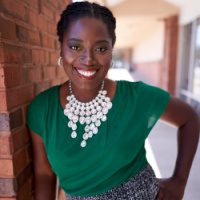
Monique Russell is the communications expert you want on your team. She teaches women leaders and teams how to have positive and productive relationships at home and work using effective communications tools and strategies. She is passionate about serving Black and Women Employee Resource Groups, organizations like Amazon, Microsoft, Google, the Centers for Disease Control, Verizon, Intel, Equifax, and the world’s busiest airport, Atlanta Hartsfield Jackson International, trust Monique to guide them in implementing communication strategies that foster connection, community, creativity, and courage. You can too. Monique has 20 years of experience in the science of Communications and leads Clear Communication Solutions – an international training, coaching, and consulting firm that focuses on confidently communicating from the inside out. She is the author of the Ultimate Speaker’s Guide and the book Intentional Motherhood: Who Said it Would Be Easy, and host of the Bridge to U podcast. Subscribe to the podcast: Bridge to U Visit her website: www.clearcommunicationsolutions.com Connect with Monique on LinkedIn.
